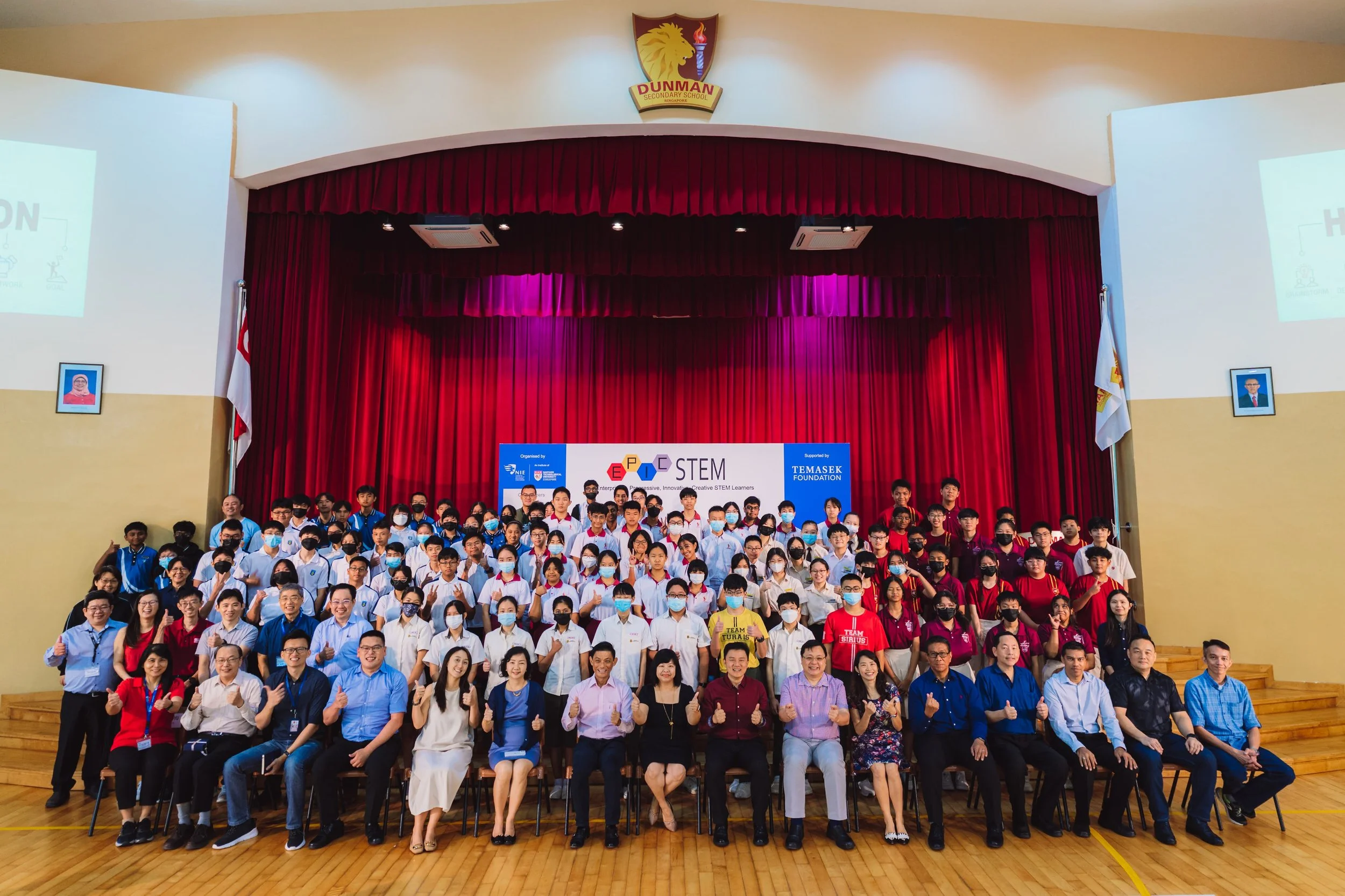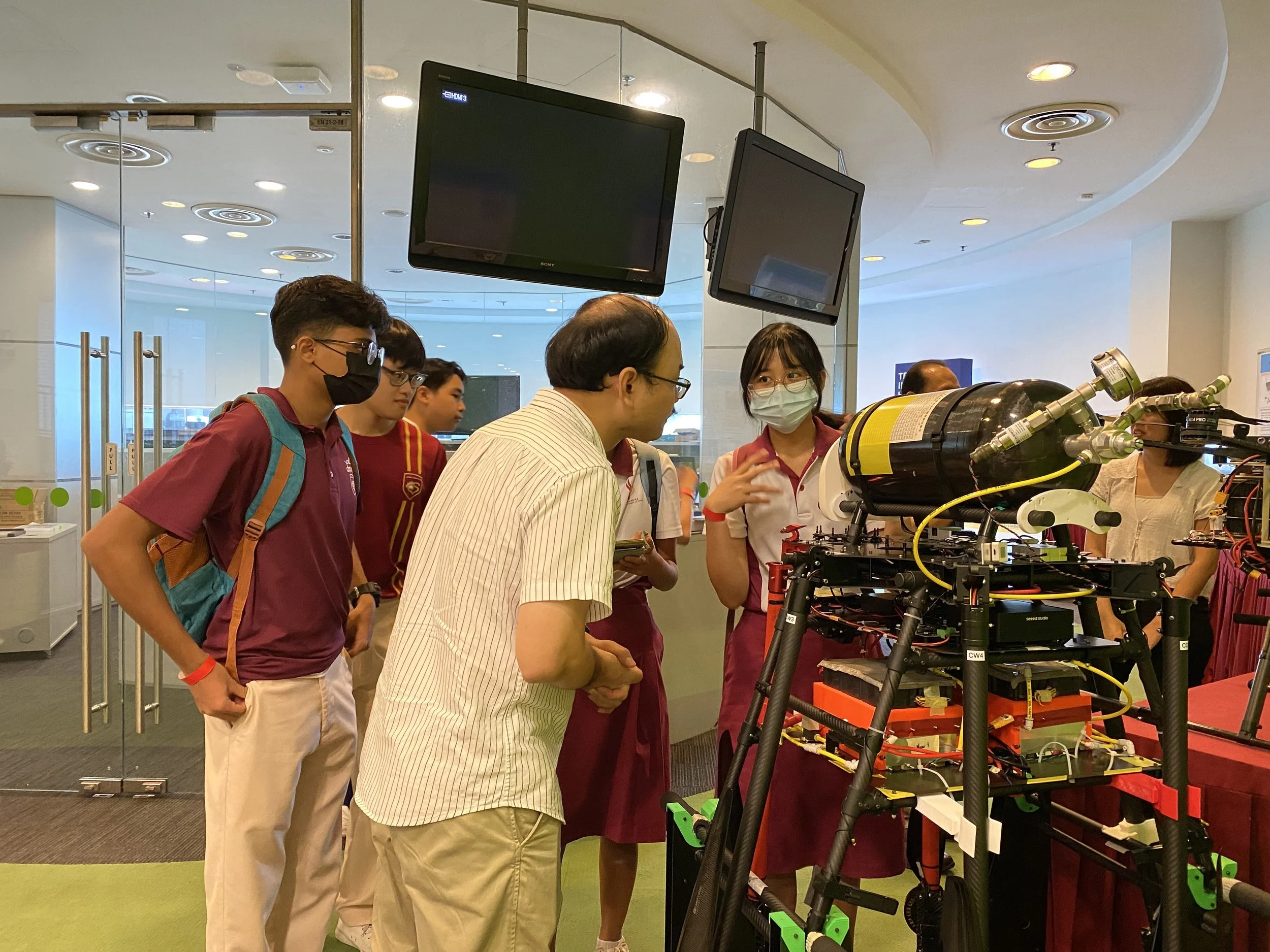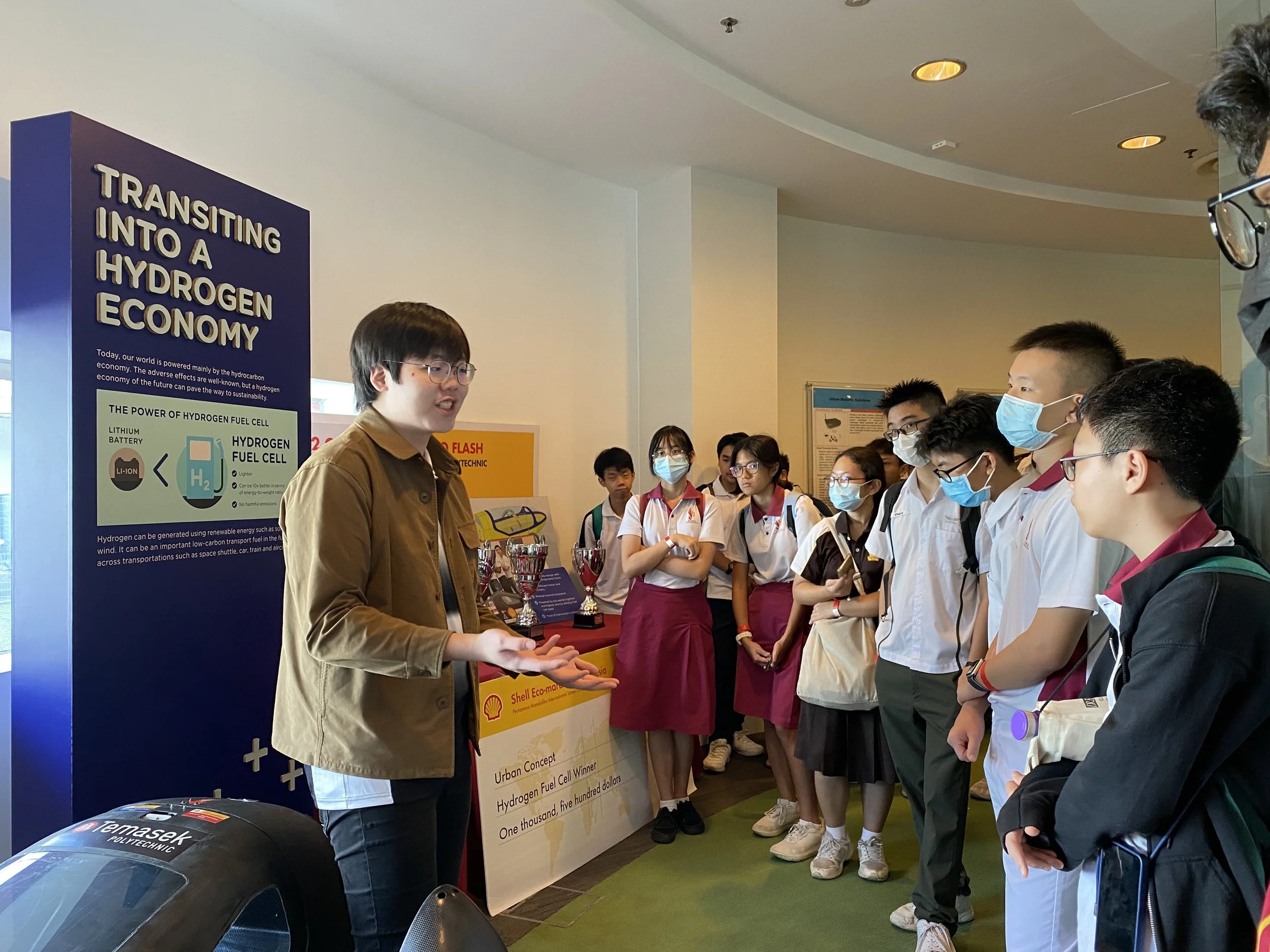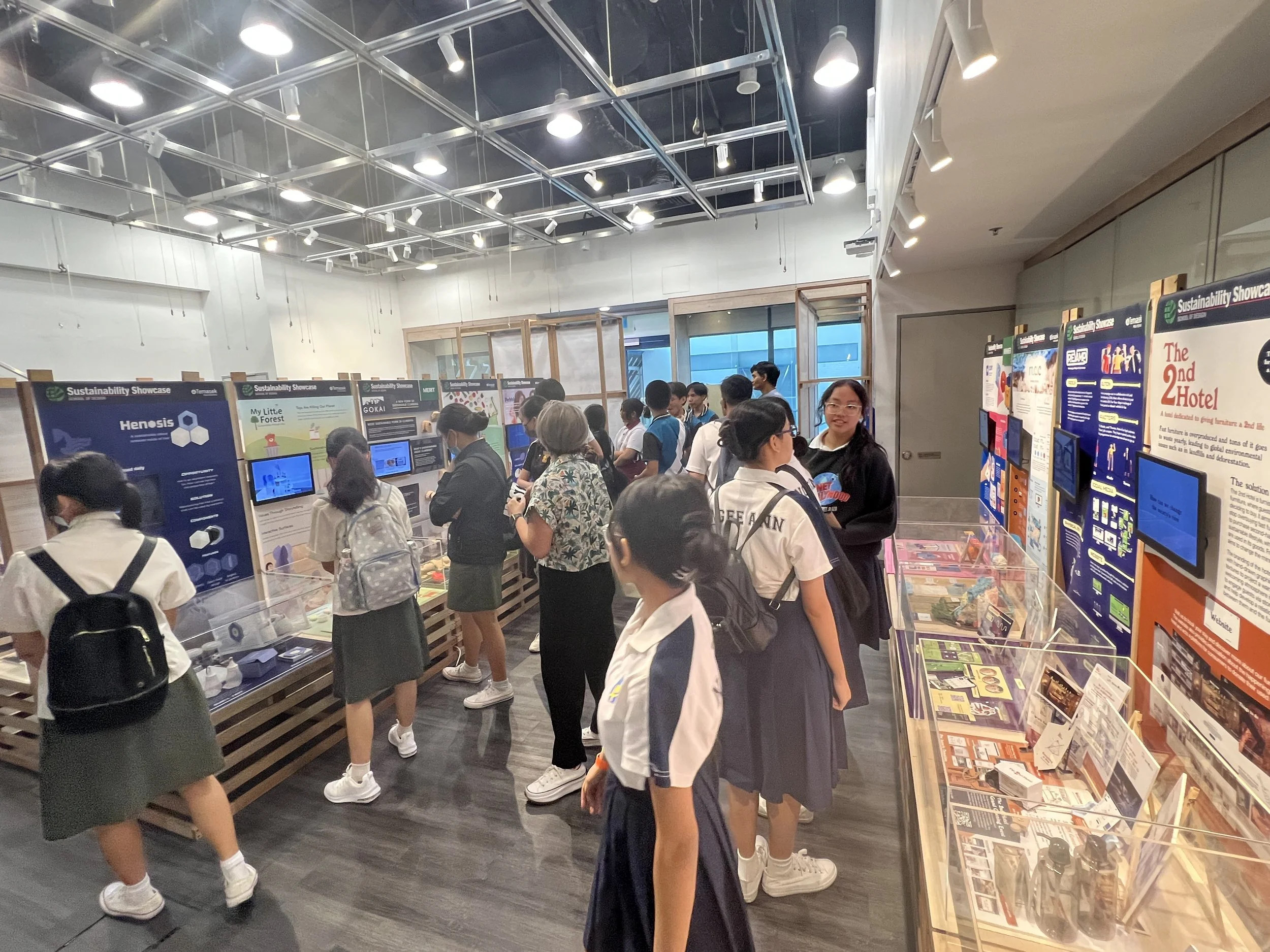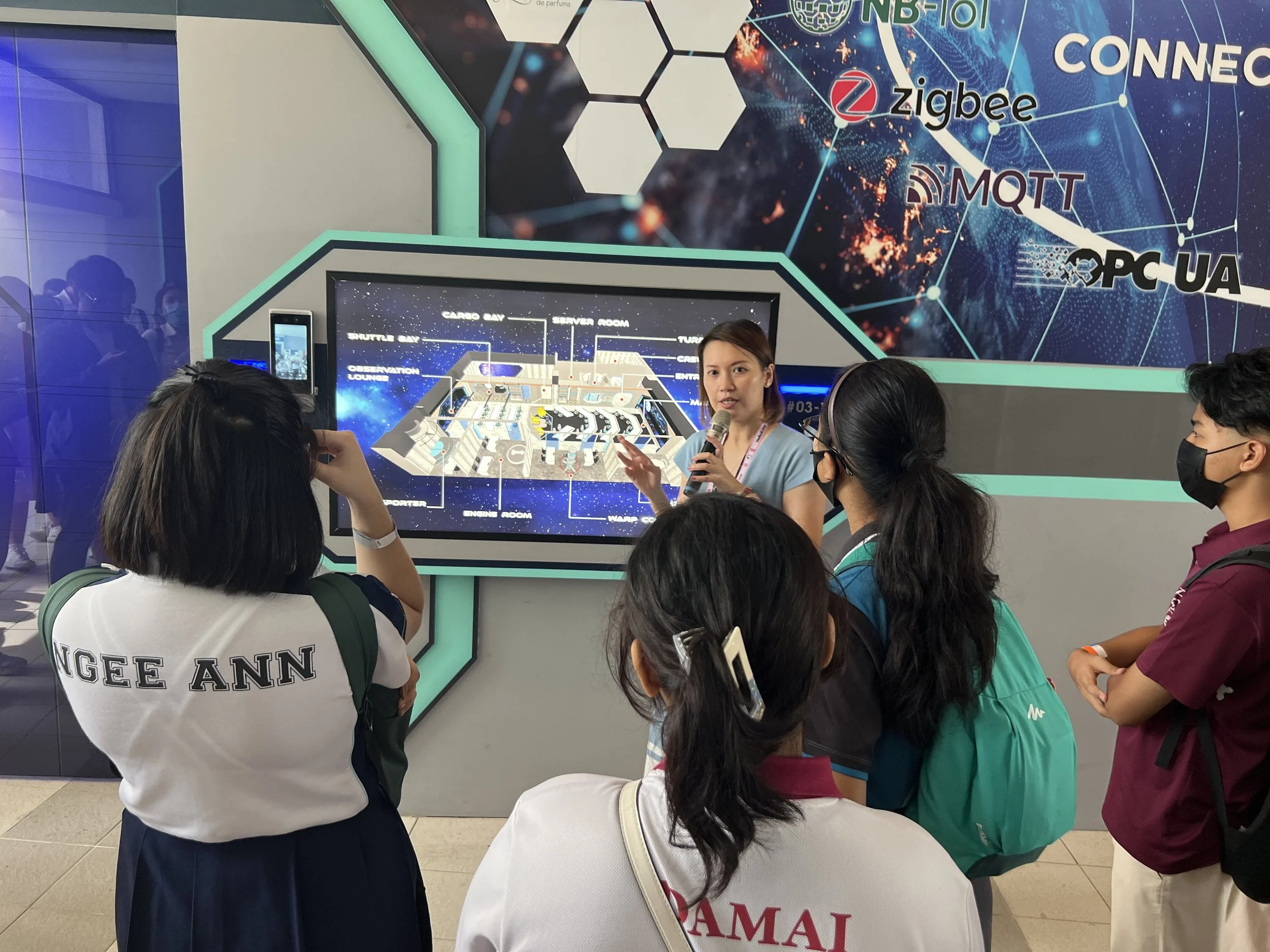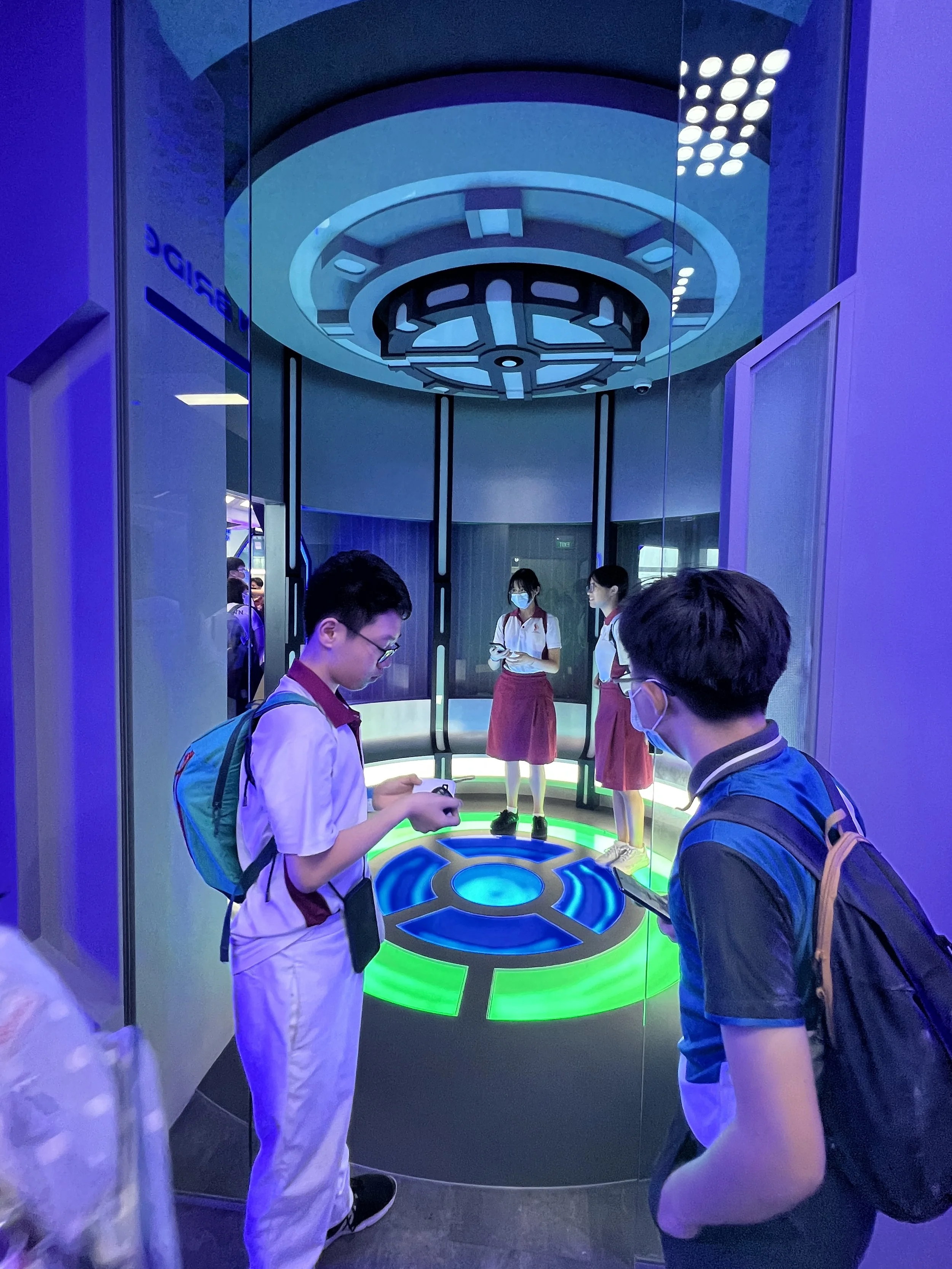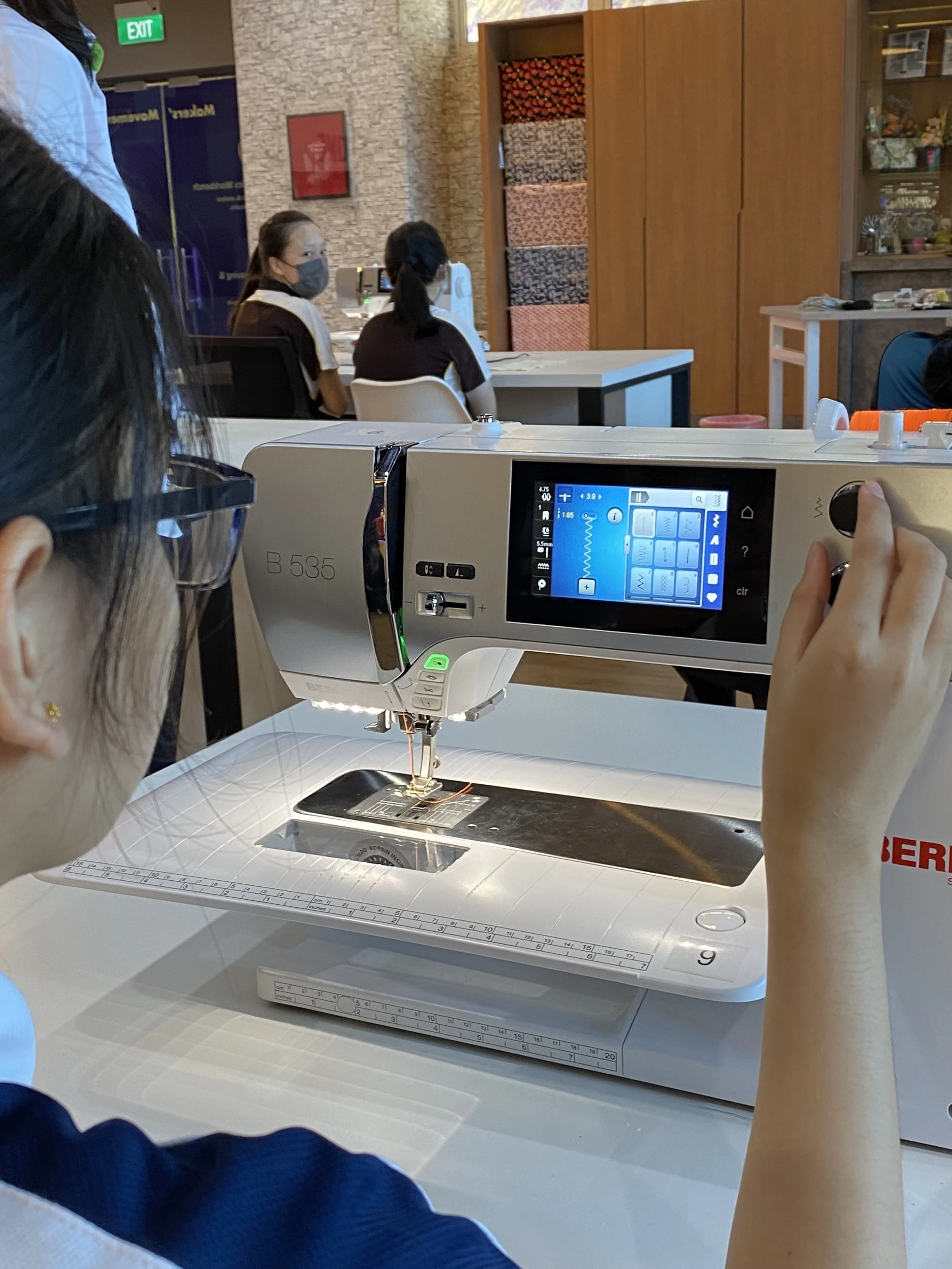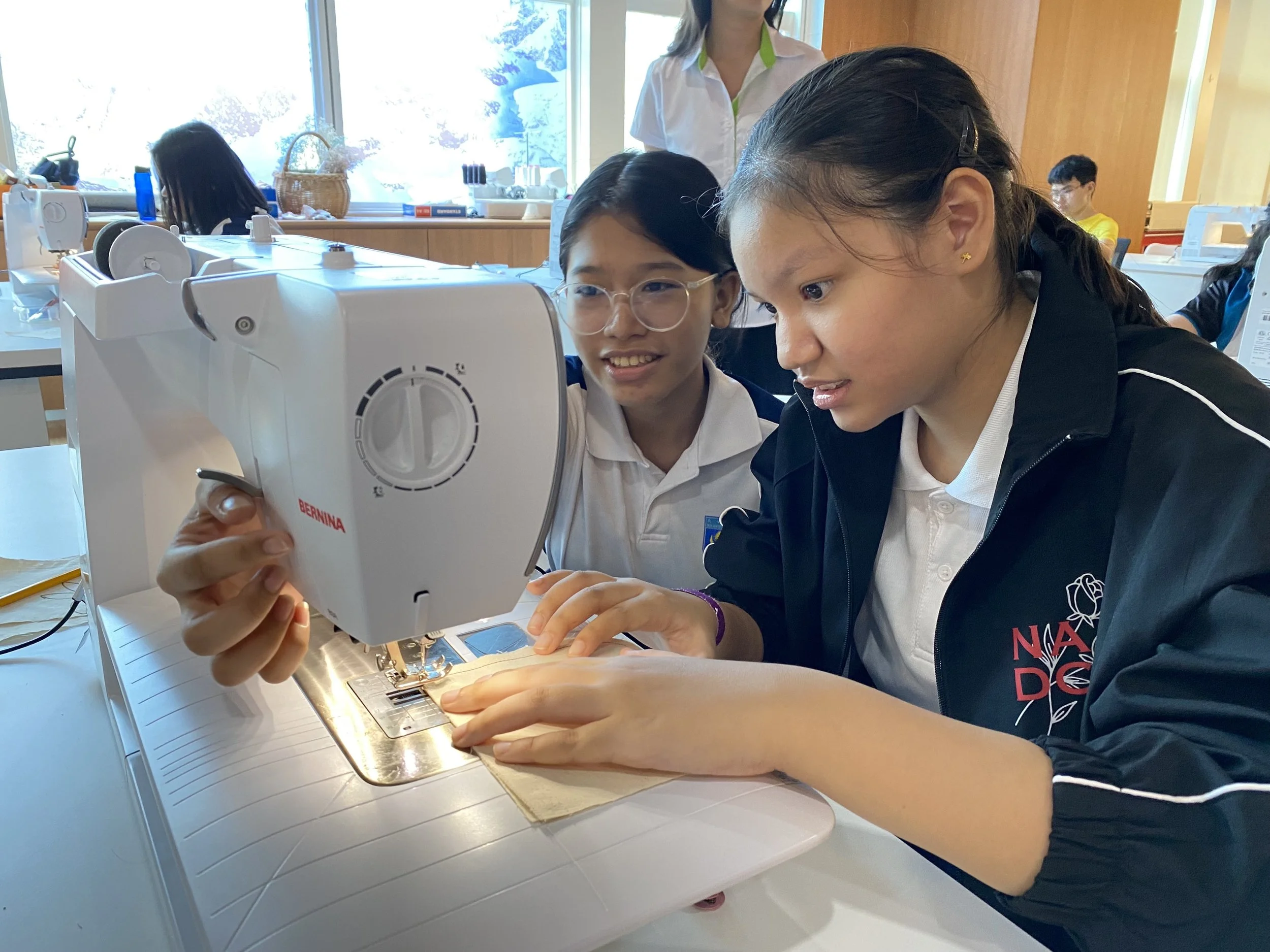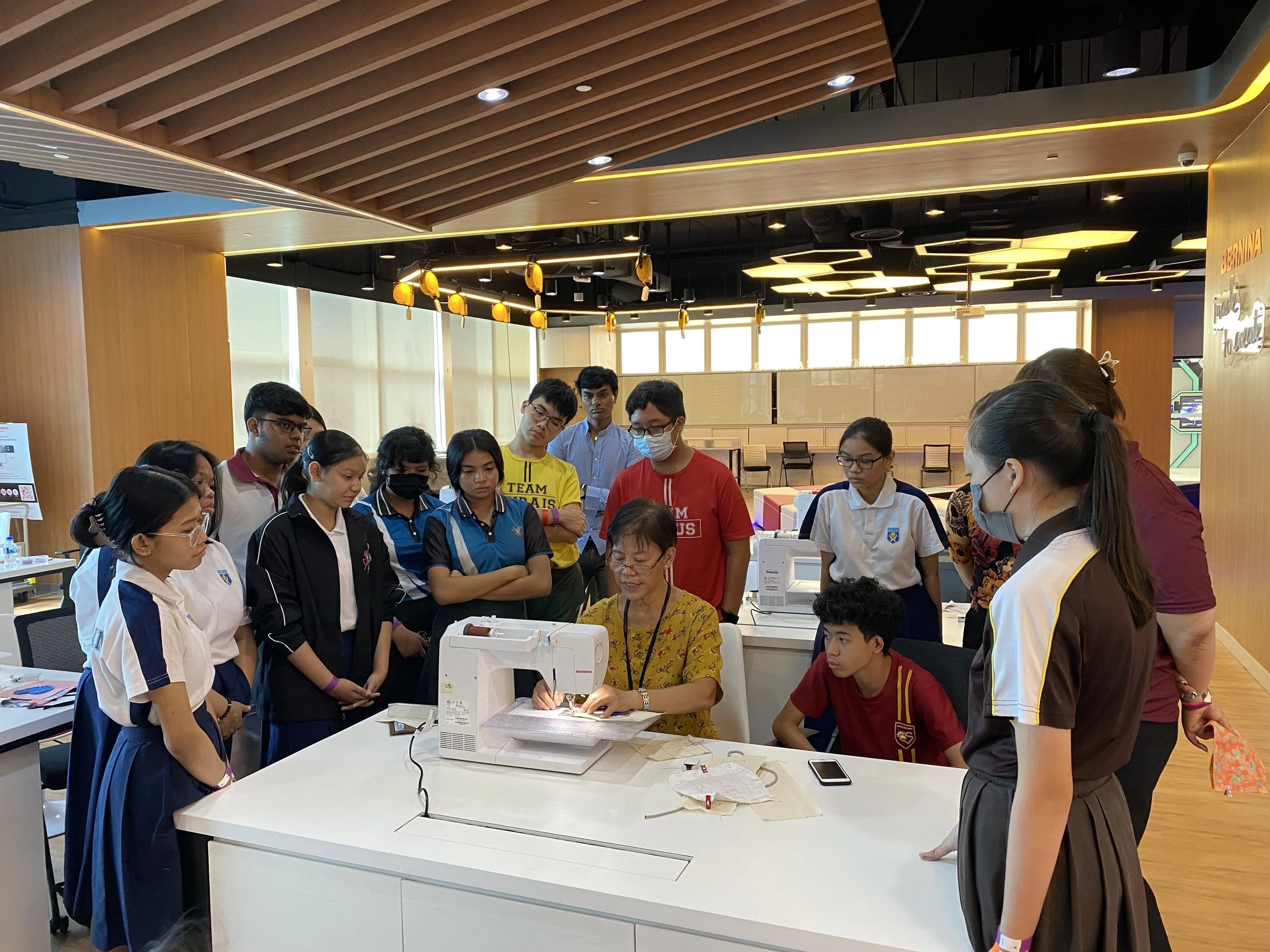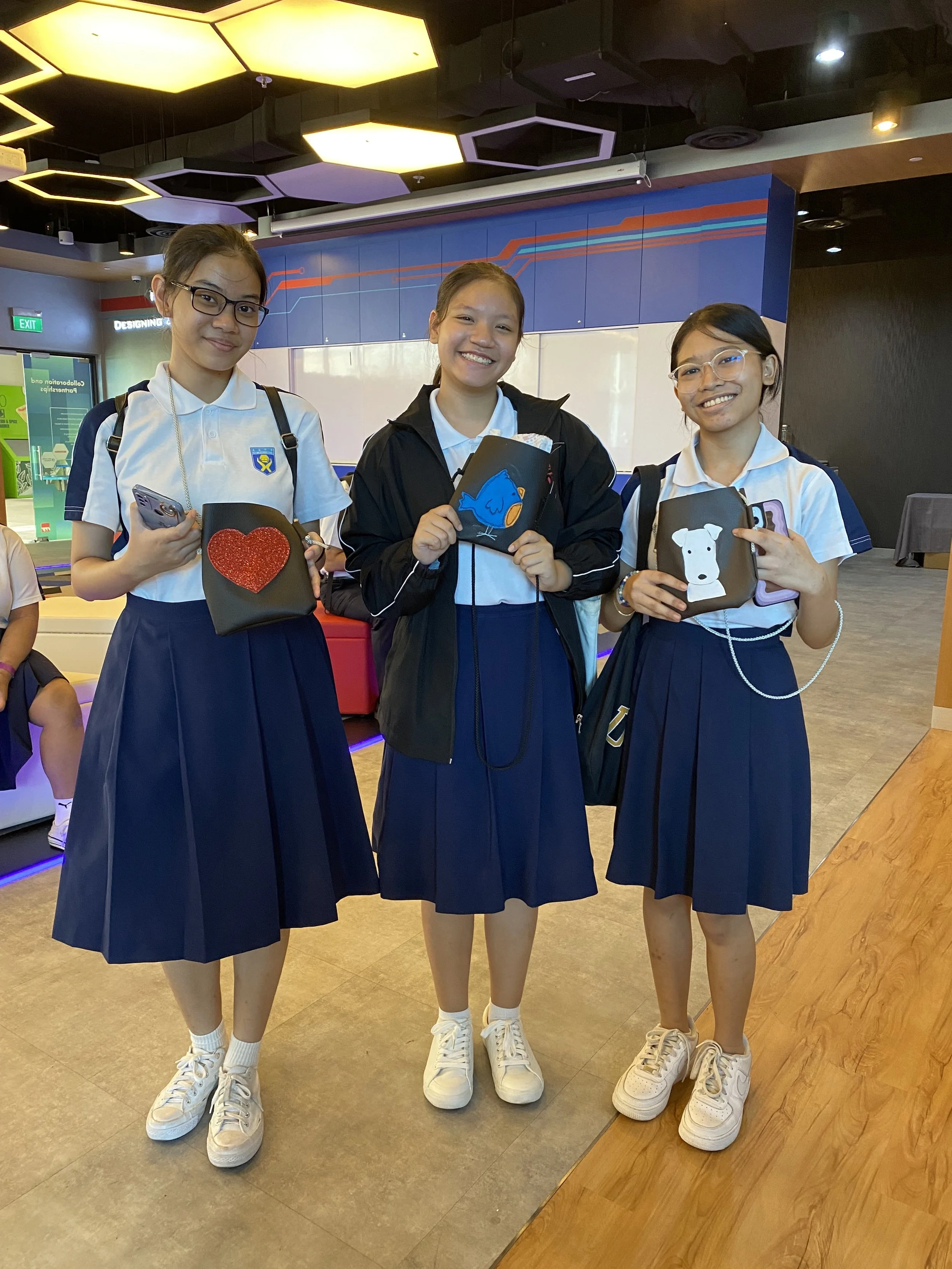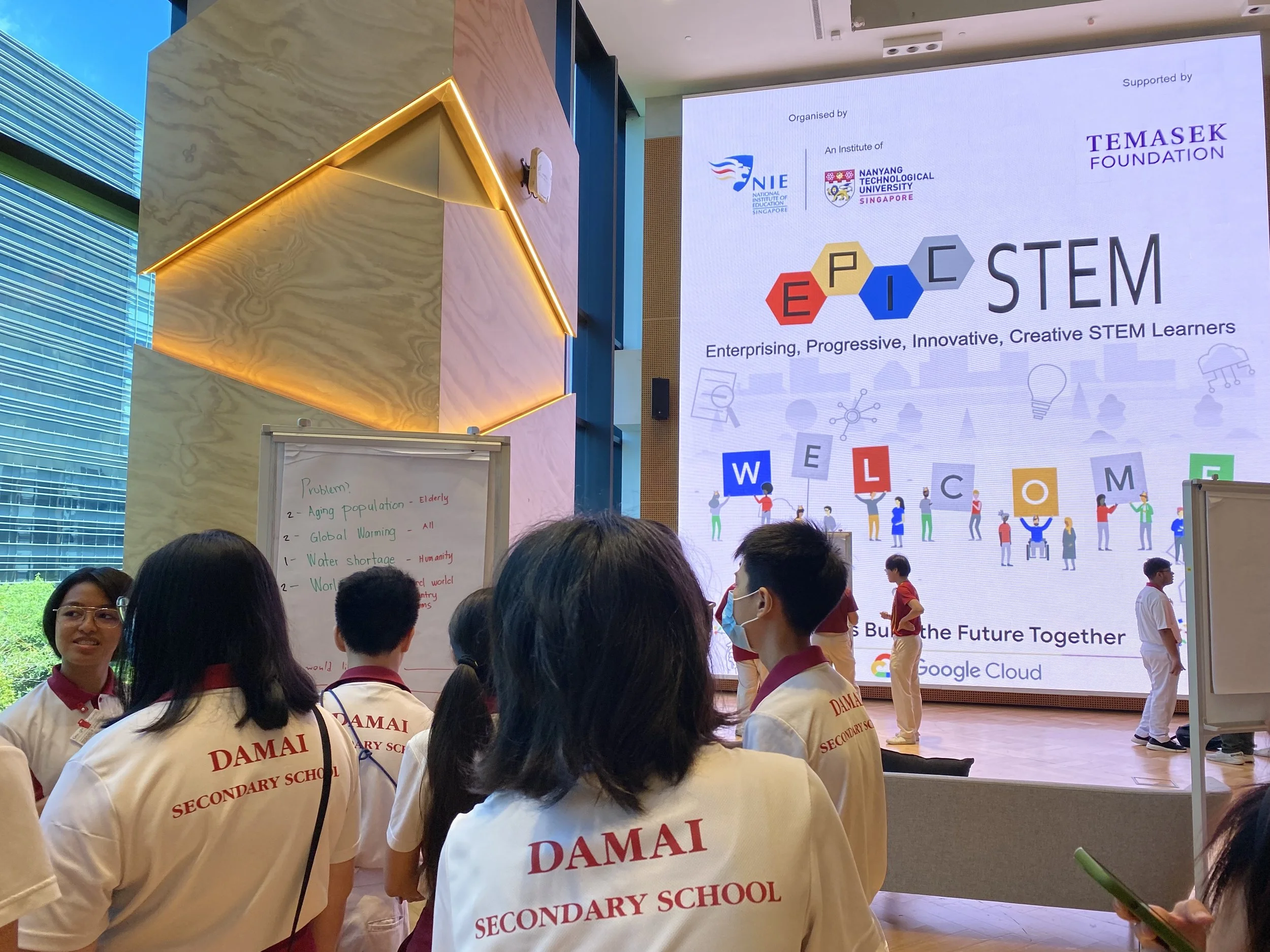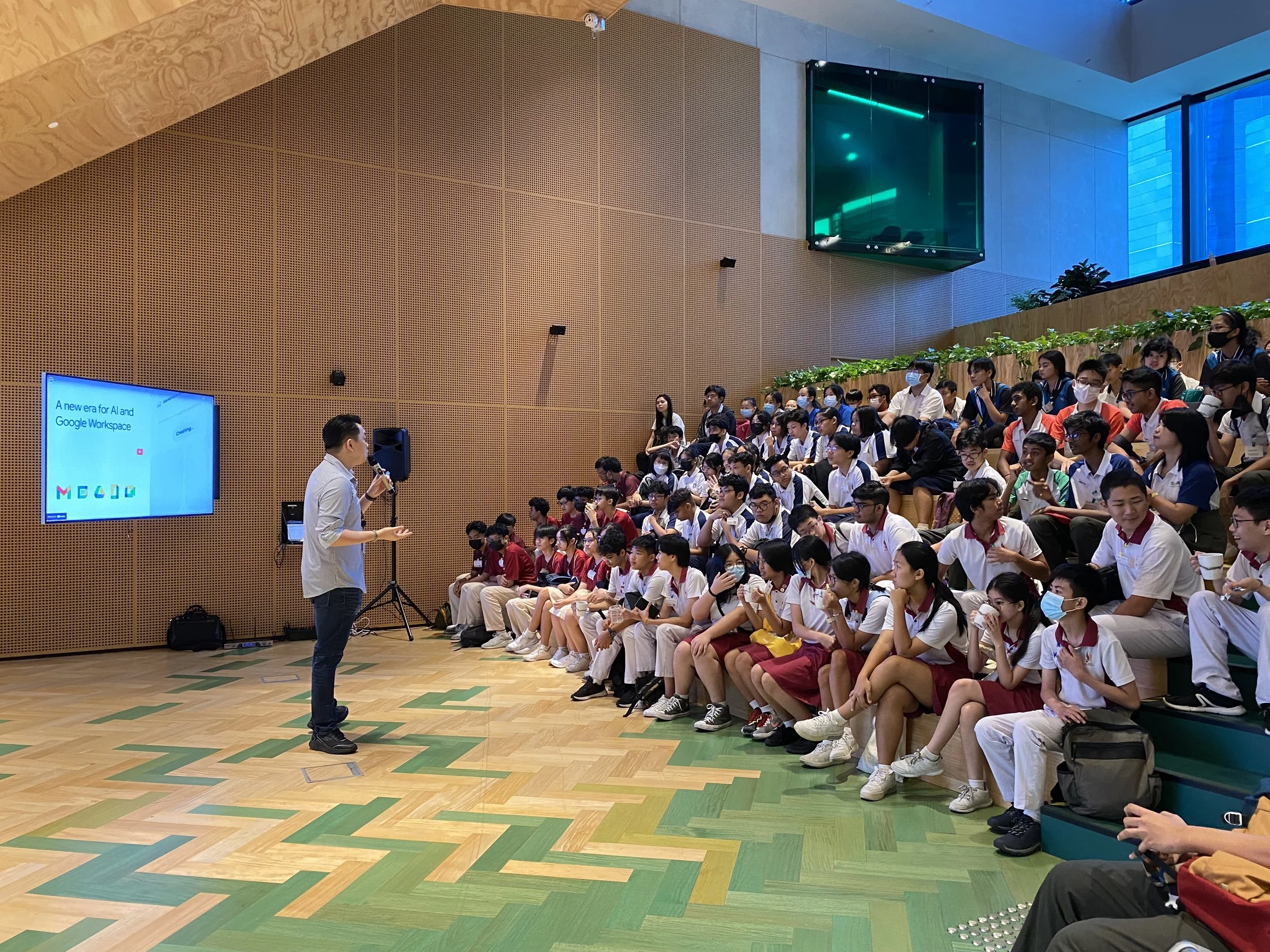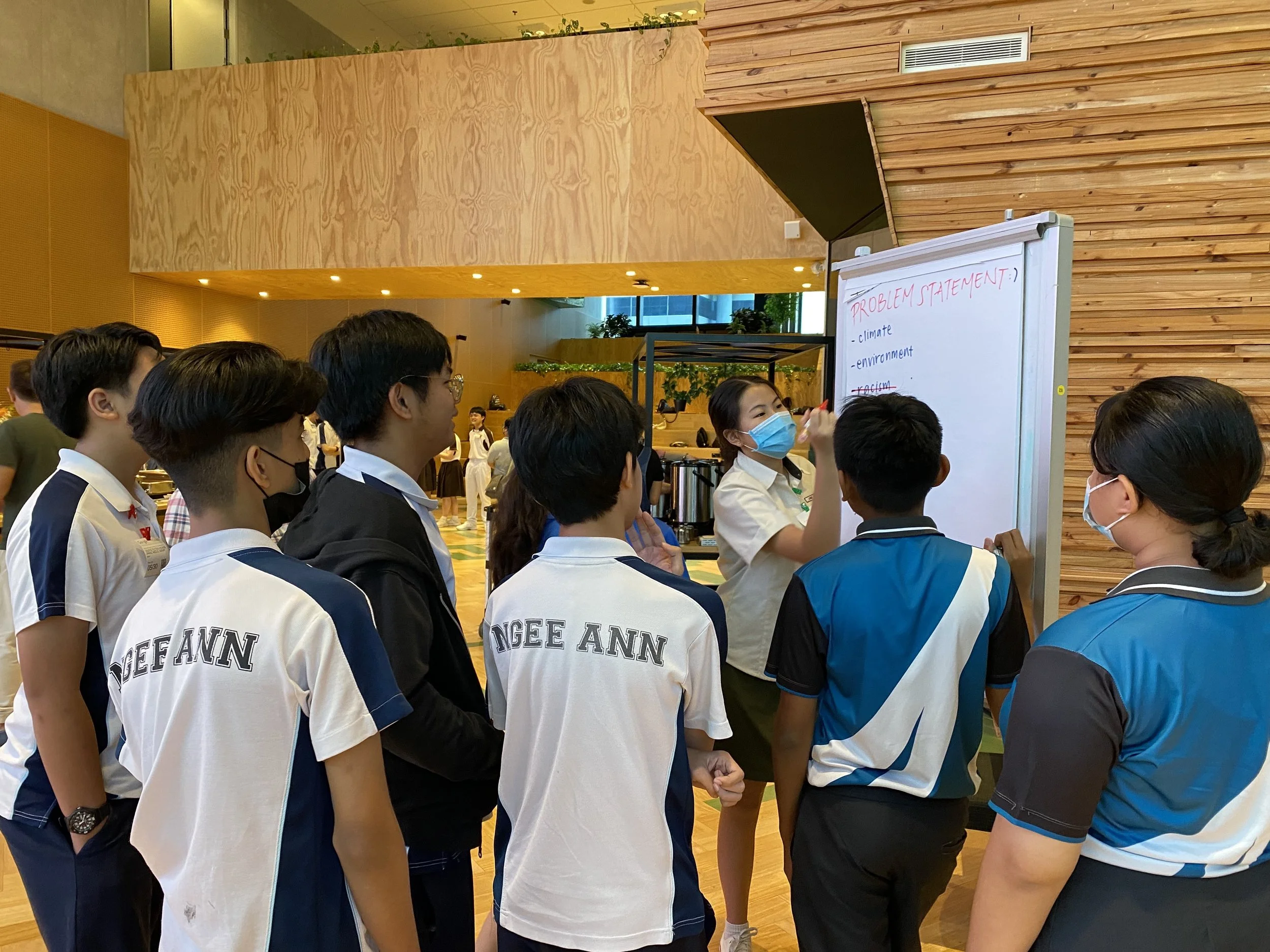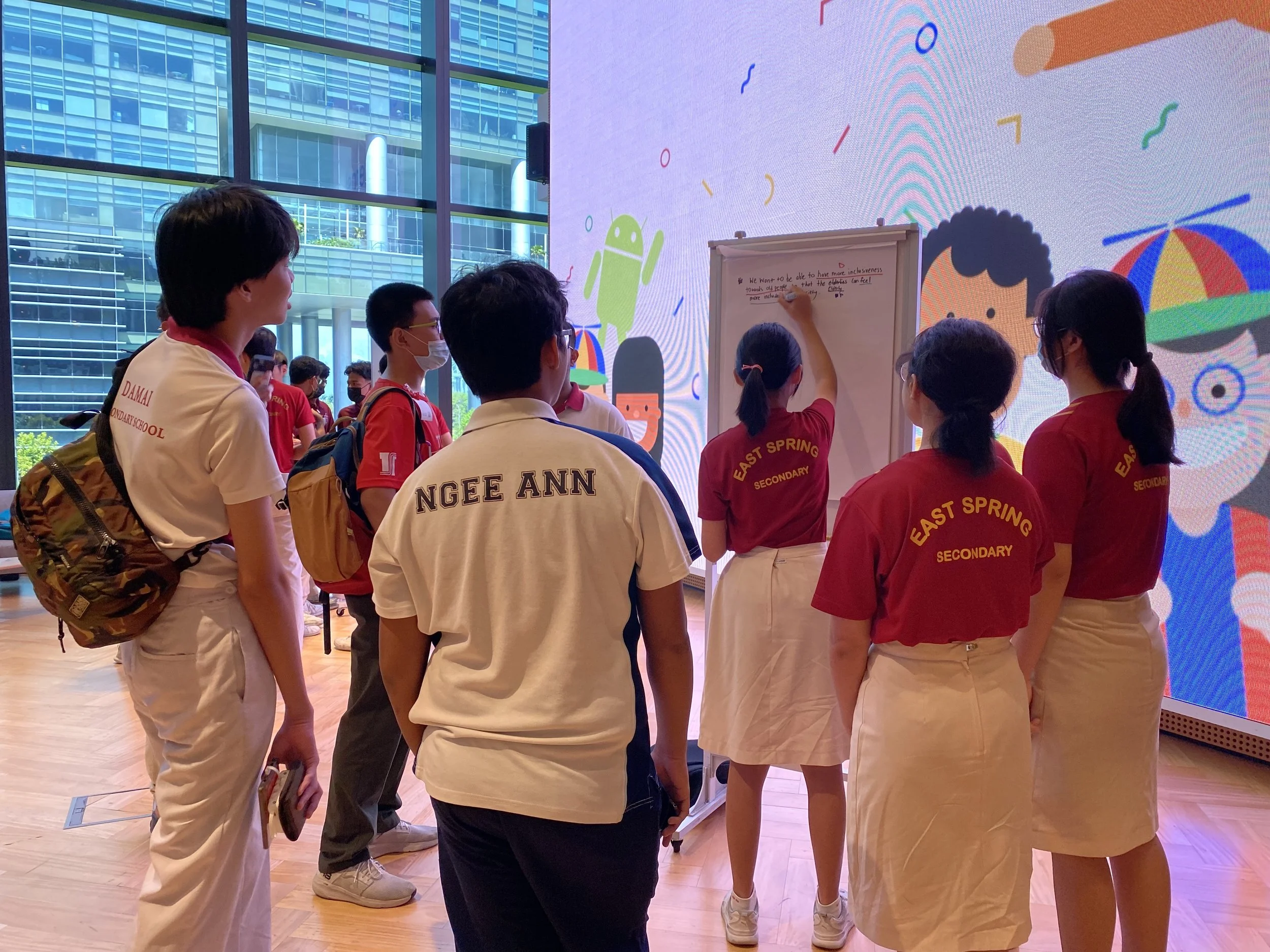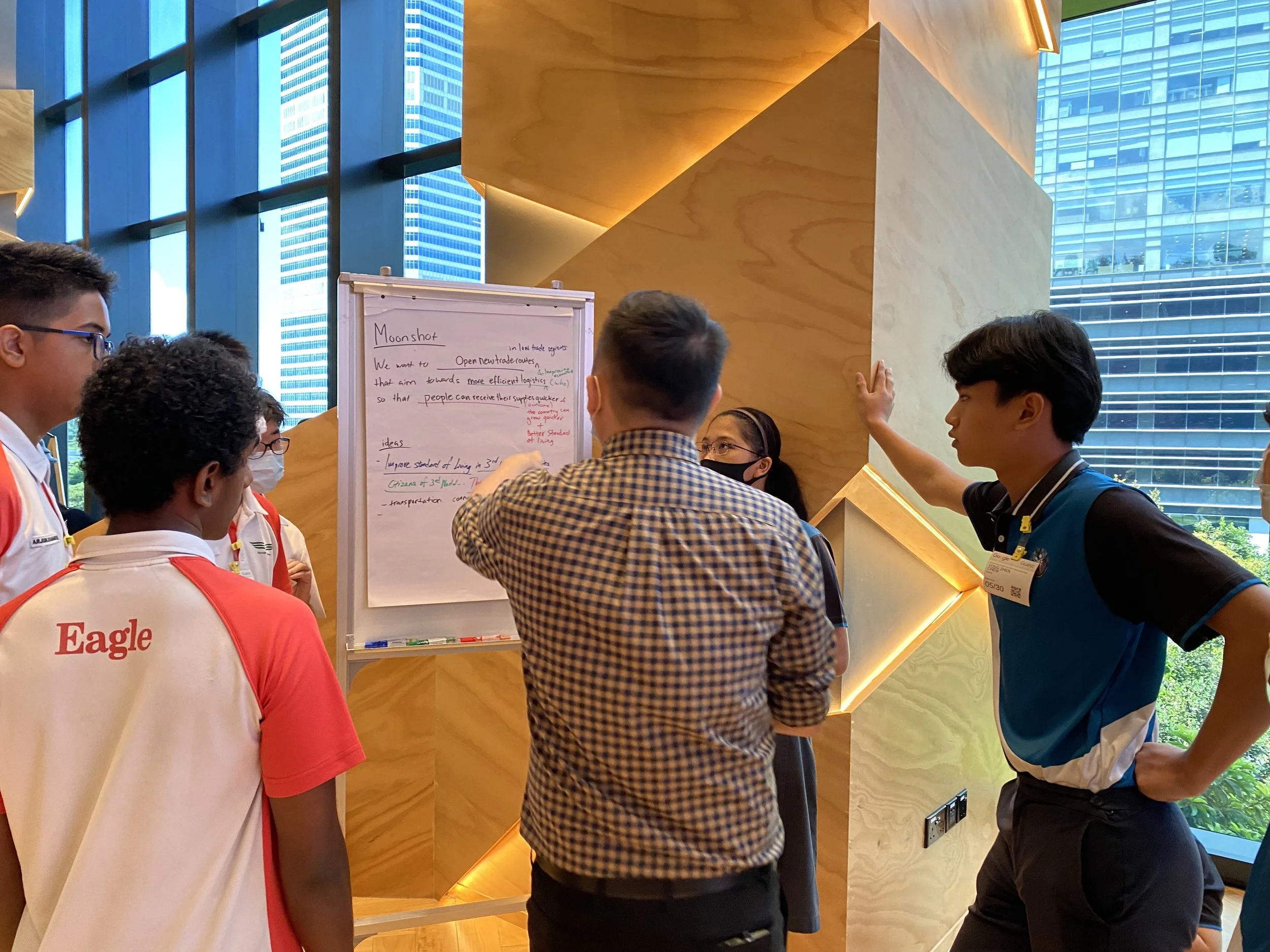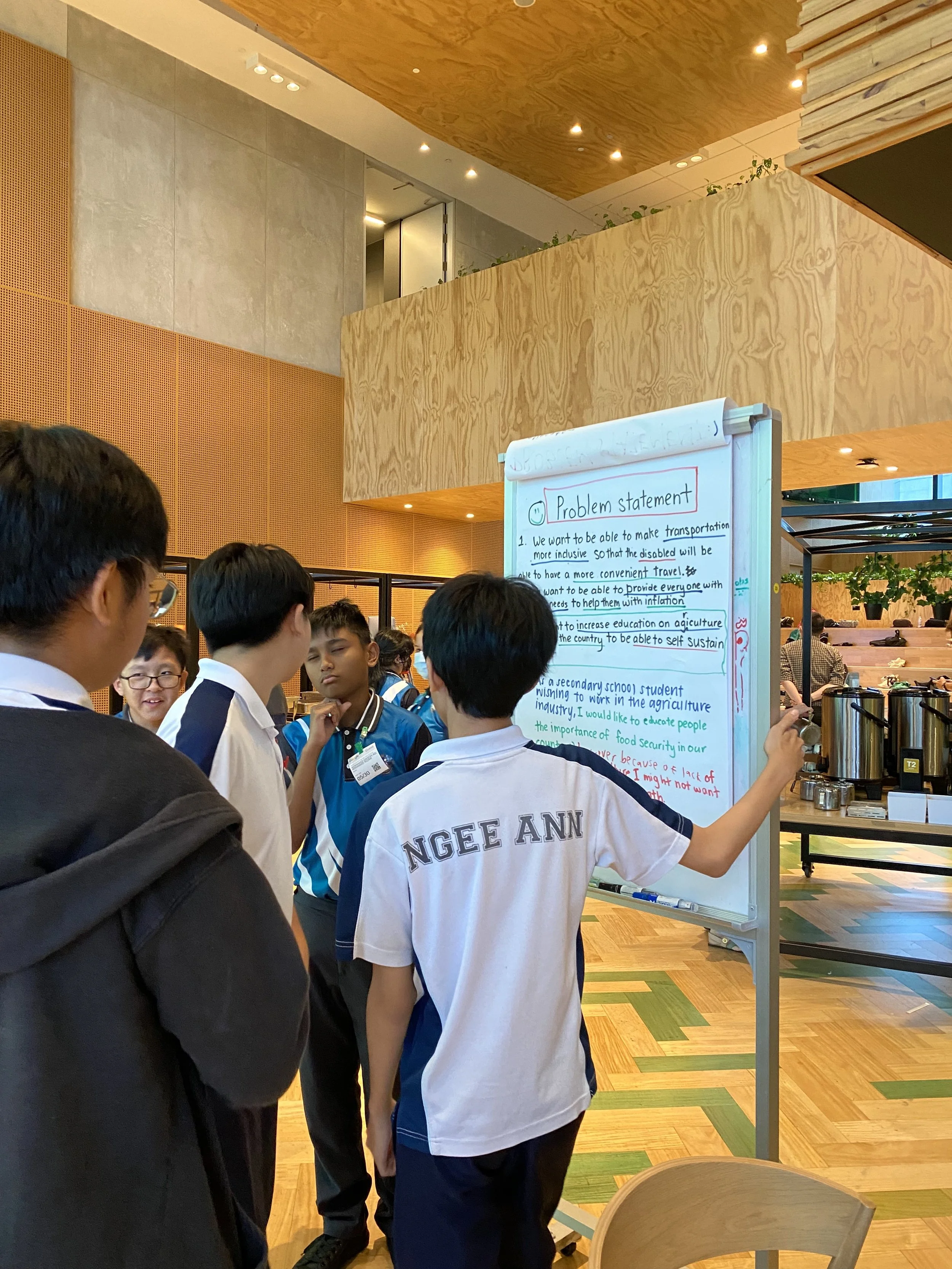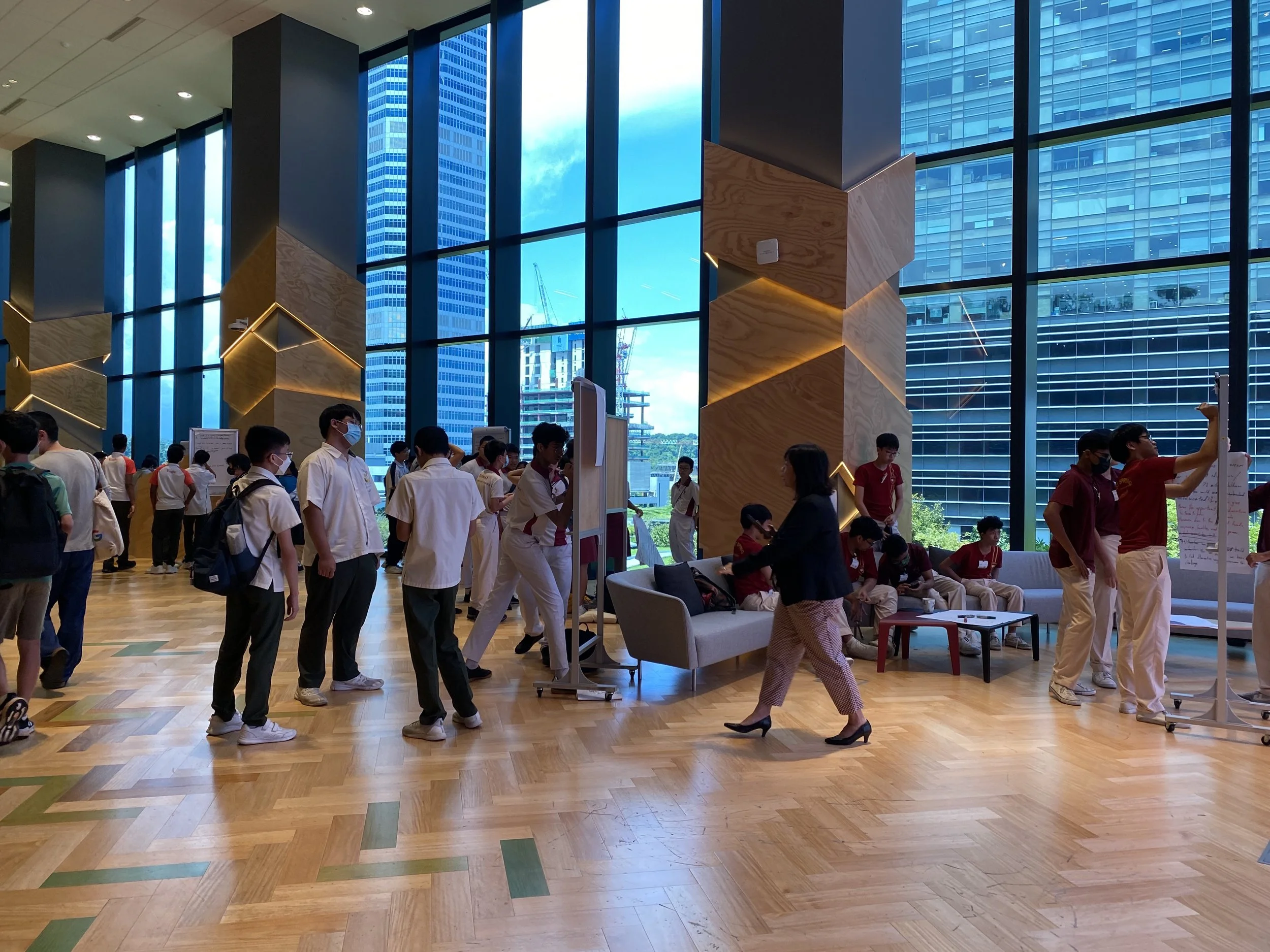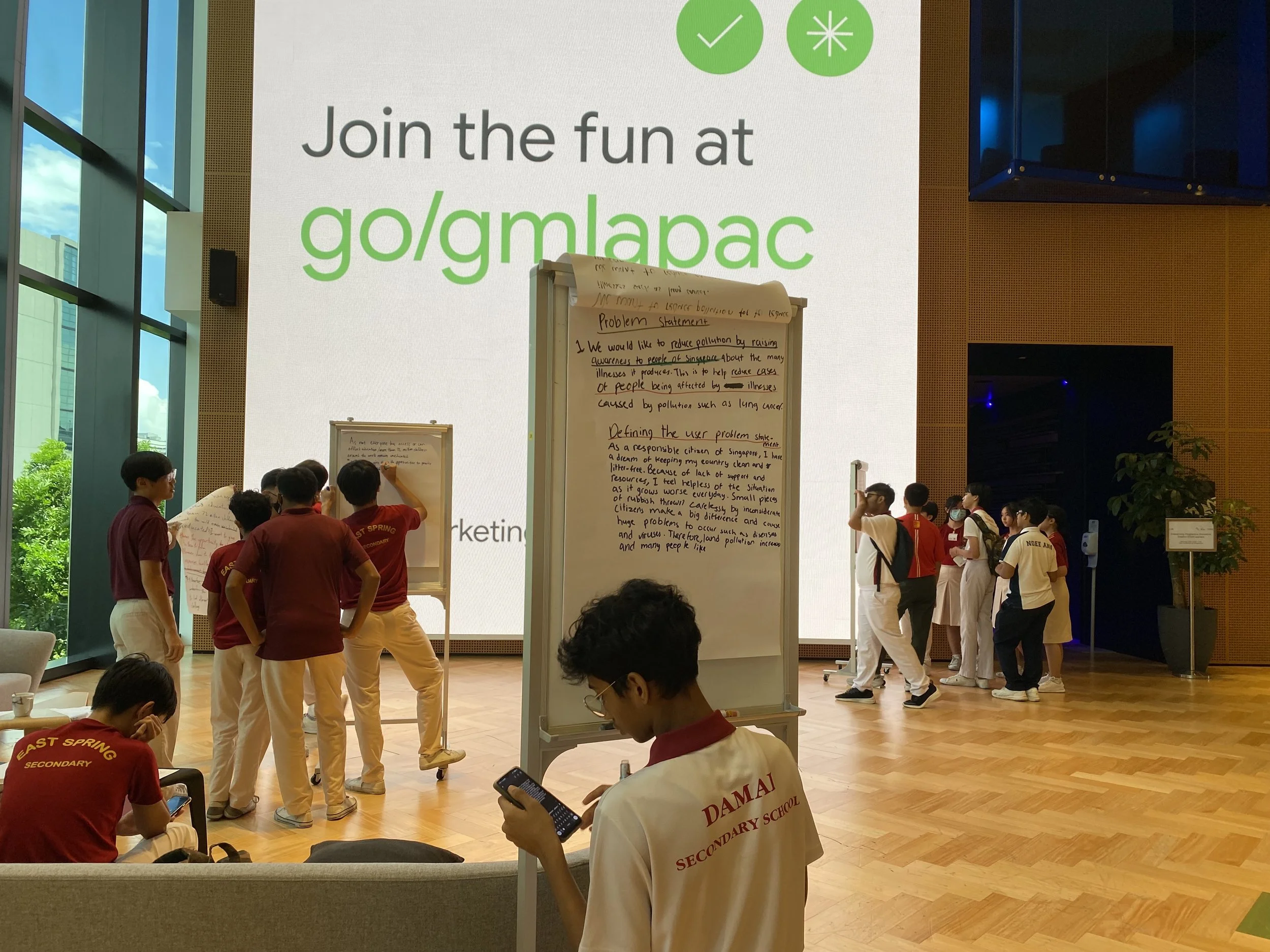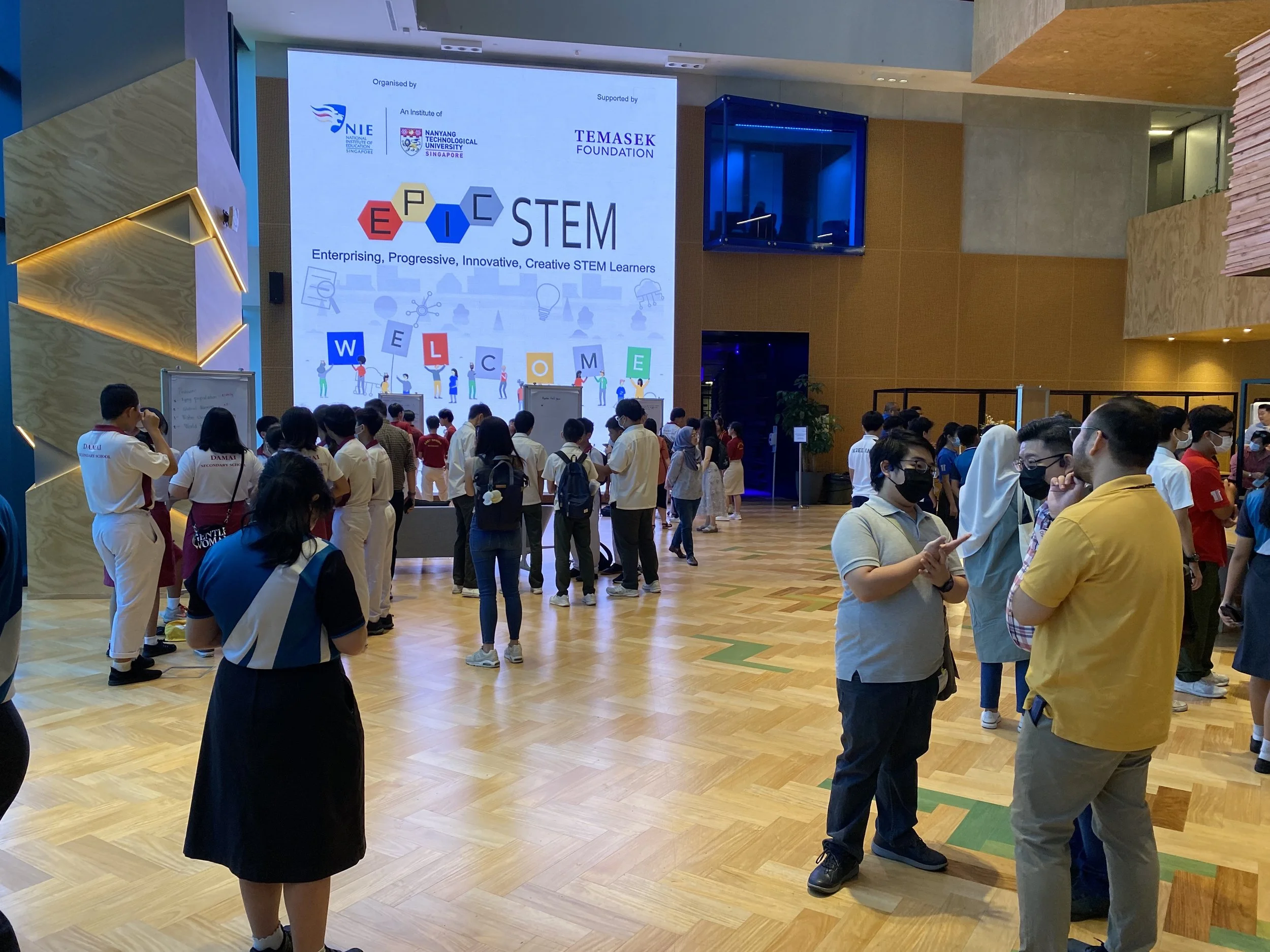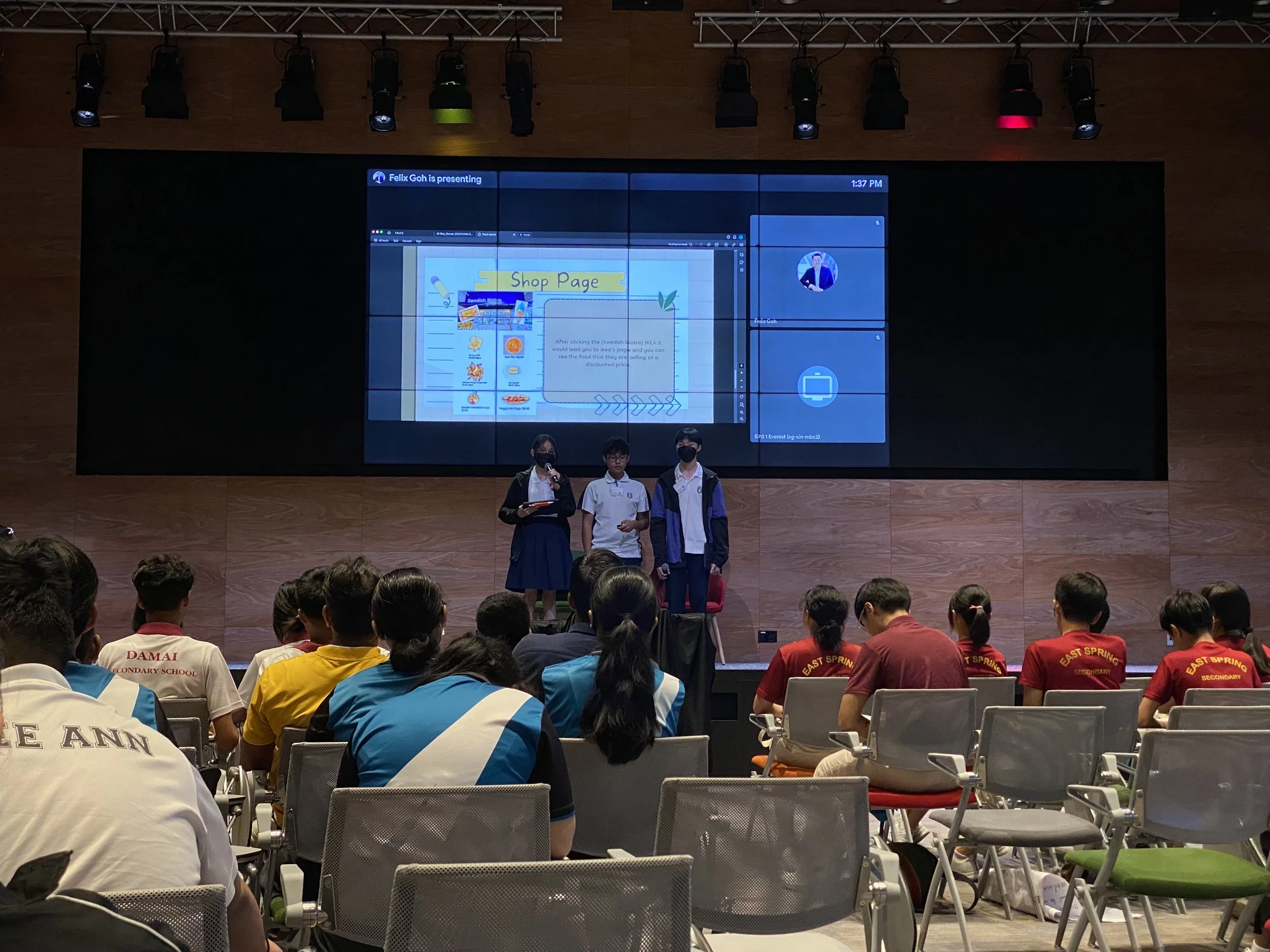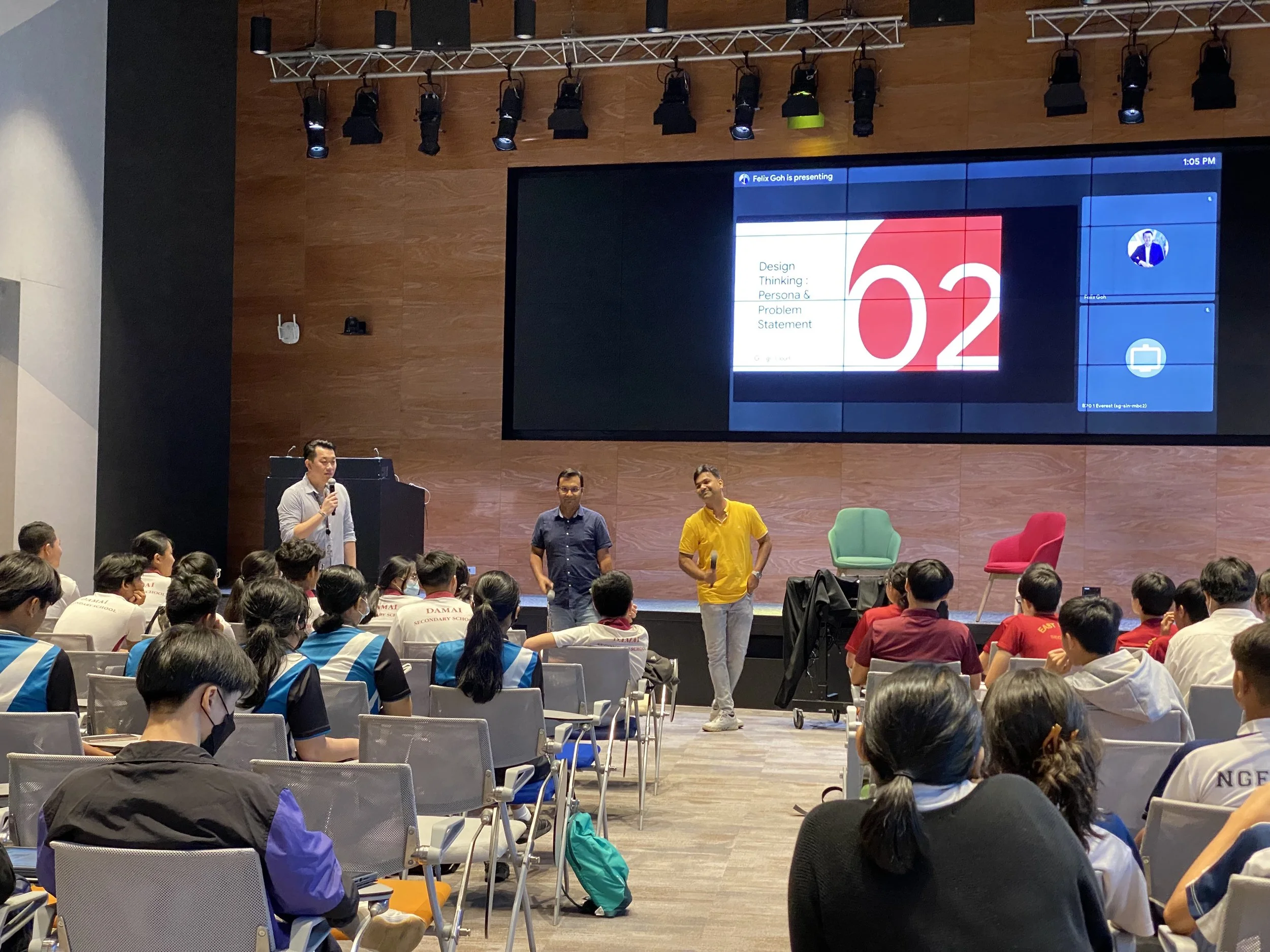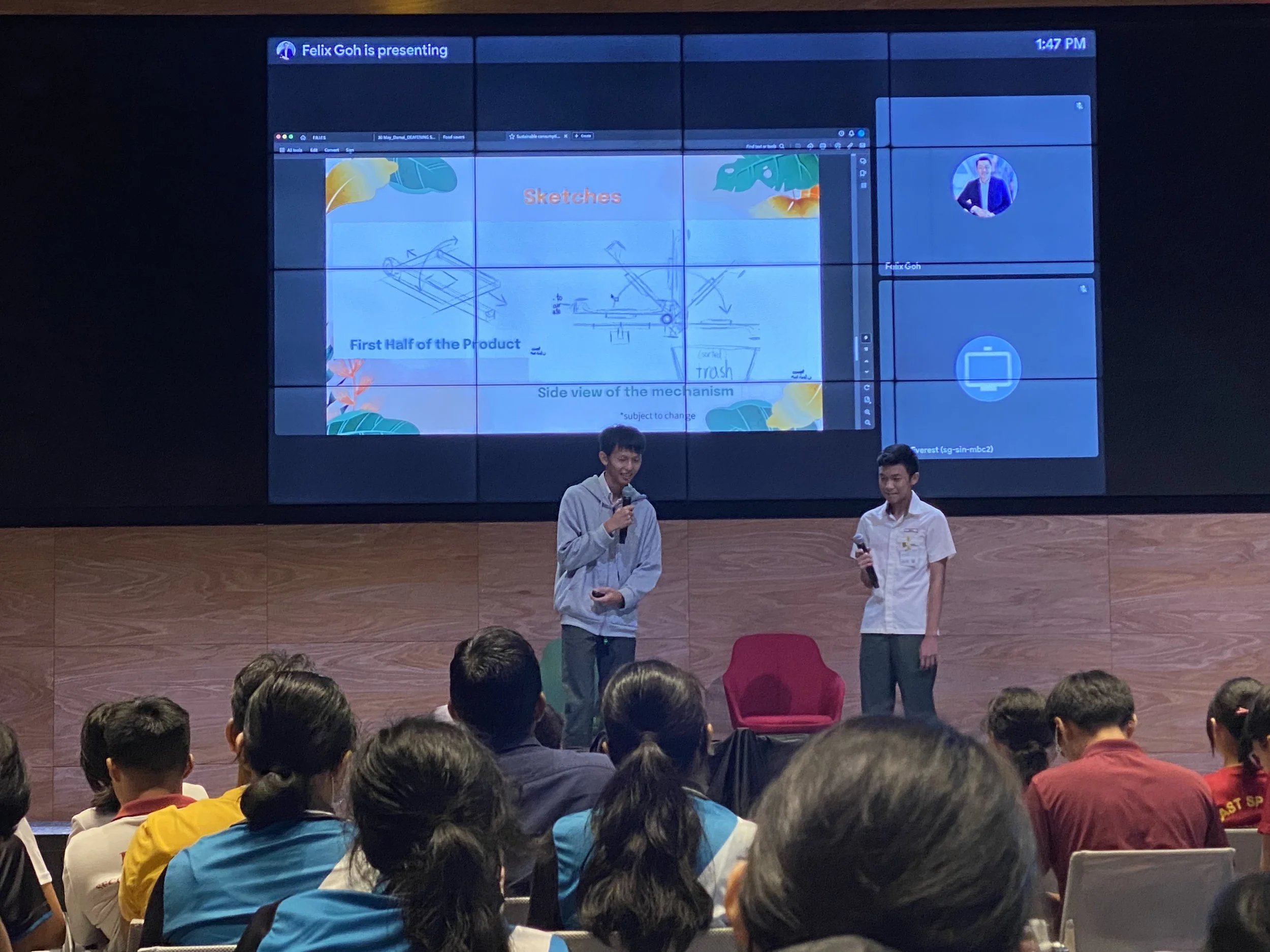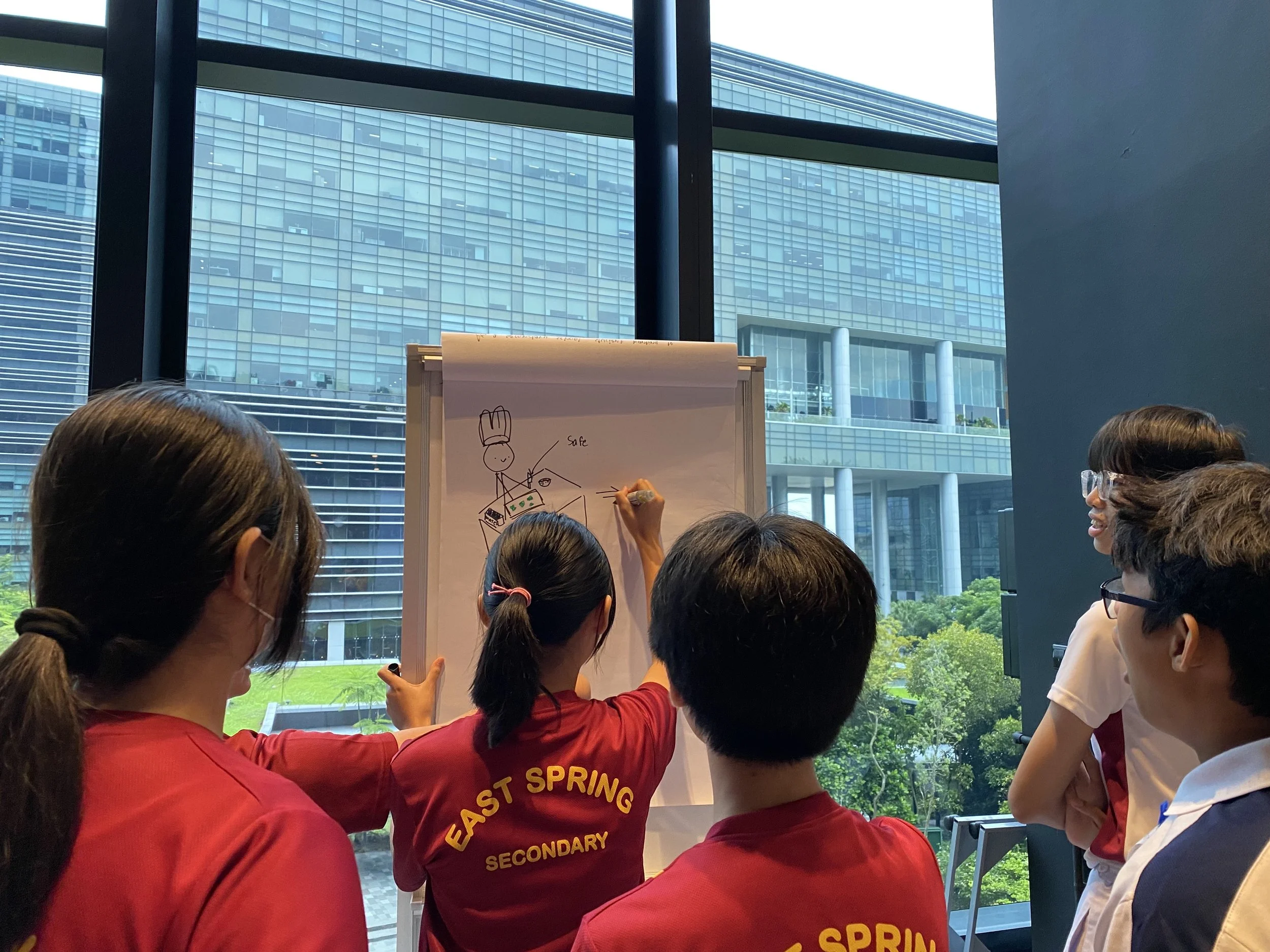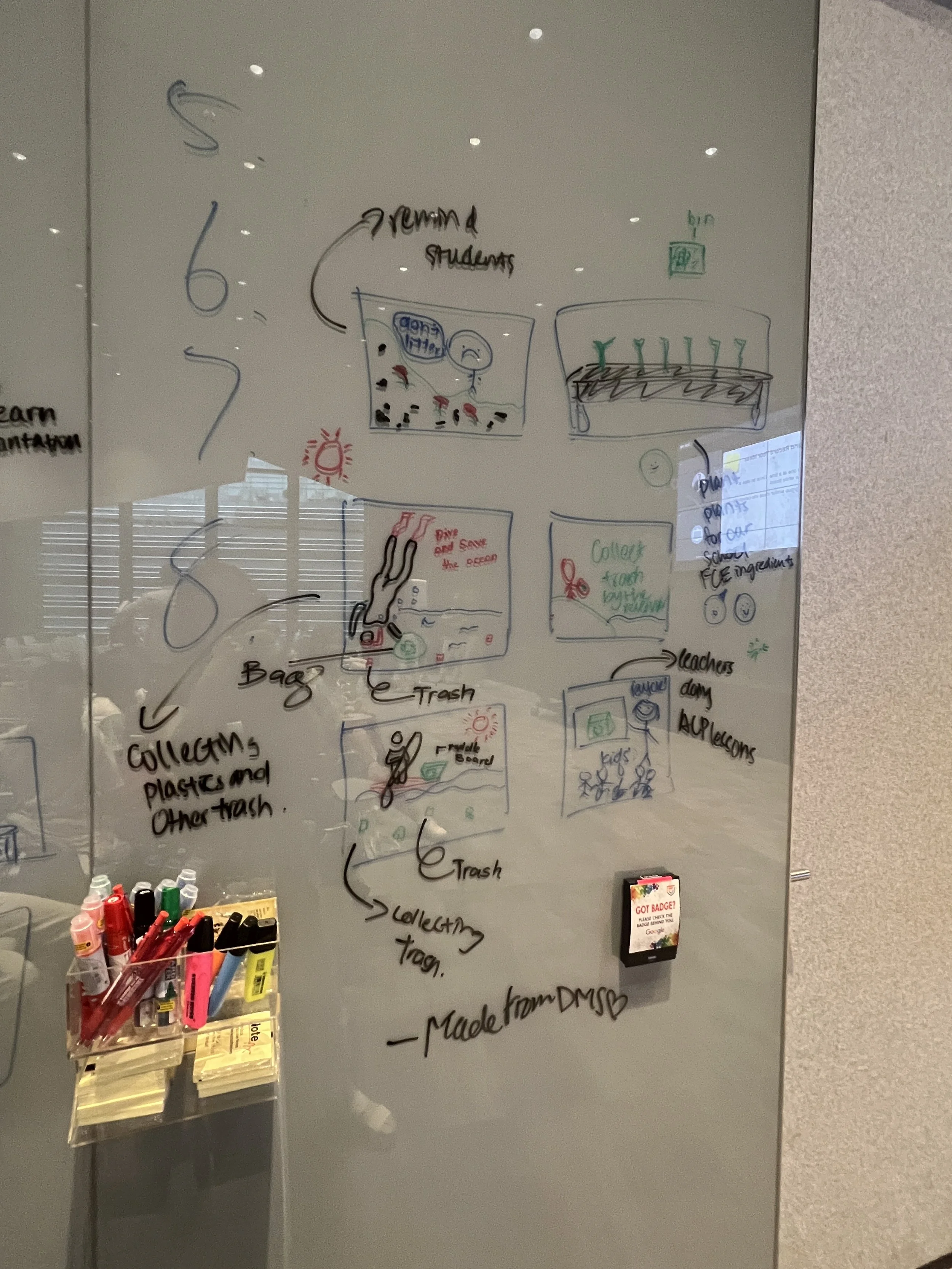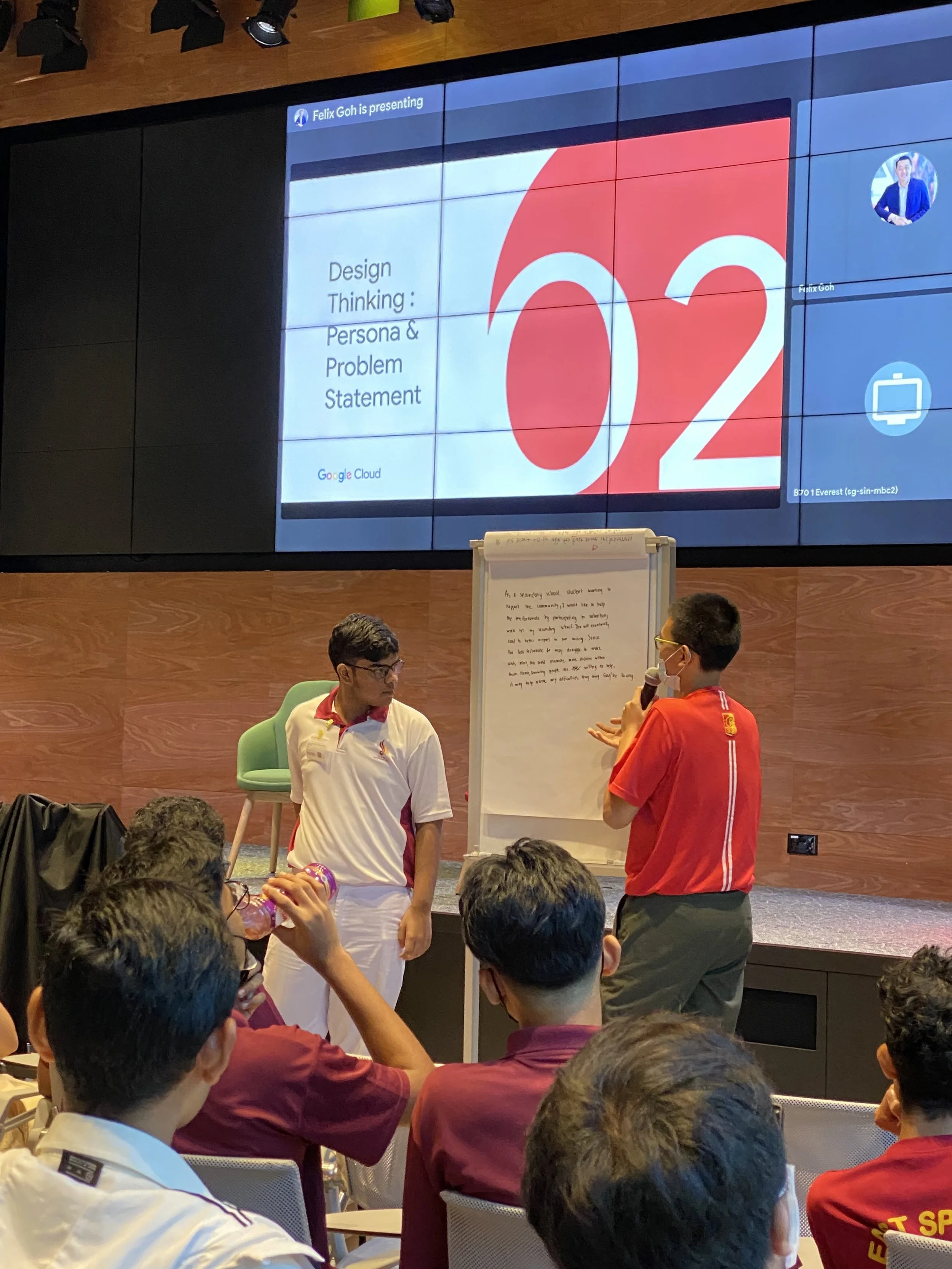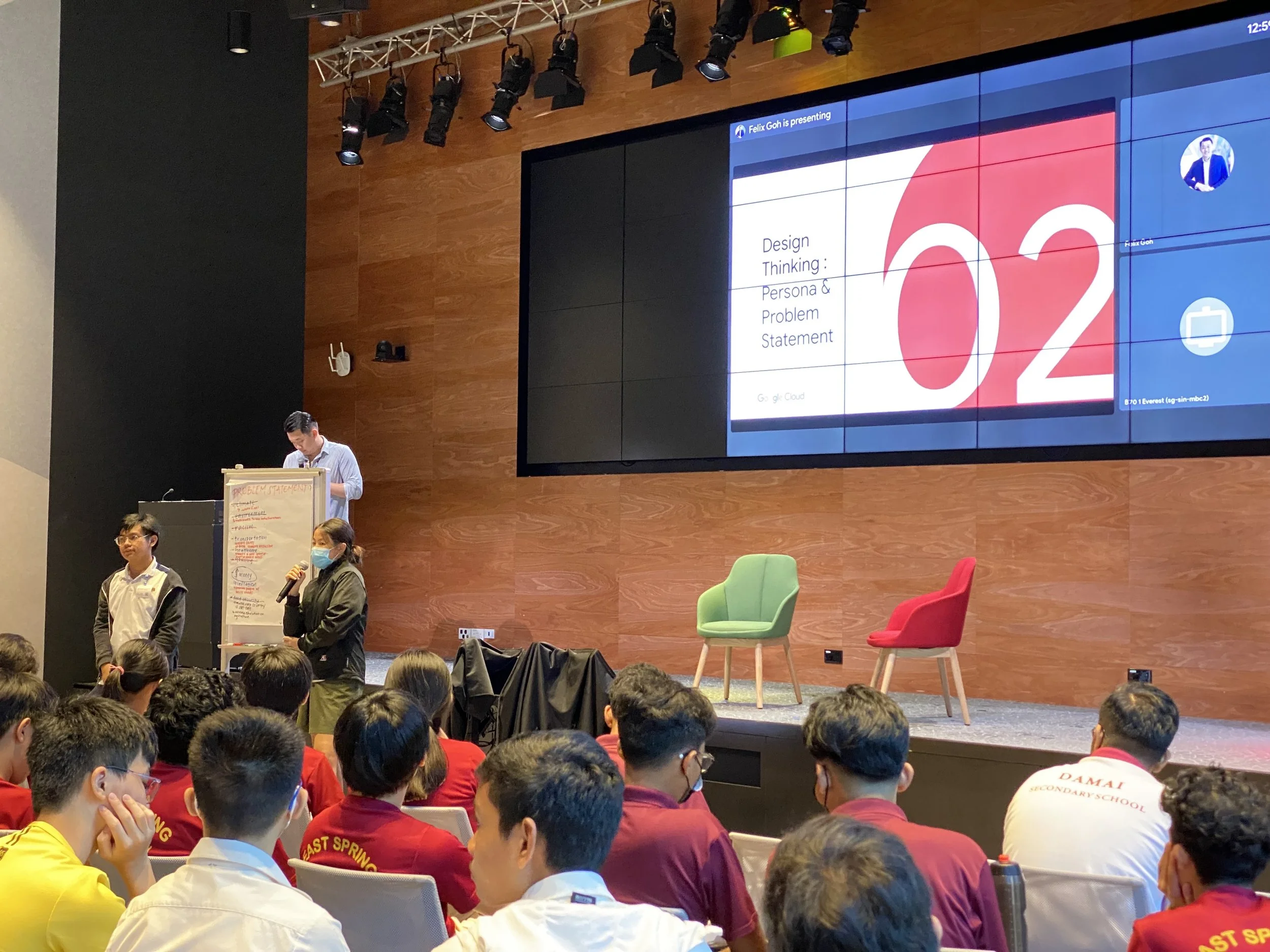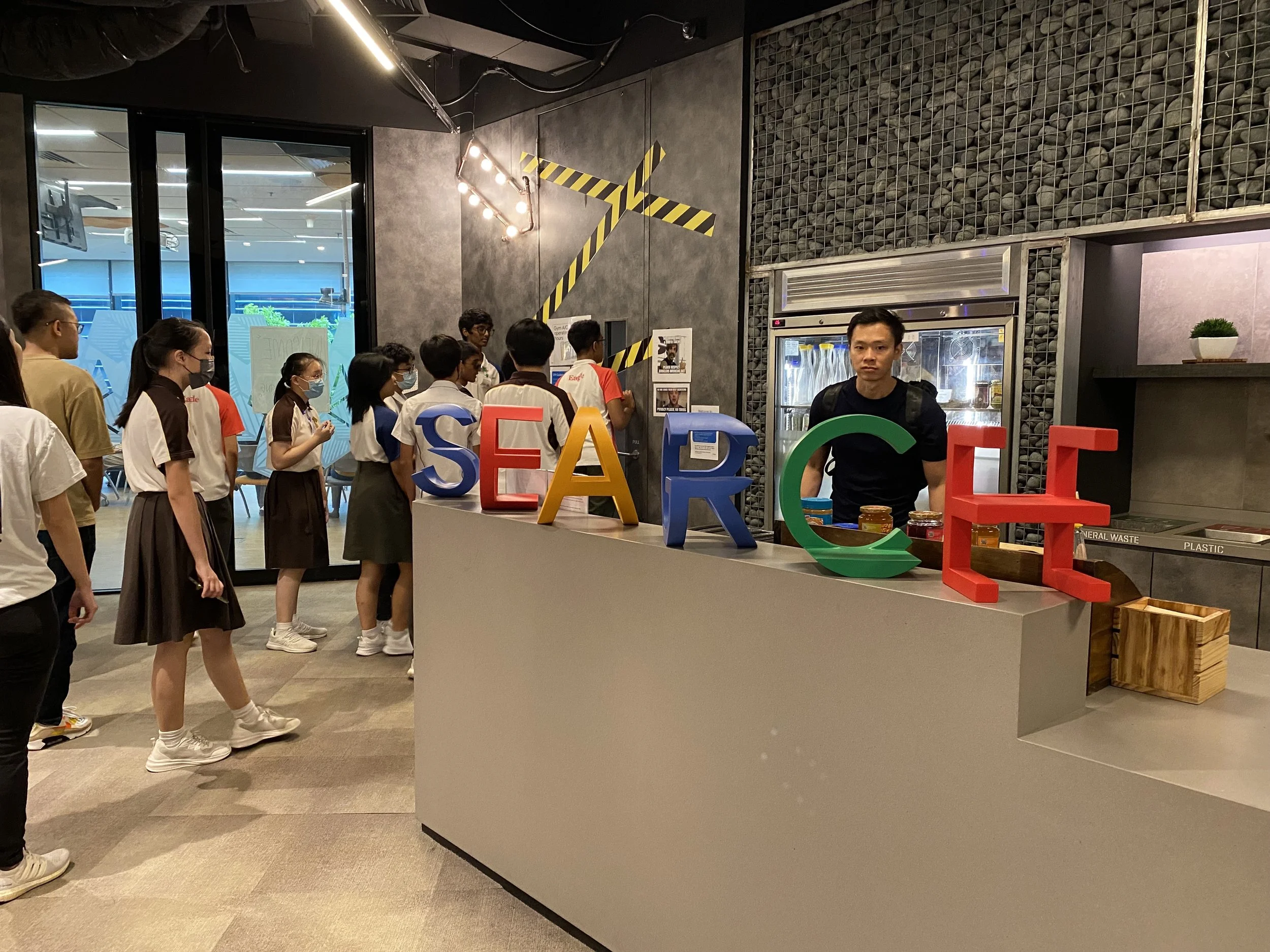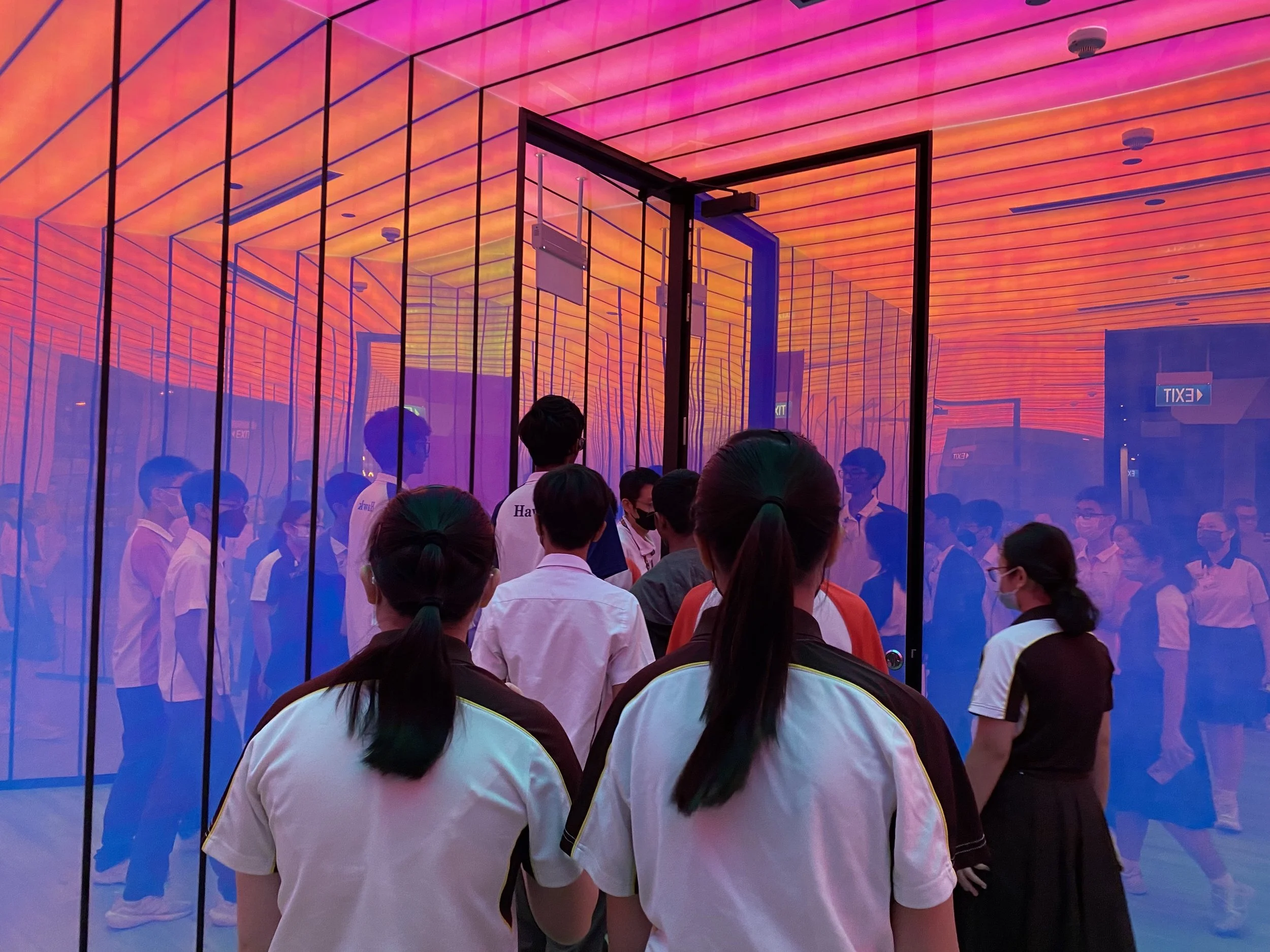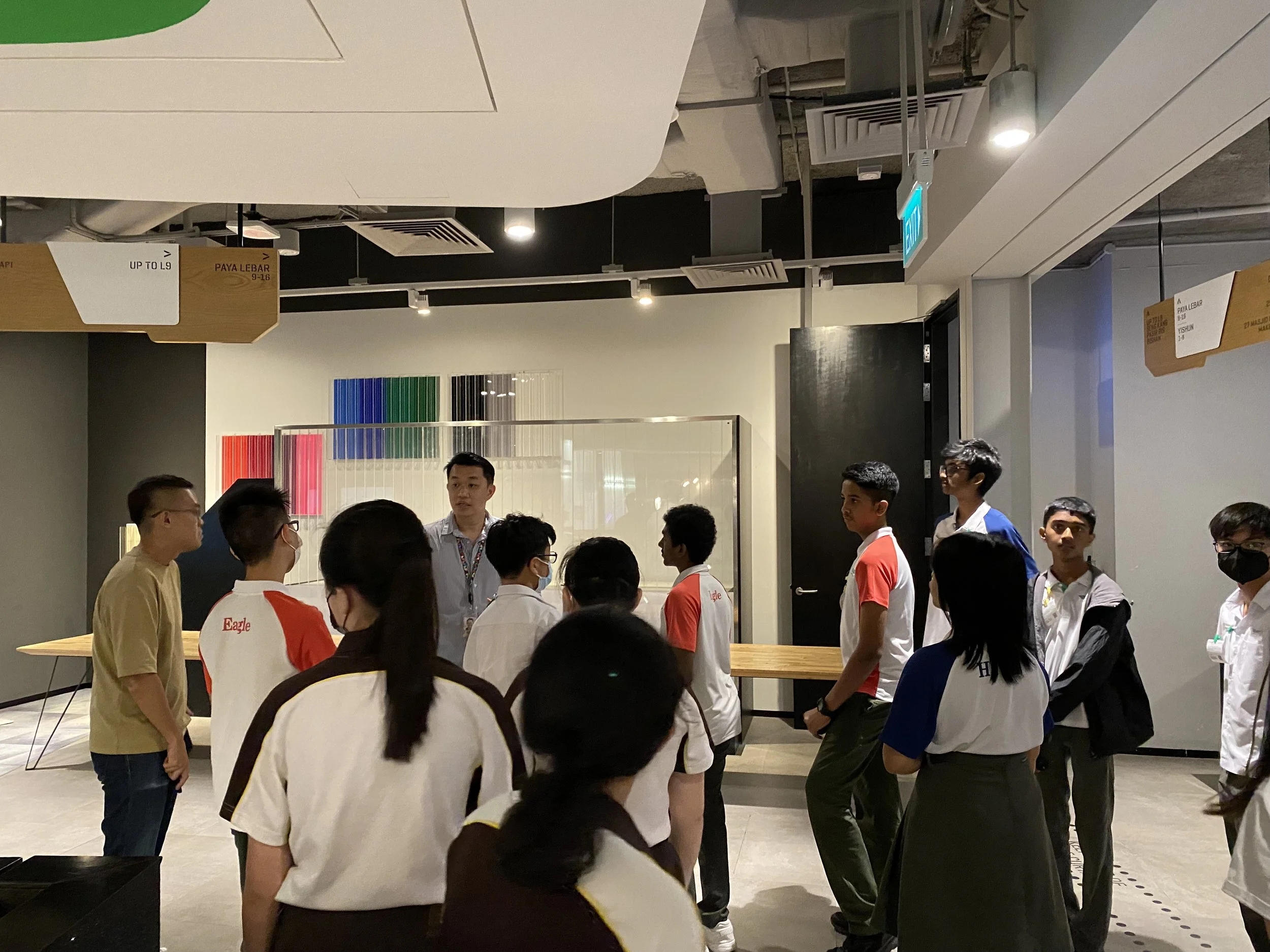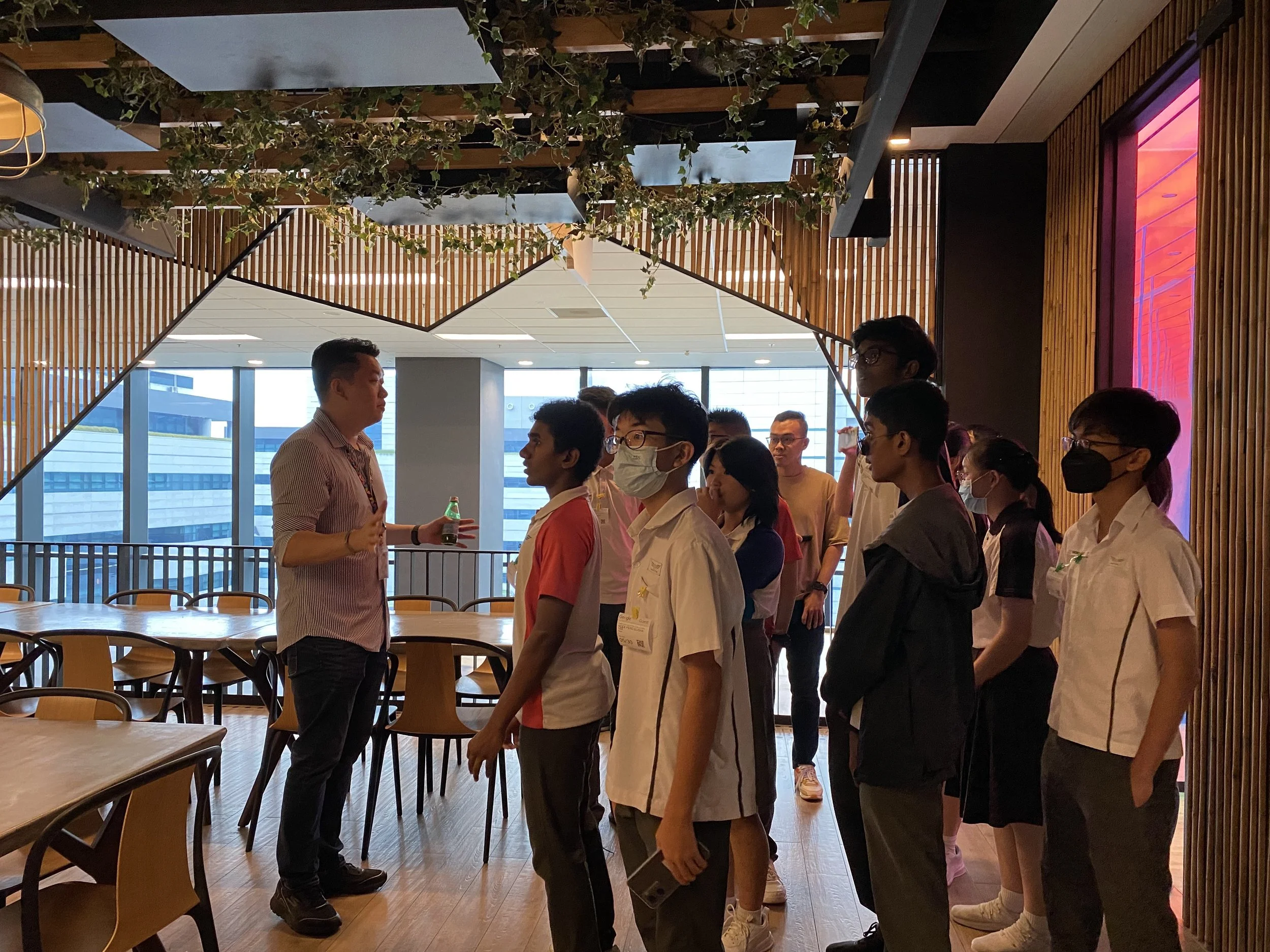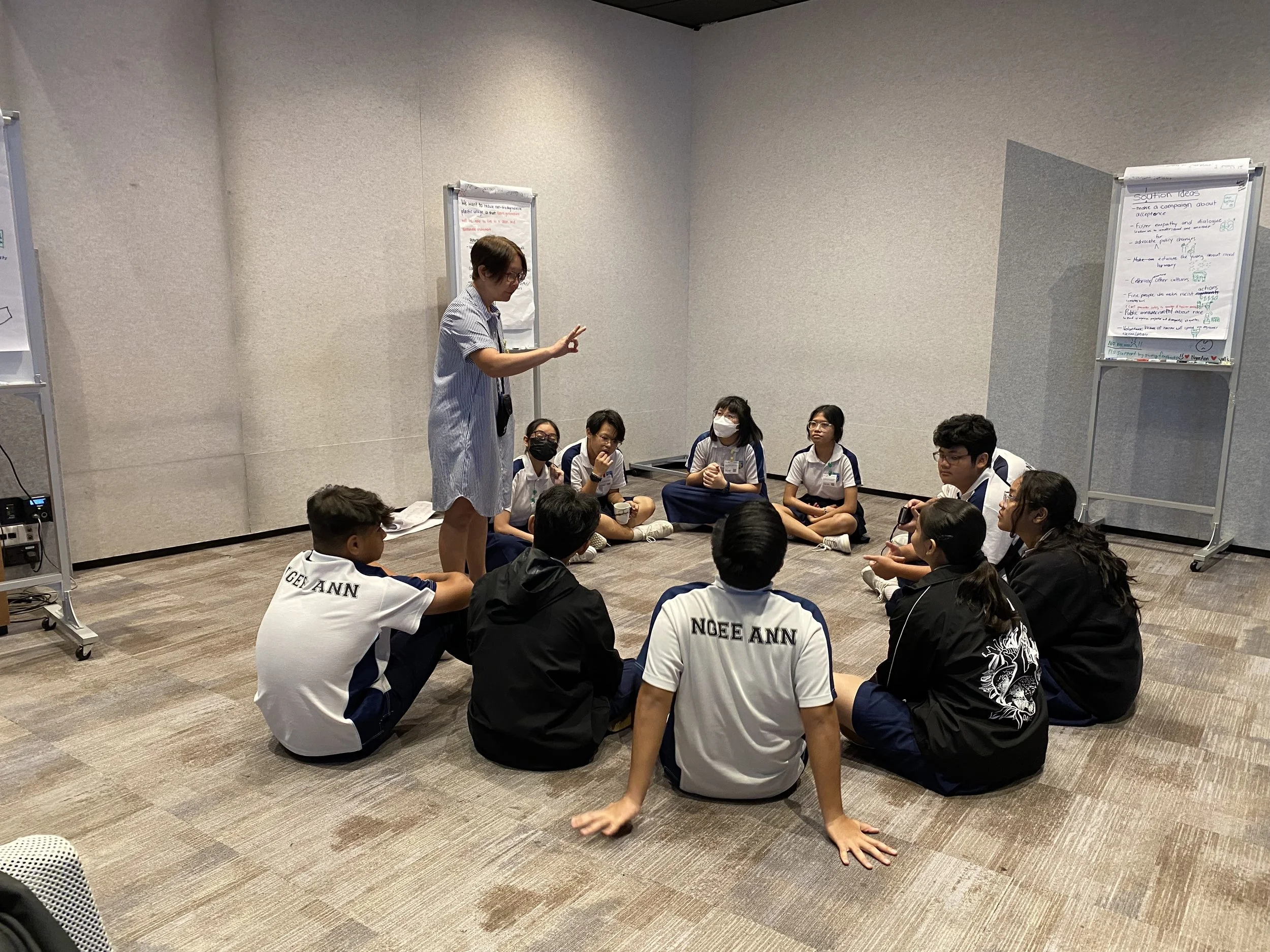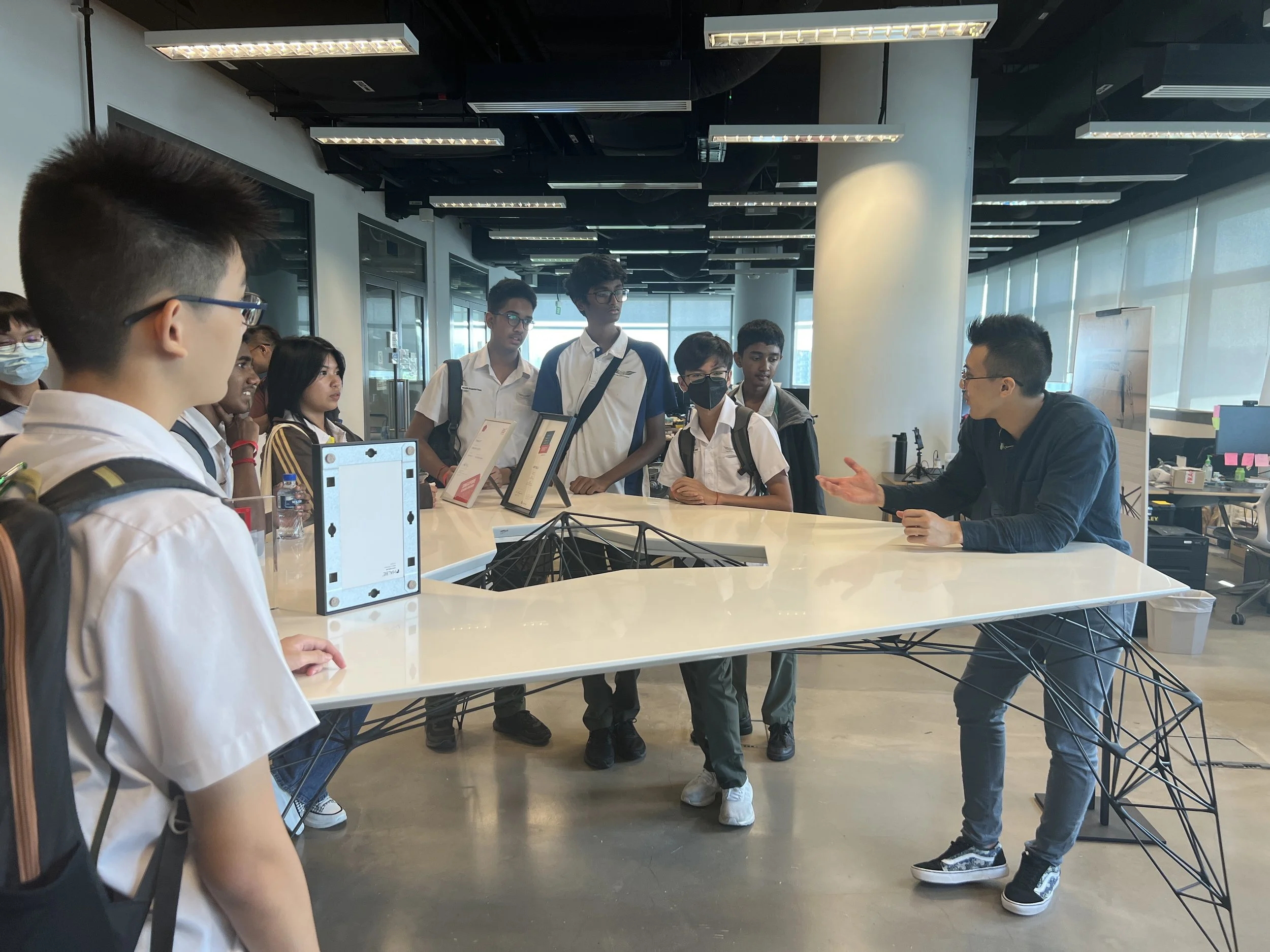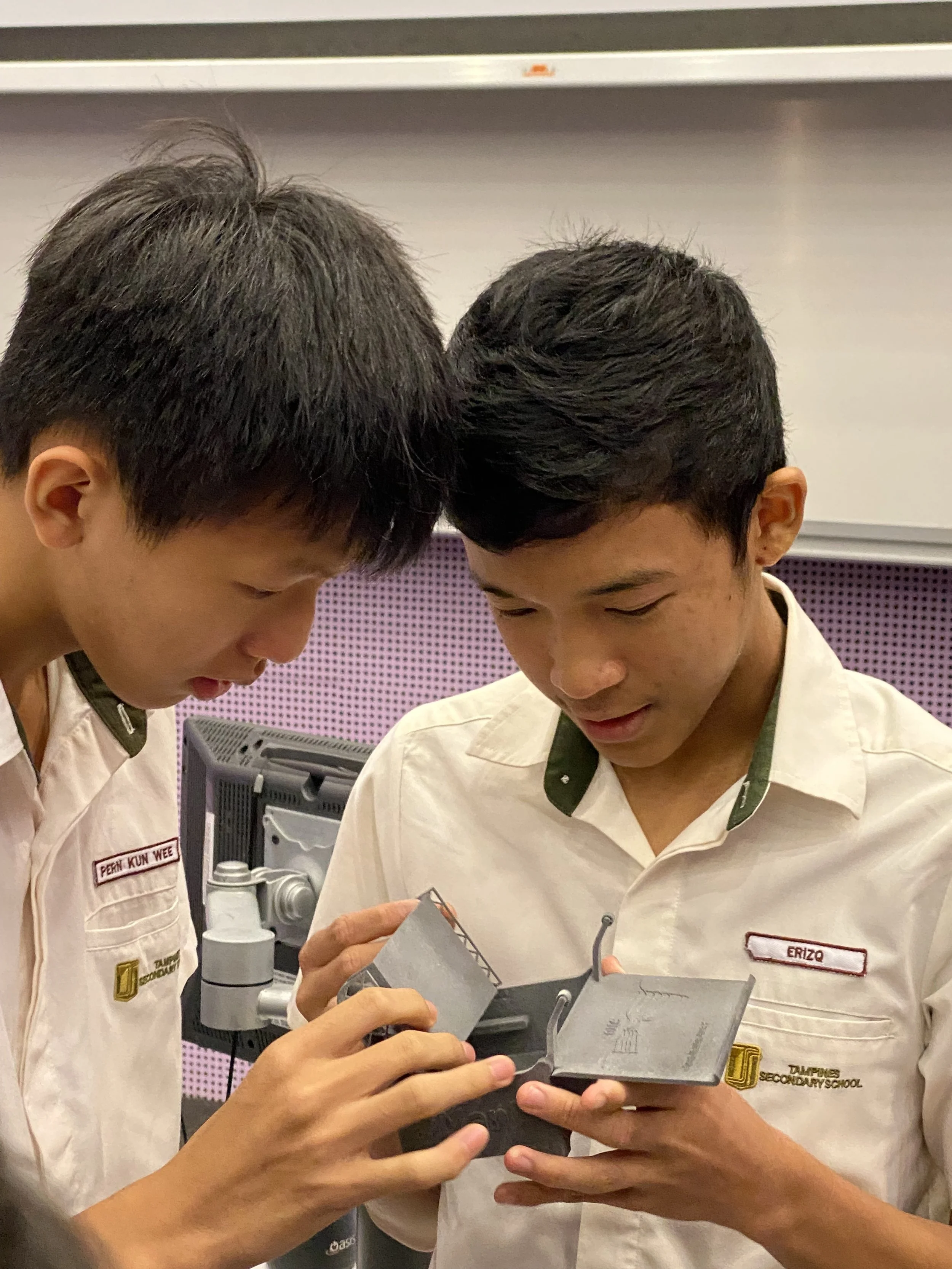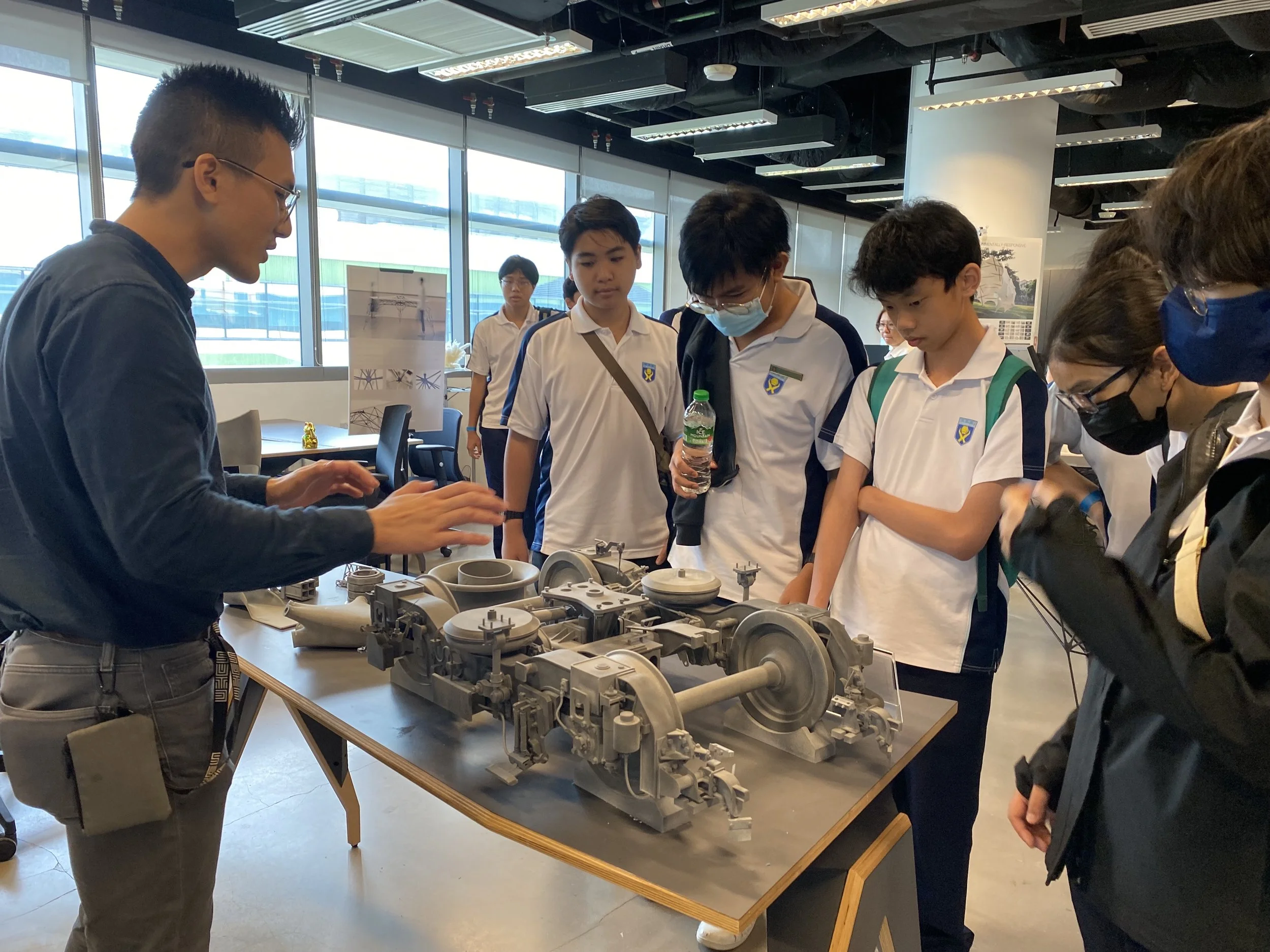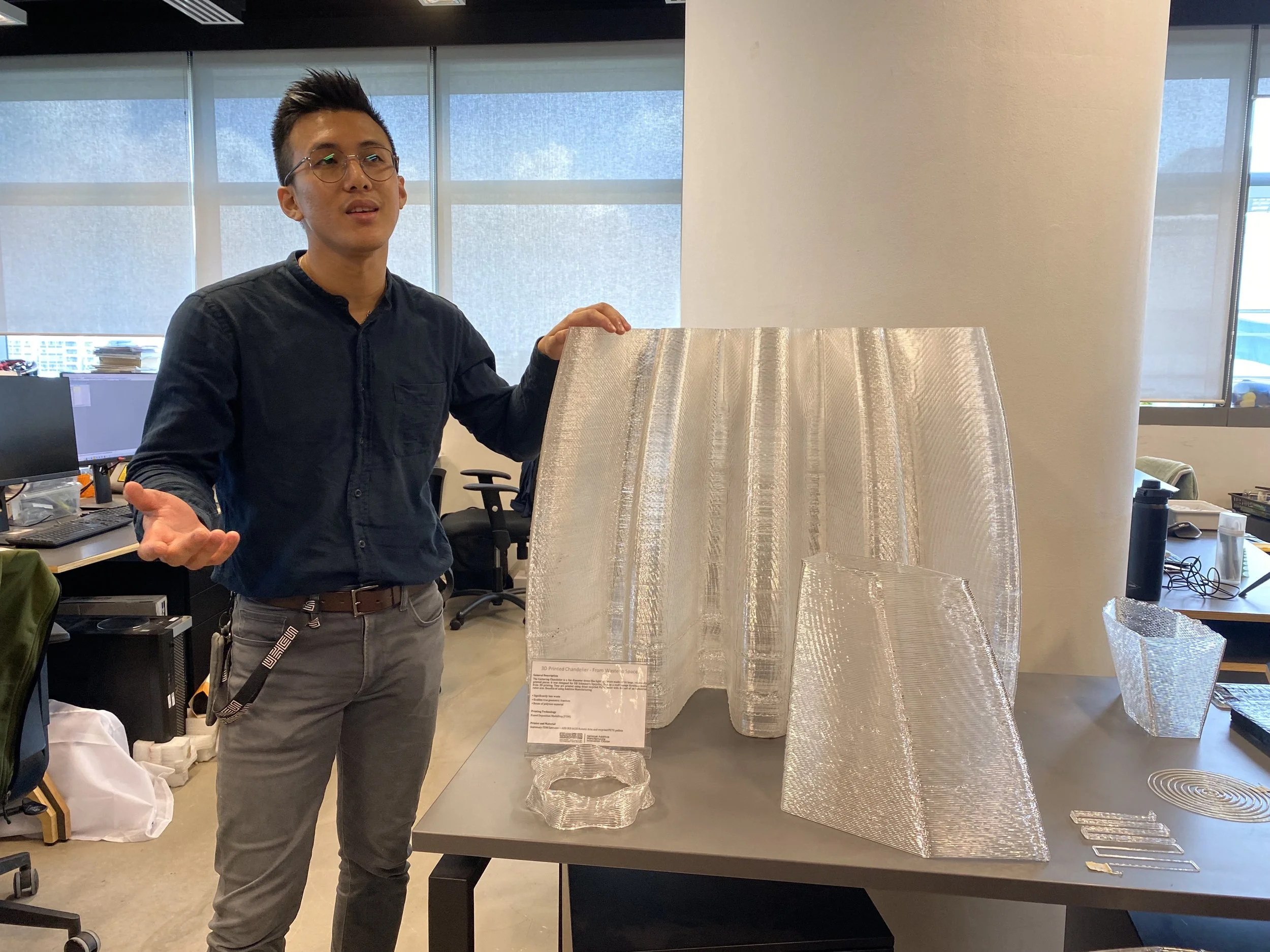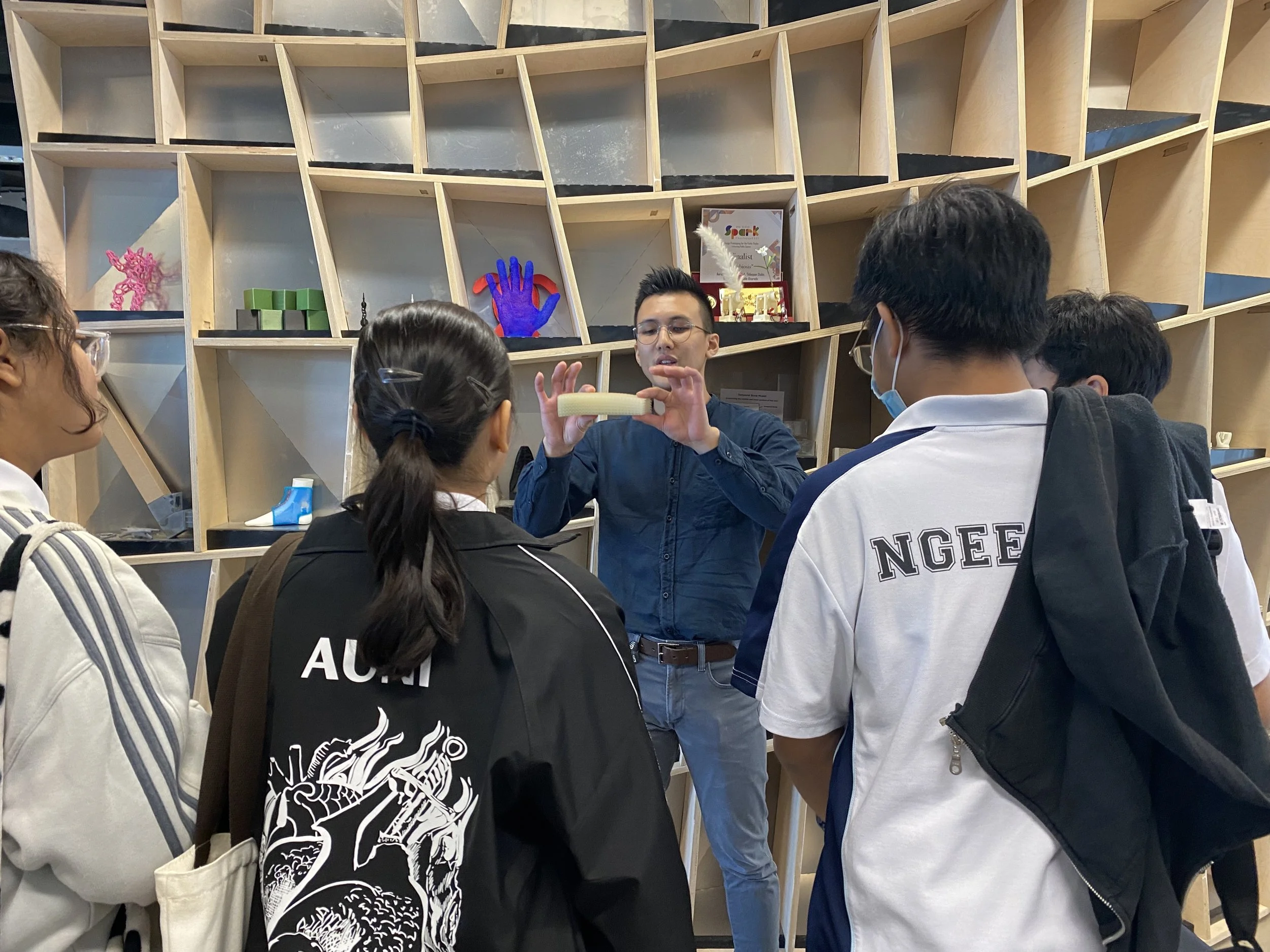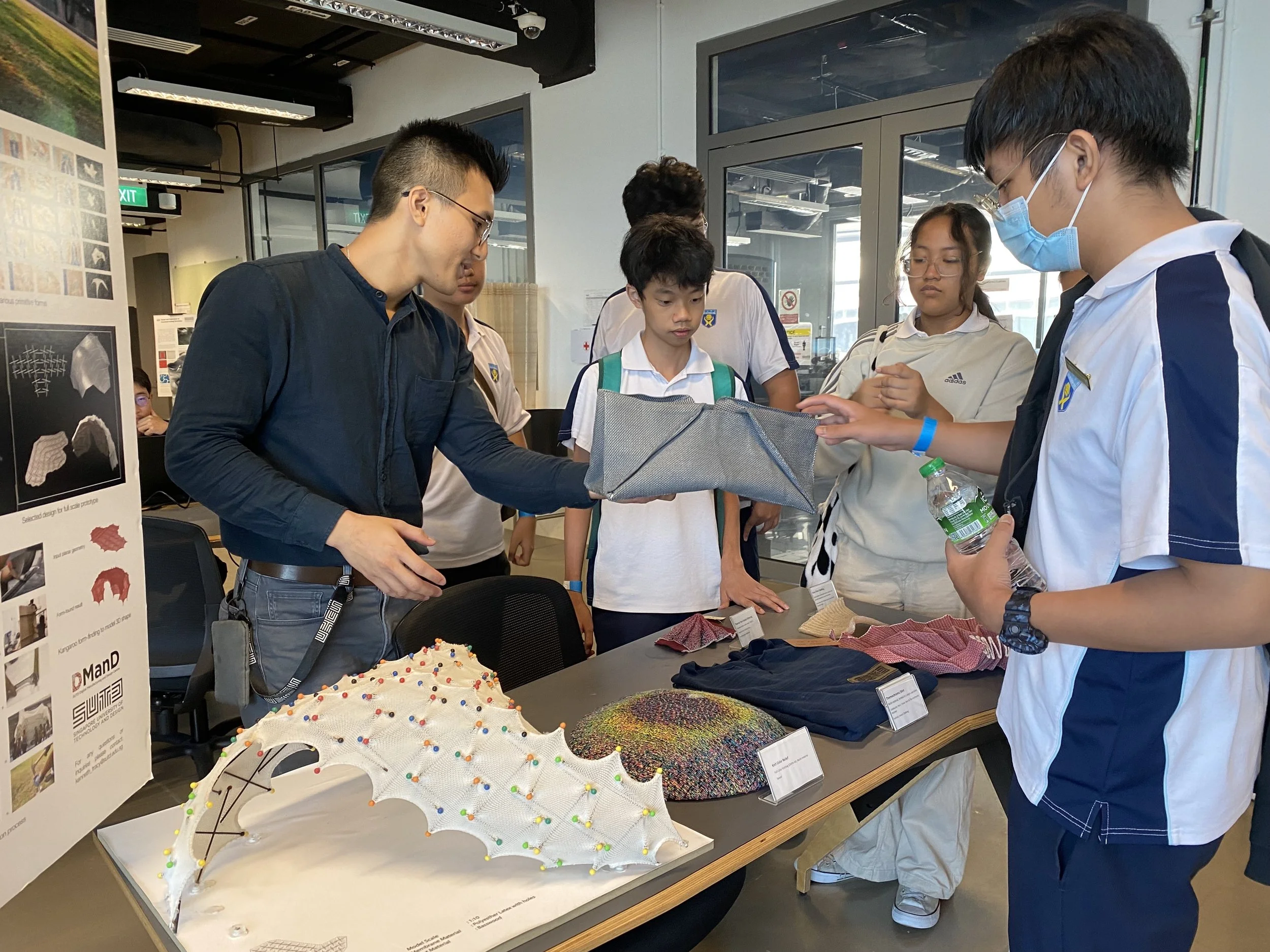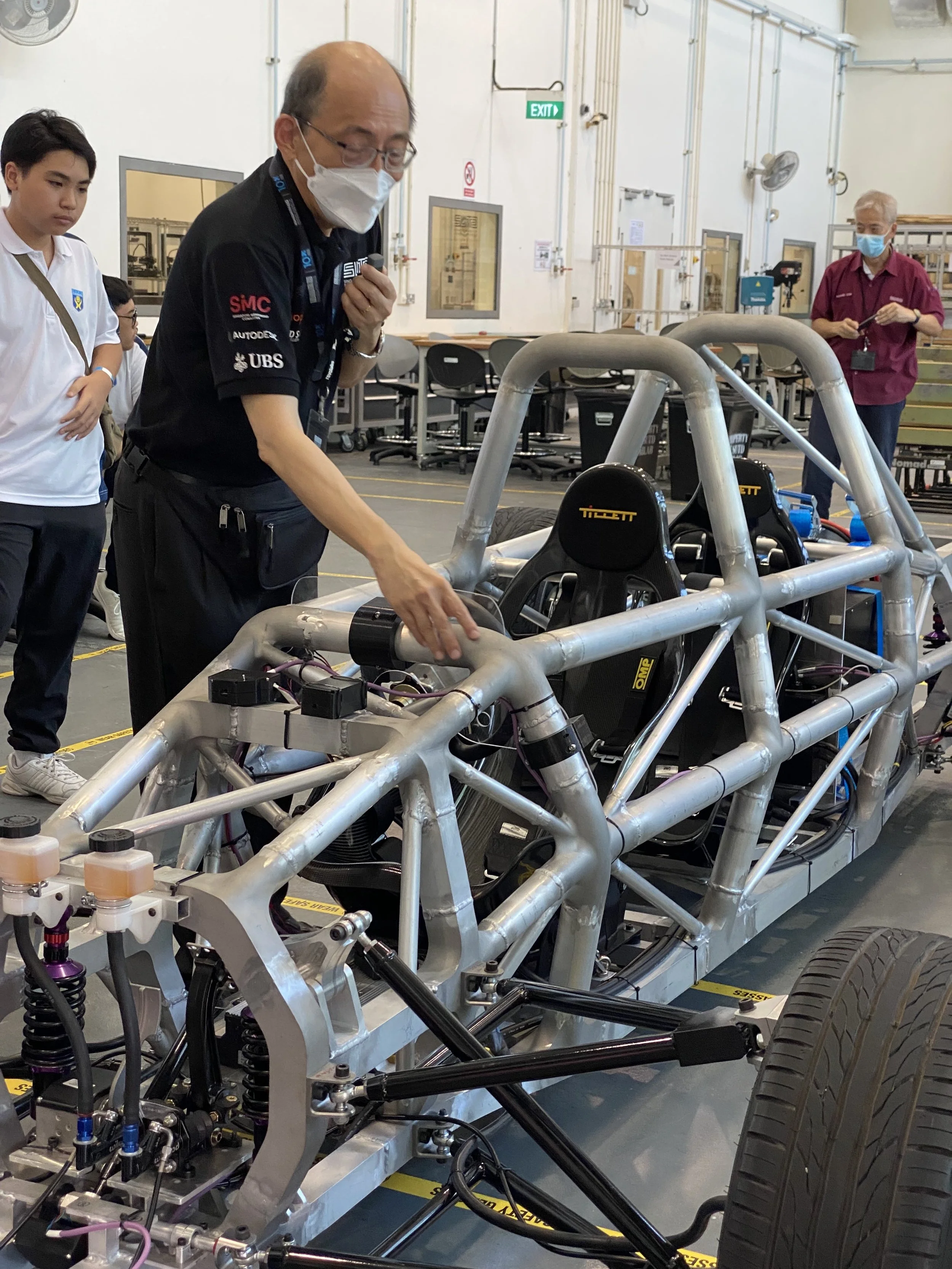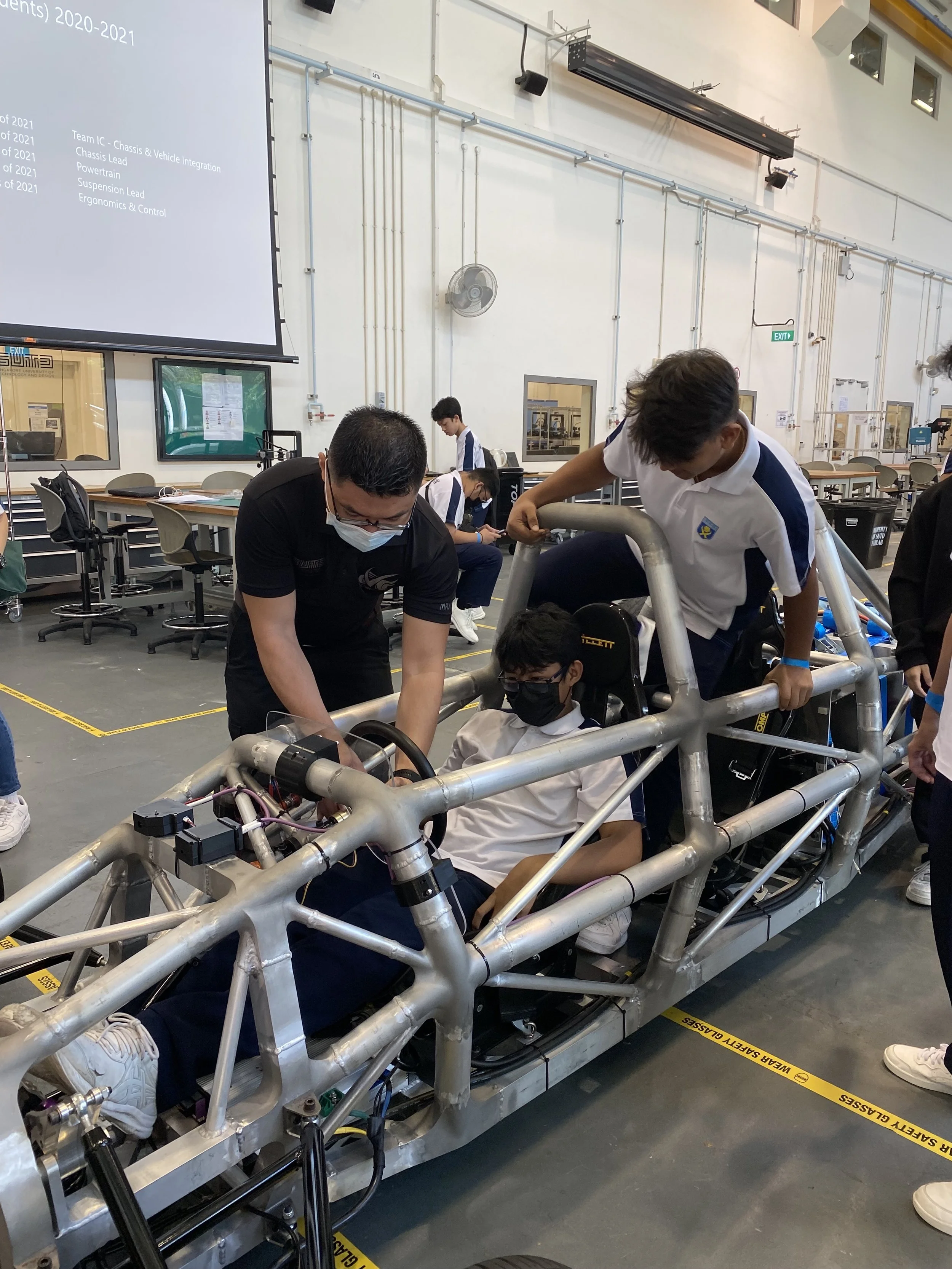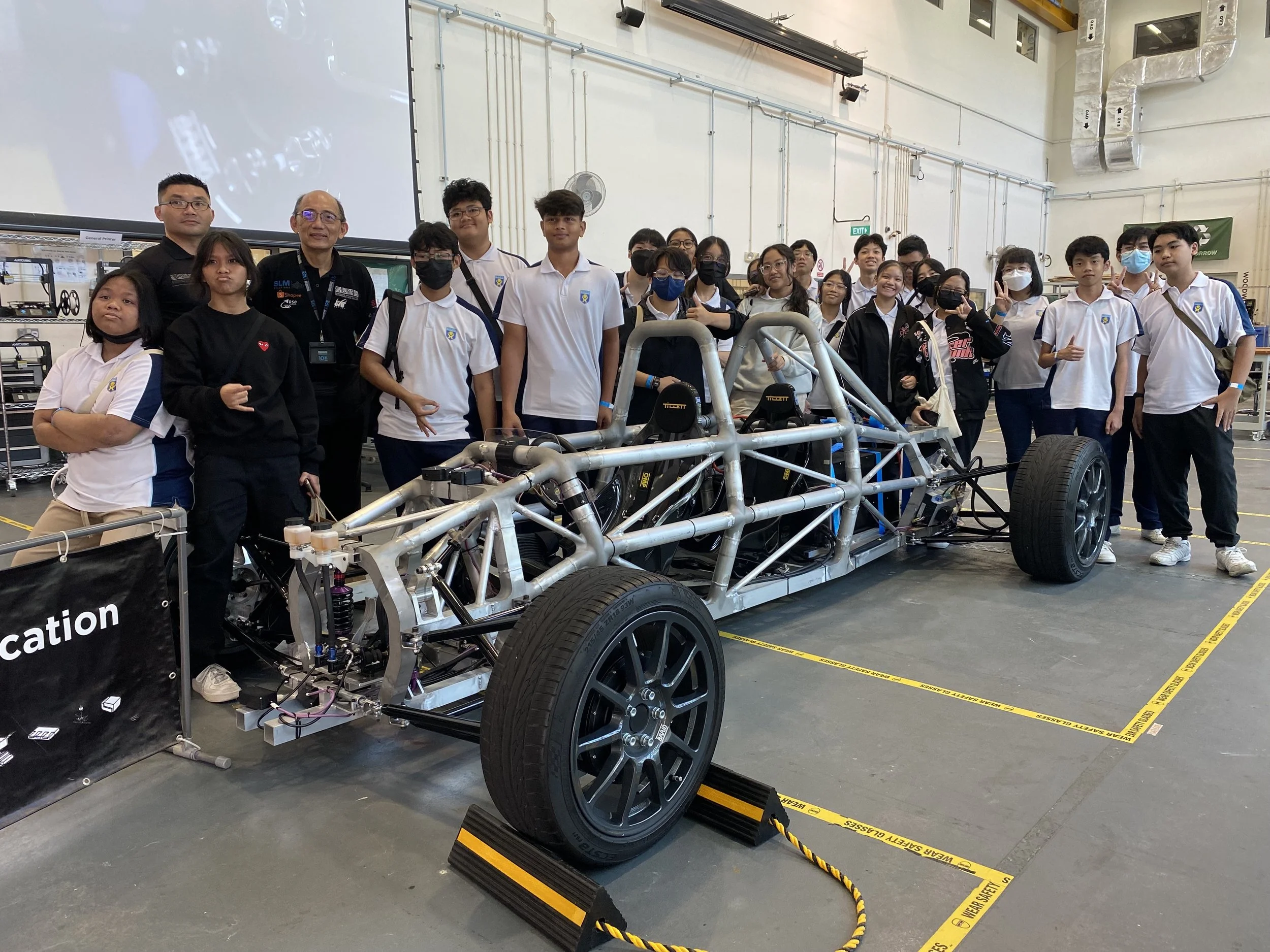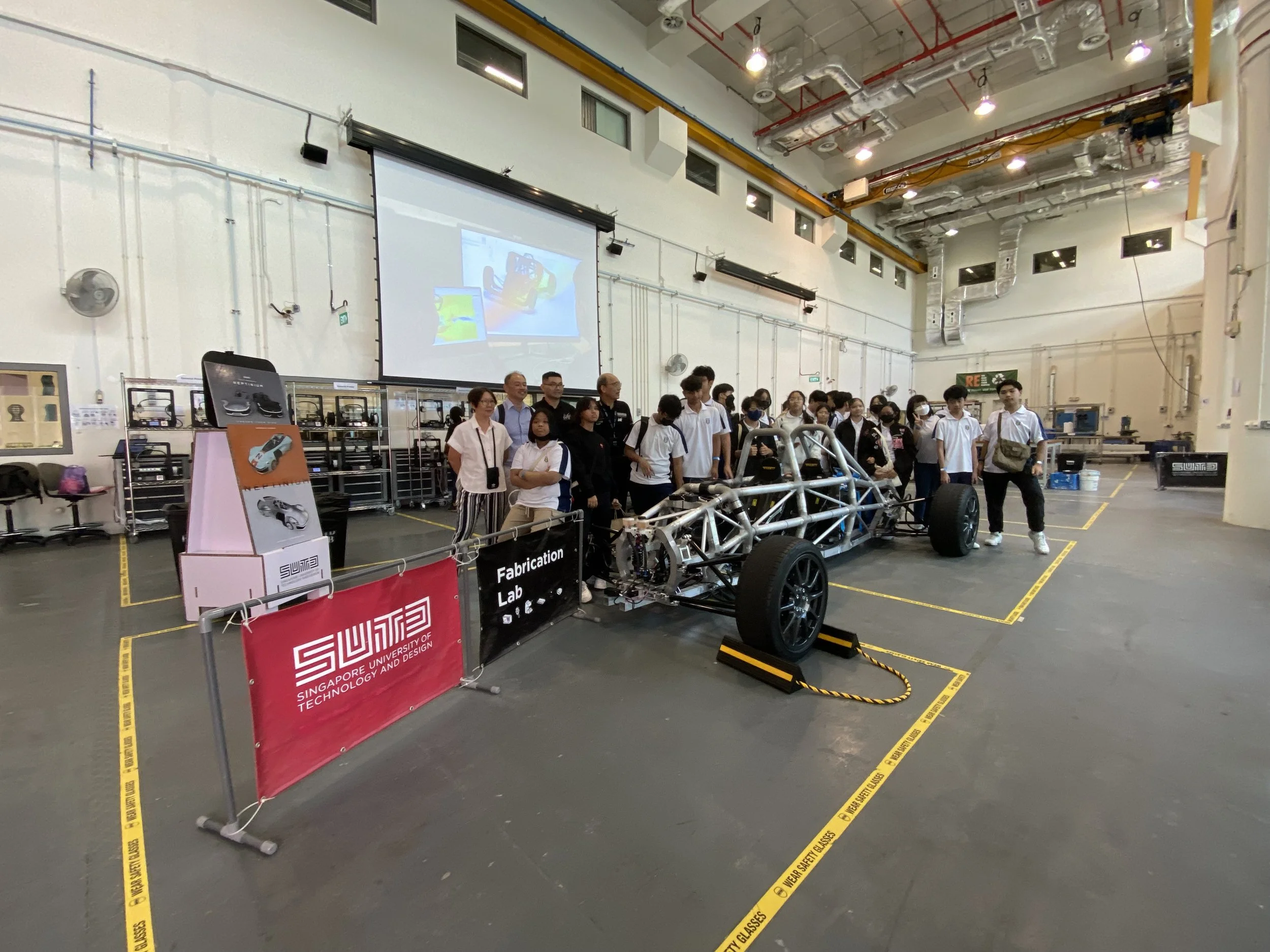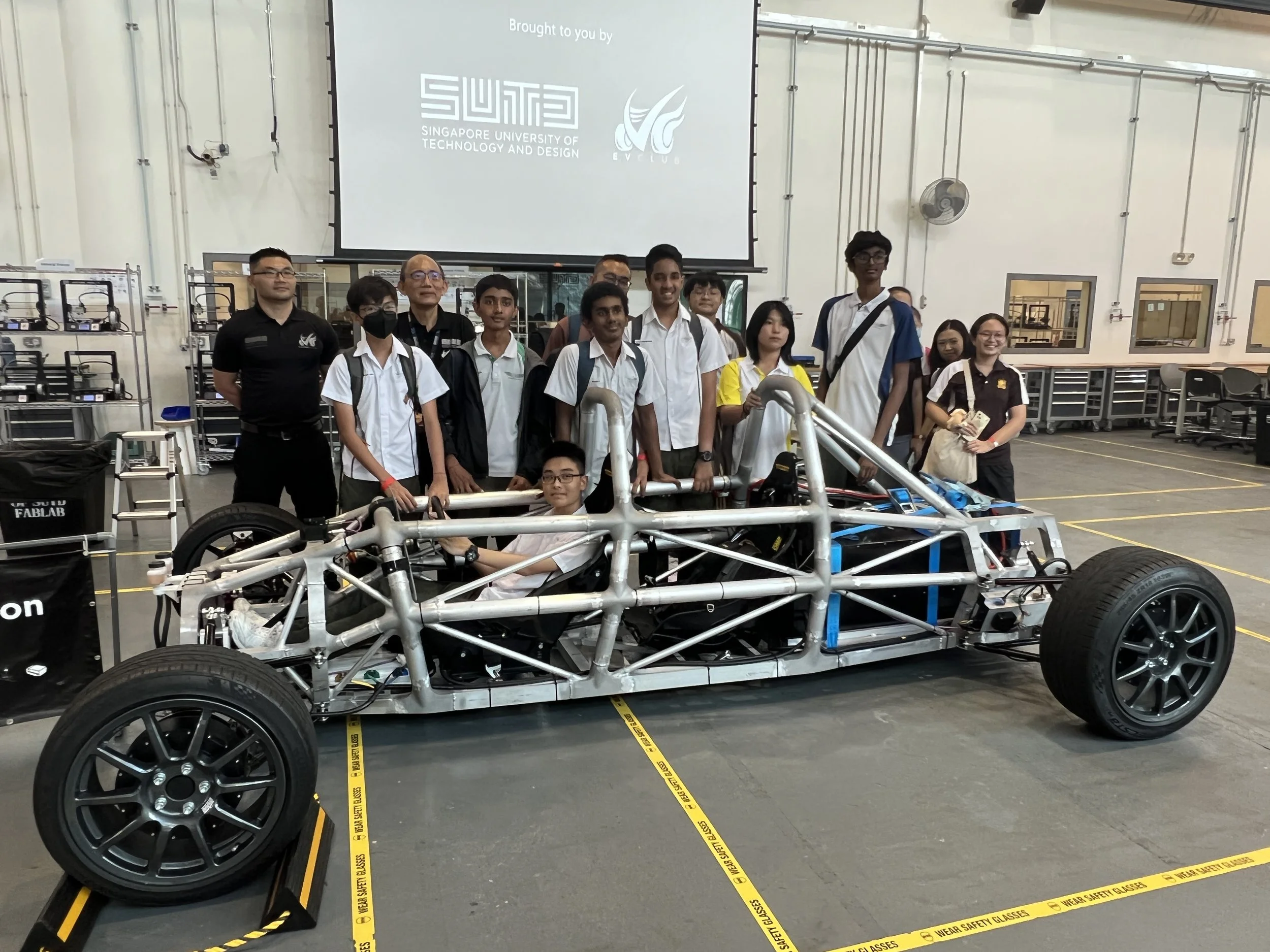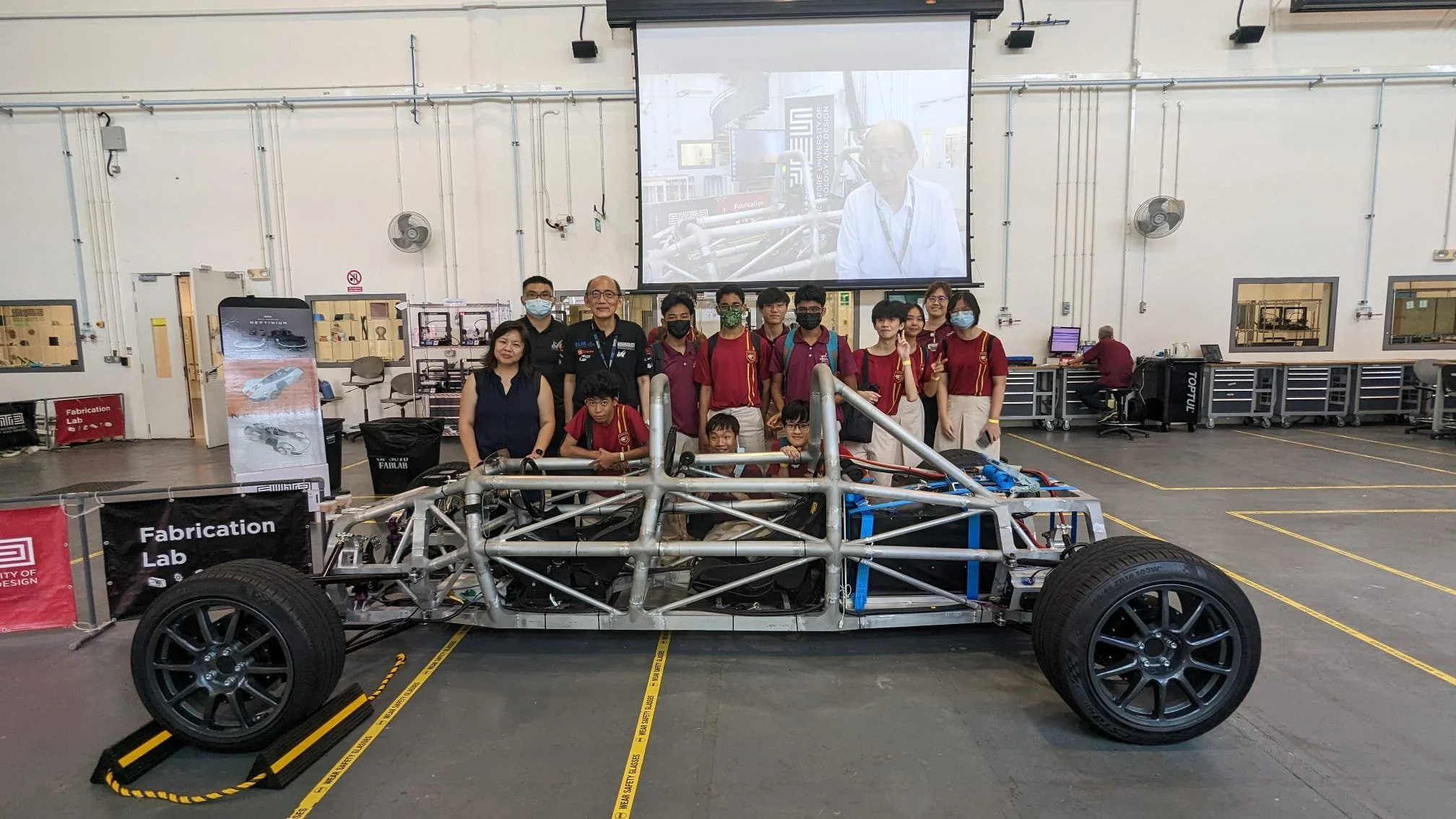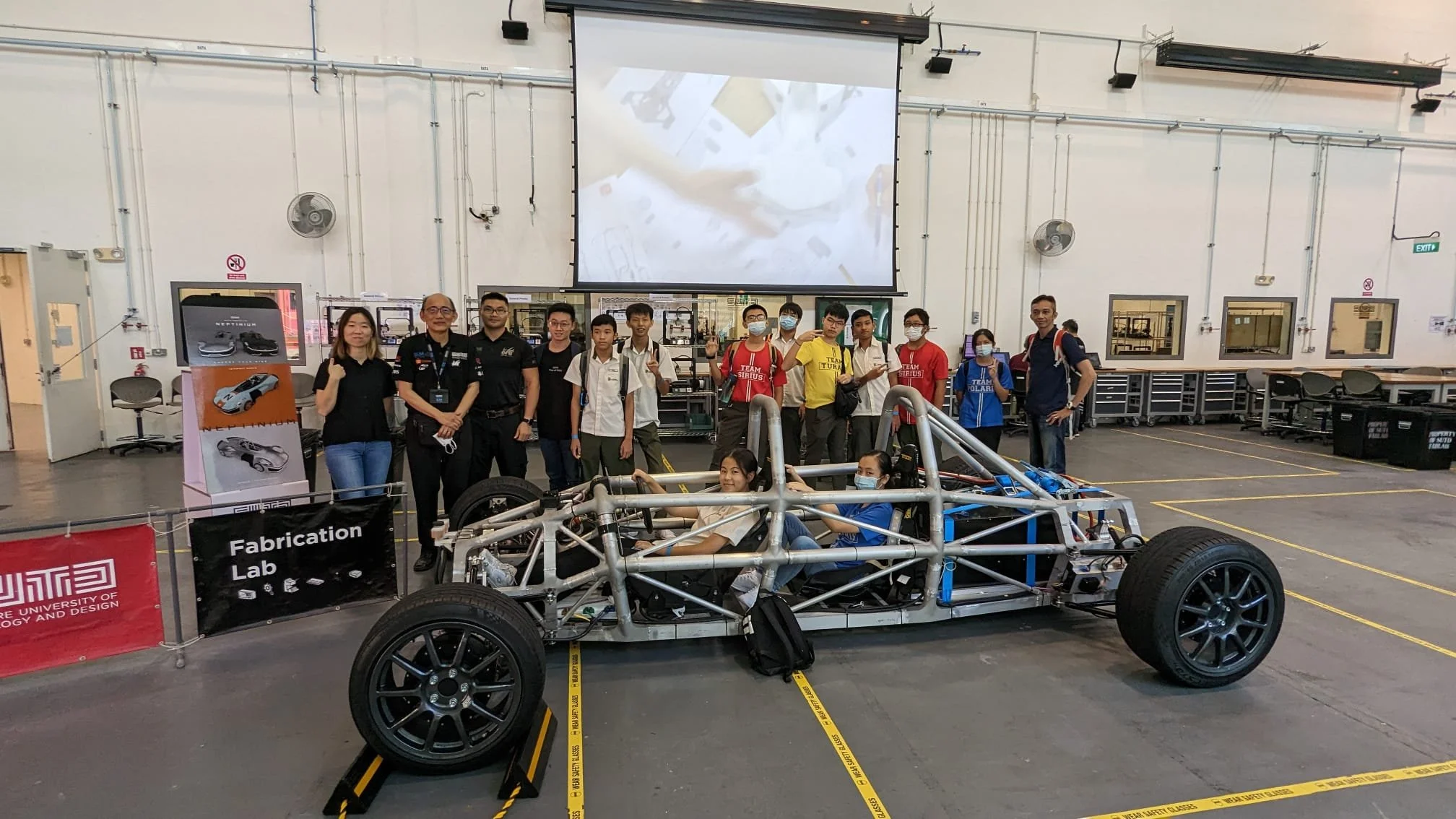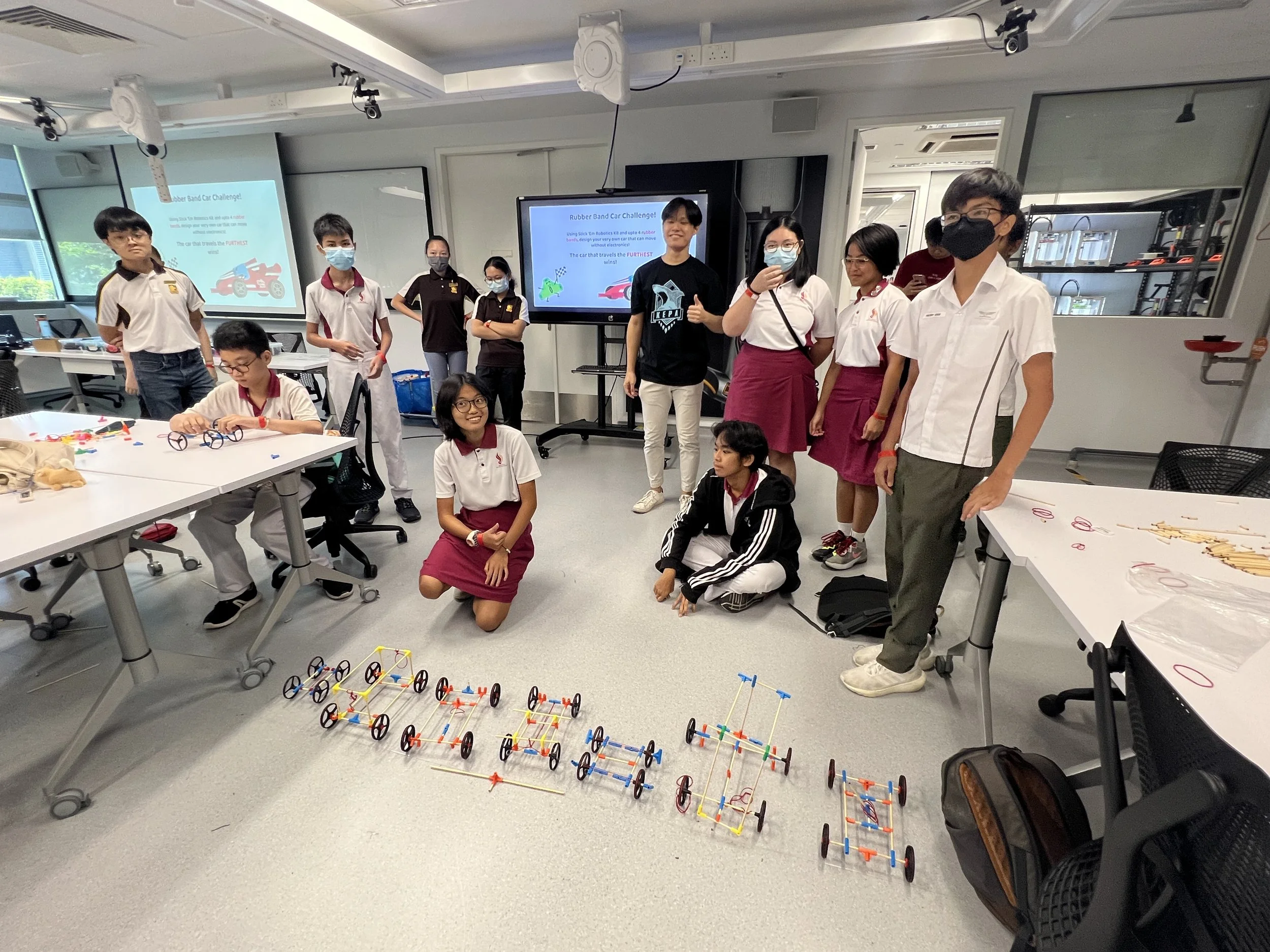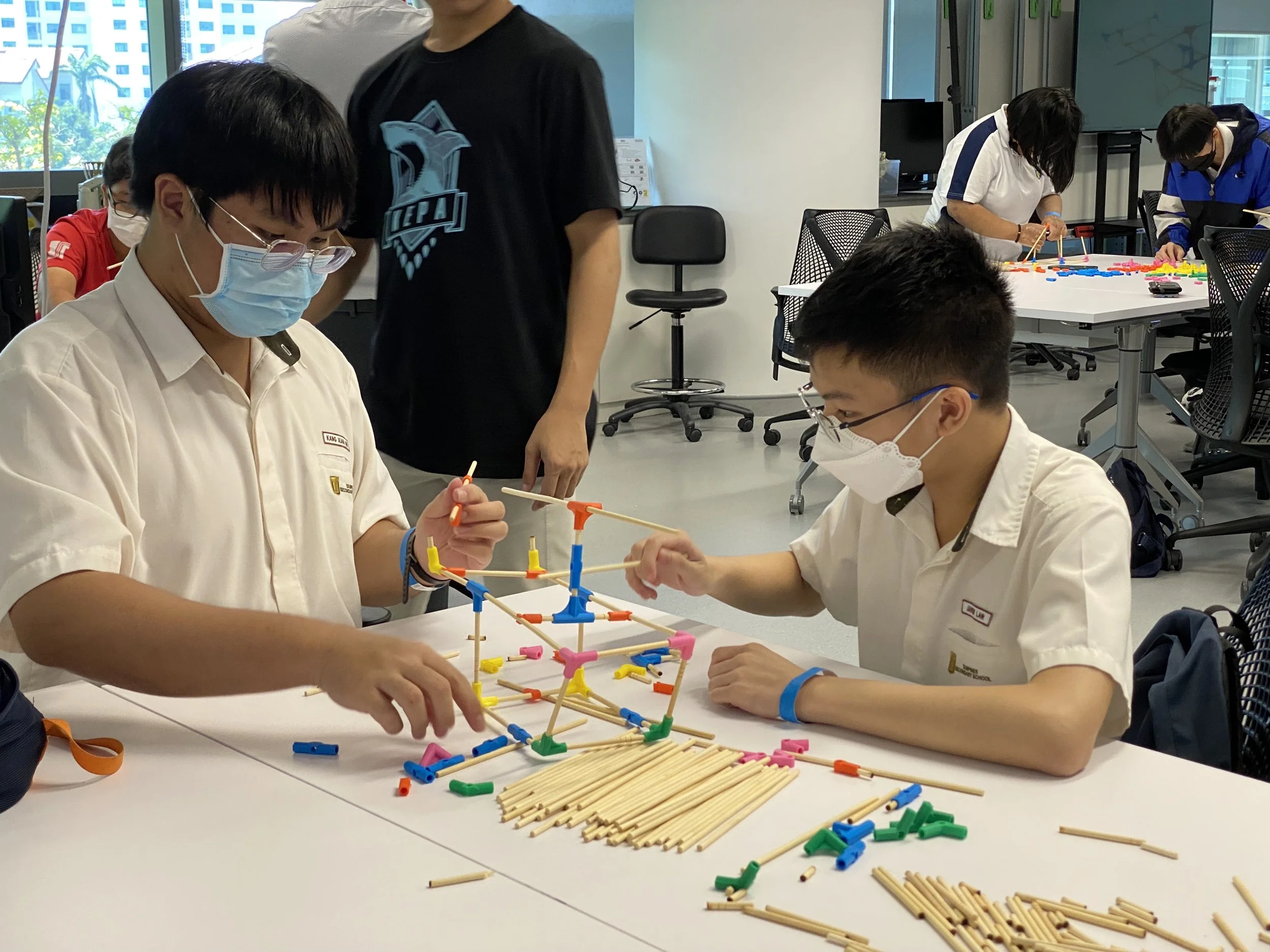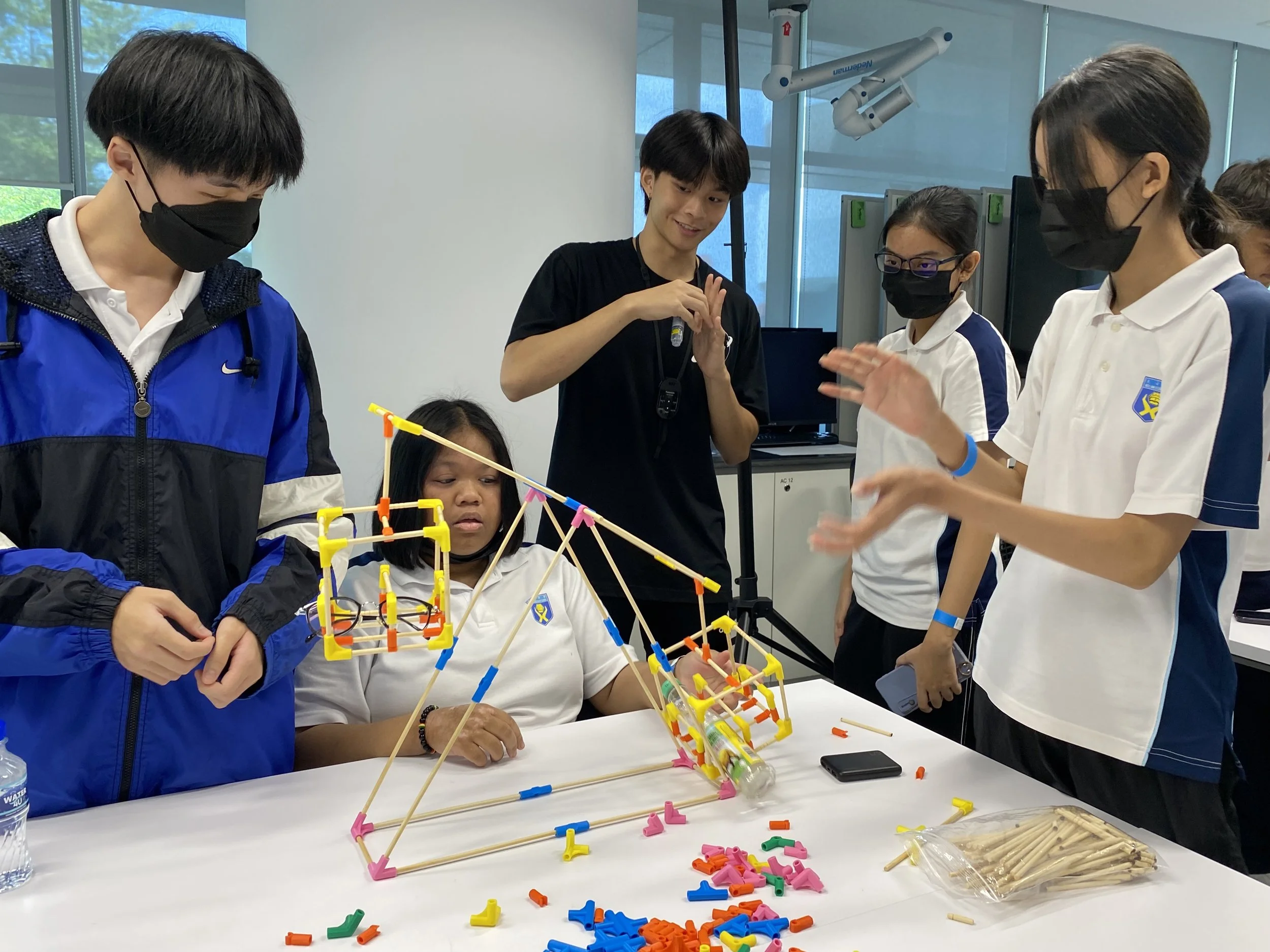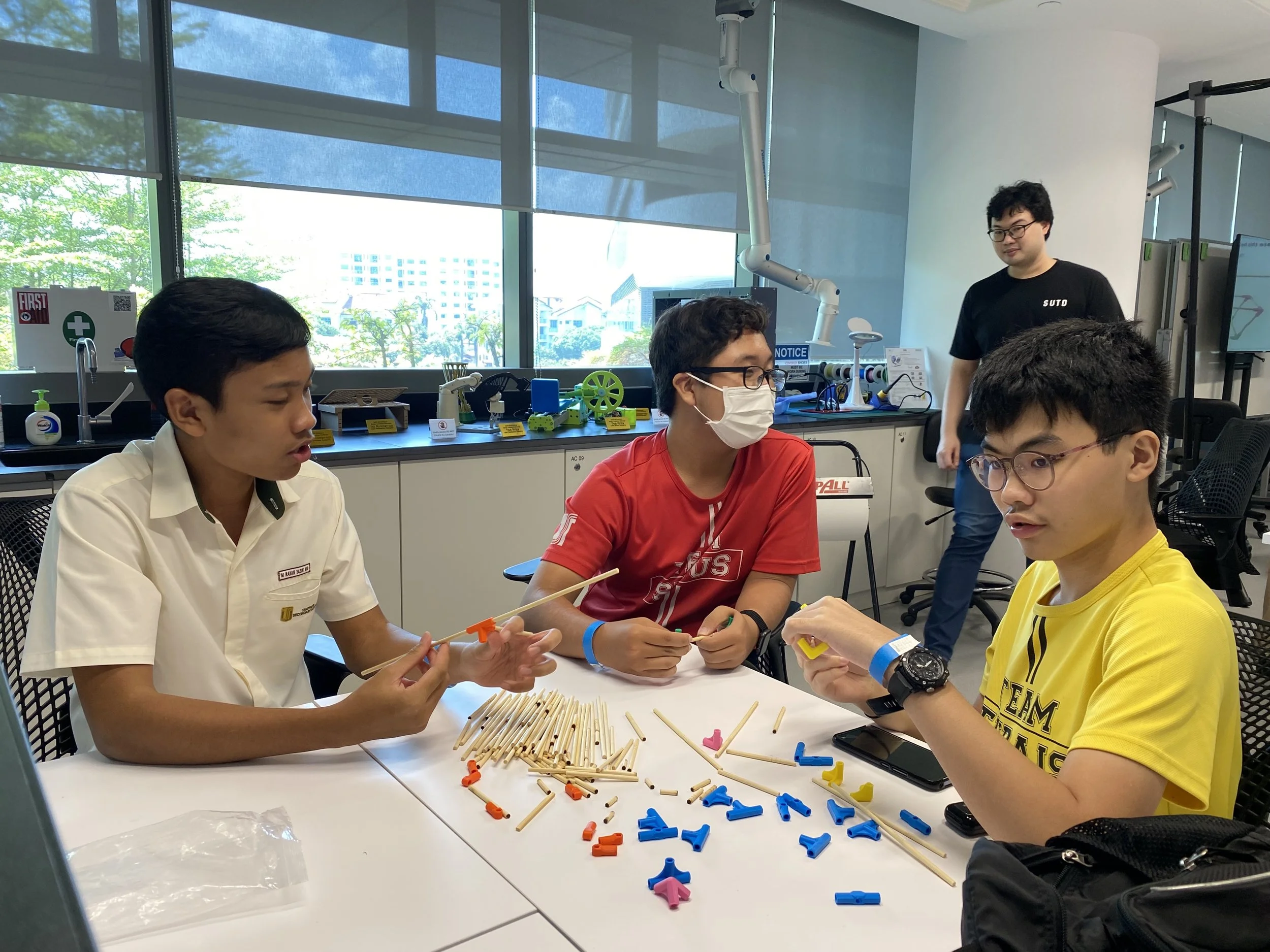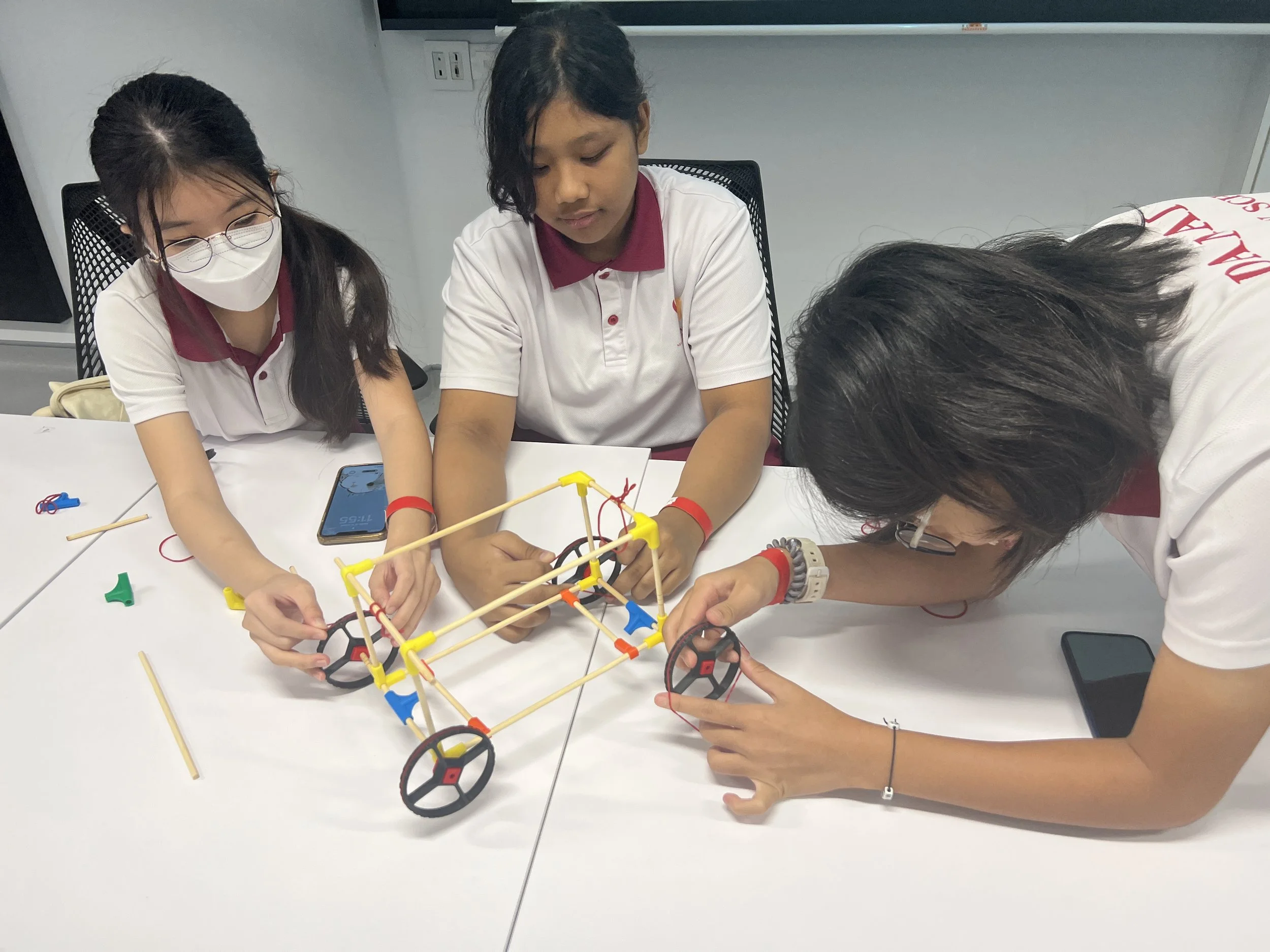Temasek Foundation - EPIC-STEM Programme for Singapore Students
EPIC-STEM is a three-year programme organised by the Multi-centric Education, Research and Industry STEM Centre at the National Institute of Education (meriSTEM@NIE), Nanyang Technological University. Fully funded by Temasek Foundation, the programme aims to develop STEM competencies in 100 selected Singapore secondary school students over three years starting in 2023. Students will participate in STEM project work to build a portfolio. They will learn from STEM experts from the Institutes of Higher Learning (i.e., Institute of Technical Education (ITE), Temasek Polytechnic (TP), Singapore University of Technology and Design (SUTD), and the STEM industry.
The programme has attracted 133 students from seven secondary schools, namely Changkat Changi Secondary School, Damai Secondary School, Duman Secondary School, East Spring Secondary School, Loyang View Secondary School, Ngee Ann Secondary School, and Tampines Secondary School.
Programme Highlights
EPIC-STEM Hackathon, 15 Mar 2023
Opening speech by Mr Stanley Lee, Senior Director, Temasek Foundation
A one-day hackathon was held at Dunman Secondary School to officiate the launch of the programme. Many STEM experts who were partners in this programme were also present at the opening ceremony.
The event started with a welcome speech by Associate Professor Teo Tang Wee, followed by an opening address by the Guest of Honour, Mr Stanley Lee, Senior Director, Temasek Foundation. Mr Lee underscored the importance of integrating knowledge across different disciplines to solve the highly complex world problems of today. The EPIC-STEM programme will not only enhance the learning journey of the students, the sharing of knowledge amongst students and STEM industry, will also enable everyone to grow together as a community.
The students were challenged to solve the problem of bird nuisance – something that most Singaporeans could resonate with when they visit and dine at hawker centres. Given only three hours to hack the problem, the students worked collaboratively in their teams. Having decided on how they would solve the problem, they split the required tasks amongst themselves, with some focusing on design, while others engaged in digital coding of a new device called Halocode.









They built prototypes and pitched their ideas to the experts comprising Mr Ng Yong Sim, Dr Michael Tan, and Associate Professor Li Jia from the National Institute of Education, Dr Lee Chee Huei from the Singapore University of Technology and Design, Mr Elvis Tay from Temasek Polytechnic, Ms Sheena Lai from Design Council Singapore, and Dr Chris Ho from Amazon Web Service. Impressed by the creativity and innovativeness of the prototypes developed, 7 teams were selected to present their solutions and were awarded a prize at the end of the event.







With the new knowledge gained from the hackathon, the students will move on to the next phase of the programme – to brainstorm their STEM inquiry project and engage in an ongoing process of building their personal and team STEM portfolios which could be used for their future career.
EPIC-STEM Learning Journey, 29-31 May 2023
95 students participating in EPIC-STEM kicked off their June holidays with a 3-day Learning Journey that took place from 29 May to 31 May.
Temasek Polytechnic (29 May)
The morning’s programme started at Temasek Polytechnic where the students were split into four groups, each getting to visit different schools within the polytechnic. The groups had a mix of students from each school so they could share their experiences with each other after. The students visited the School of Informatics and IT, School of Design, School of Applied Science, and School of Engineering. They learnt about the different curricula offered and career prospects from each school, were given a tour of the school facilities and got to see projects done by the school.
ITE College East (29 May)
After lunch, the learning journey continued on to ITE College East. The students had an enlightening tour of several cutting-edge technology facilities. The tour offered a practical, hands-on view of the fields of artificial intelligence, cyber security, data science, digital fabrication, and broadcast media. The trip comprised visits to an Artificial Intelligence Lab, E-Makerspace, Cyber Security Lab, Data Centre Lab, and the Go Live! Studio. After the tour the students were given a talk on ITE's vision and training objectives and learned about ITE's unique work-study diploma. The tour and talk offered an invaluable learning experience, equipping students with an understanding of industry trends and potential career paths.
The students also got to experience either a Drone Technology or Digital Sewing hands-on activity at ITE College East.
The students experienced an in-depth exploration of Drone Technology, from understanding of the basic definition and uses of drones, to the fundamentals of drone operations and mechanics. The students were then introduced to the basics of drone programming, with a special focus on navigation and control. To instill a sense of creativity and problem-solving, students were given challenges that required them to apply their newfound skills in real-world scenarios.
At the e-Makerspace the students got to try their hands at digital sewing using BERNINA sewing machines to make their own tote bag. They stitched decorative outlines on their tote bag and sewed together the body of the bag. This activity was a real learning experience to gain practical experience in troubleshooting. All the students were very engaged with the activity and even the teachers joined in.
Google Asia Pacific (30 May)
The most anticipated part of the learning journey for the students was their visit to Google Asia Pacific. Mr Felix Goh, Strategic Lead – Education, EdTech & Research started the session off with an introduction to Google’s culture and values which set the groundwork for the Design Thinking workshop, which followed next, where the students got a chance to work with peers from different schools. The students were tasked to come up with a “moonshot” problem statement that tackles an issue that is relevant to them, applying the culture and values they had just learnt.
The afternoon saw four schools present their STEM inquiry projects to their peers and a panel from Google, consisting of Mr Vishal Kulkarni - Program Manager, Network Operations Supply Chain and Mr Amit Garg - APAC Regional Manager. First was Changkat Changi Secondary School with their project called Fun Ride in Food Saving; Second was Damai Secondary School with Deafening Silence; Third up was Ngee Ann Secondary School with their project, Food Savers ; and last to present was Tampines Secondary School with Smart Tray Deposit. After the presentations, the students dived back into their Design Thinking Workshop to come up with possible solutions for their moonshot problem. At the end of the workshop, two groups had the opportunity to present their problem and solutions.
The students were thrilled to go on a tour of Google’s facilities, visiting the different canteens, barista manned cafe and Google’s Wellness Centre. The day’s programme ended with the students consolidating what they have learned during the last two days through a focus group discussion with their teachers, guided by NIE Teaching Fellow, Mr. Ong.
SUTD (31 May)
The last day of the learning journey began with an introductory presentation by Assoc. Prof Dario Poletti, head of Science Mathematics and Technology (SMT), Programme Director, SUTD Honours and Research programme, where he talked about the SUTD approach, the undergraduate programmes available, and SUTD’s strong focus on an interdisciplinary curriculum which highlights collaborative learning and peer-to-peer learning. After the presentation, the students were split into three groups, each taking turns to visit the Digital Manufacturing and Design Centre (DManD) and Electric Vehicle Additive Manufacturing (EVAM) Fabrication Lab, engage in a hands-on activity conducted by Stick’Em at the Dyson-SUTD Innovation Studios.
At DManD, the students learned about digital manufacturing and computer aided design from Ronald Yeung, the lab manager. After a short introduction, the students got an up close look at various remarkable artefacts of different materials made by various cutting-edge 3-D printing techniques.
Next on the tour was the EVAM Fabrication Lab, where they were briefed by Professor Lim Seh Chun on the fabrication and assembly of a 2-seater Formula-style race car with a host of 3D printing and AI technologies implemented into its design, that was built by a team of undergraduates and faculty members. While the students did not get a chance to see the car in action, they enjoyed the opportunity to be up close with the race car and had photos of themselves taken in the cockpit of the car.
At the Dyson-SUTD Innovation Studios, the students were treated to a hands-on activity conducted by Stick’Em. Stick’Em is a start-up company by a group of SUTD undergraduates that creates robotics kits for students at affordable prices. The first group was tasked with a rubber band car challenge where they built cars and competed to run the furthest car. The second group had to design and build a contraption and use it to find the mass of an unknown object. The teams then competed to see whose answer was the most accurate. The last group of students created robots that could draw a smiley face. The students really enjoyed the challenges were all clamouring to win!
Some teams also had the opportunity to present their STEM inquiry projects to the peers in their group and SUTD’s panel consisting of Dr Tan Mei Xuan (Senior Lecturer), Dr Ng Wei Khim (Senior Lecturer), and Dr Ching Chee Leong (Lecturer). Changkat Changi Secondary School presented their project on School-focused sleeping pods, Damai Secondary School showcased their idea of A chair for you, Dunman Secondary School presented their idea to improve HDB laundry drying, Ngee Ann Secondary School with their project called Transporeans, and Tampines Secondary School then presented their Persnickity Bin. Lastly, two teams from Loyang View Secondary School presented their ongoing projects on urban farming and reducing food wastage.
It was an activity filled and fulfilling three days for the students, learning to work together with people from other schools, getting to tour the higher learning institutes and learn about further education options after they graduate, and future career opportunities in STEM.
EPIC-STEM Symposium, 30-31 October 2023
The first year of the three-year programme ended on a climatic note with a two-day symposium held on 30 and 31 October 2023. With guests from MOE, NIE, IHLs, industry, and the seven participating secondary schools in attendance, the students showcased their STEM inquiry project prototypes and posters. The students also competed for a chance to be amongst the best five teams to deliver their elevator pitches to the guests.
The first day of the symposium kicked off with an opening speech by Associate Professor Teo Tang Wee. She thanked everyone for their hard work throughout the year on their STEM inquiry projects and explained that this symposium is a accumulation of effort that was put into their projects with the showcase exhibition of all their project posters and prototypes. Associate Professor Ian Dixon from Wee Kim Wee School of Communication and Information then took the stage and presented his workshop on mastering the art of presentation for the students to learn the very important life skill of elevator pitching, as there would be an elevator pitch competition to “sell” their project for a chance to present in front of invited guests at the award ceremony. After the workshop, the students broke out into their groups to work on their elevator pitches. The breakout sessions were facilitated by NIE undergraduates who are part of the teaching scholar programme.









The second day of the symposium started off with the elevator pitch competition. The judges were a mixture of industry experts and key leaders in the field of education. Each team was given three minutes to deliver their elevator pitches followed by an eight minute question and answer with the judges. After the competition, the students had the opportunity to reflect on their STEM learning journey from the beginning of the year up till this point as part of a focus group discussion. The students got to reflect on a discovery they made about themselves, challenges they experienced and dealt with, their main takeaway from the year, and their wishlist for the next year.





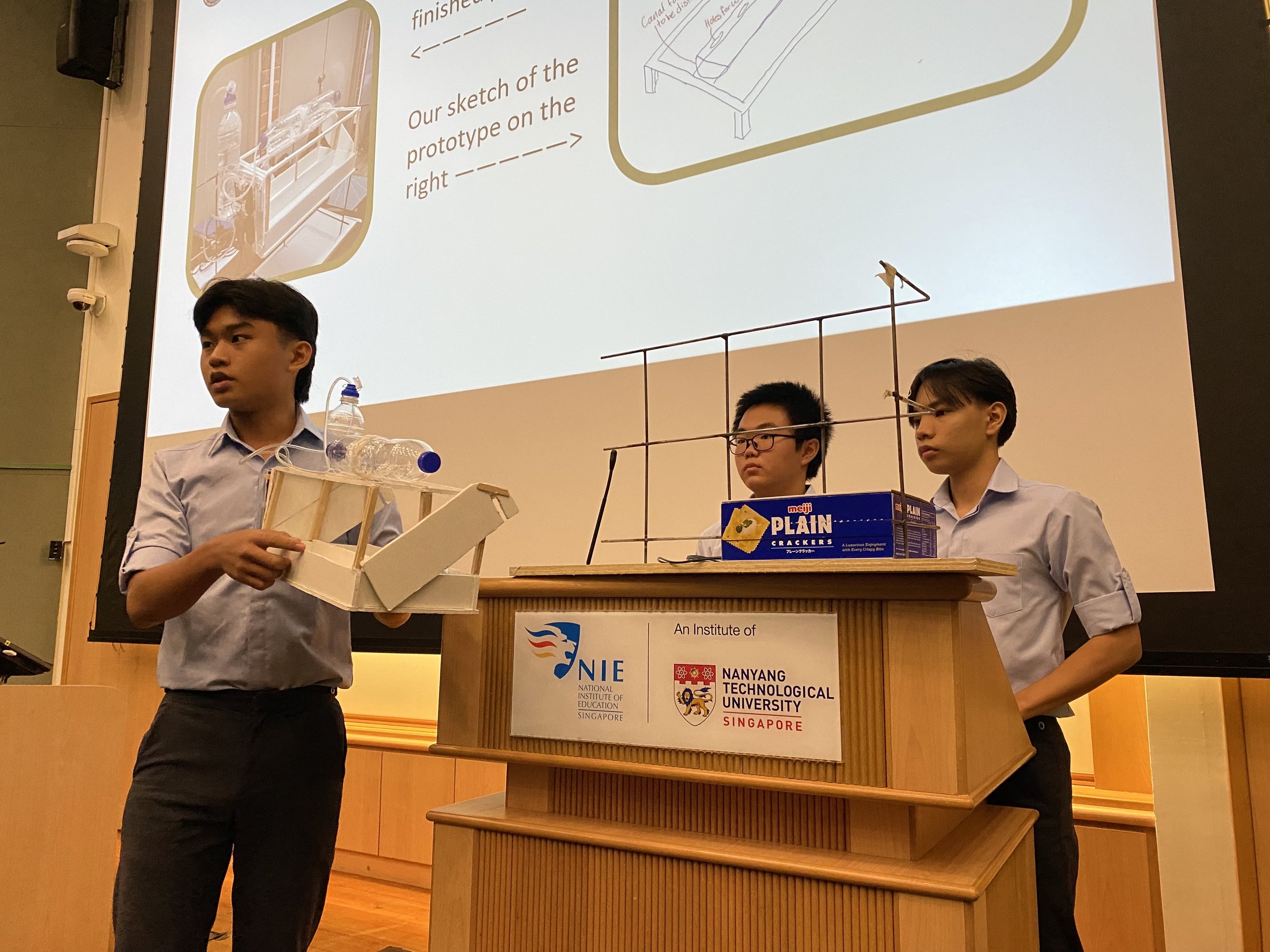


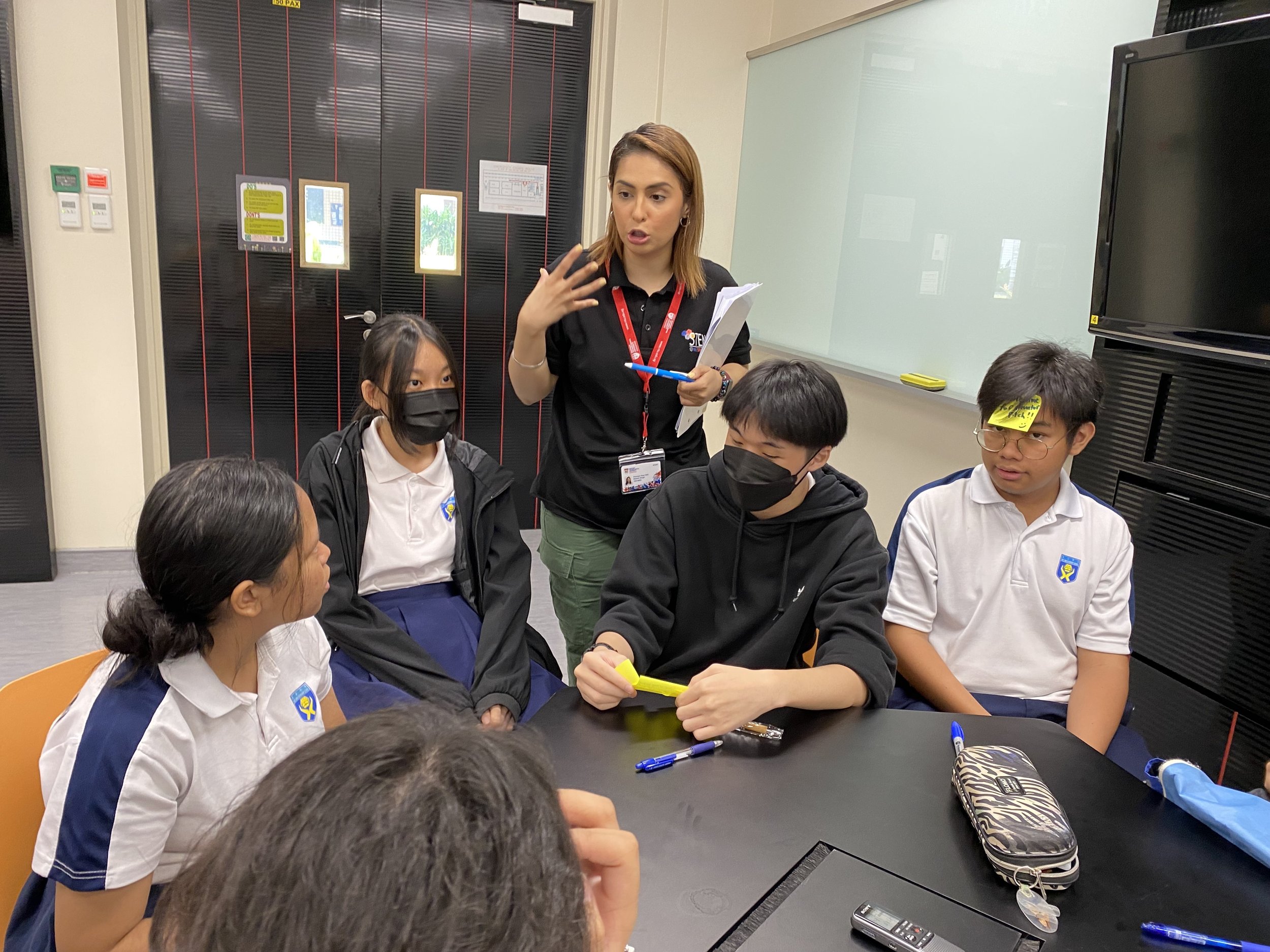
The afternoon’s programme was the highlight of the whole symposium. A/P Teo Tang Wee opened the award ceremony with a recap of the year’s events leading up to this point in the programme and played a video montage with the highlights of the students’ EPIC-STEM journey thus far. The awards for the top five best posters and elevator pitches were then announced. After the winners were announced, the winning elevator pitch teams each got a chance to present their projects to the audience.















The students also got to hear from Dr Holden Li, Associate Professor, Associate Chair (Students), School of Mechanical & Aerospace Engineering, Nanyang Technological University, who shared with the students some STEM education and career guidance. He introduced courses at the School of Mechanical & Aerospace Engineering that the students could consider after their secondary education, and even the career track they could be looking at if they follow this route.
To mark the end of the symposium, the students celebrated with a mini carnival, enjoying popcorn, slushie, hot dog and cotton candy stations, as they networked with each other and checked out all the other teams’ project posters.







EPIC-STEM Learning Journey 2024, March 12, 2024
Another learning journey was organised for March 12, 2024, which provided EPIC-STEM students with valuable exposure to the topic of sustainability through hands-on experiences. It comprised two sections focusing on Sustainability in Biodiversity at S.E.A. Aquarium and Sustainability in Urban Farming at GreenLoopFarms and Edible Garden City.
Sustainability in Biodiversity

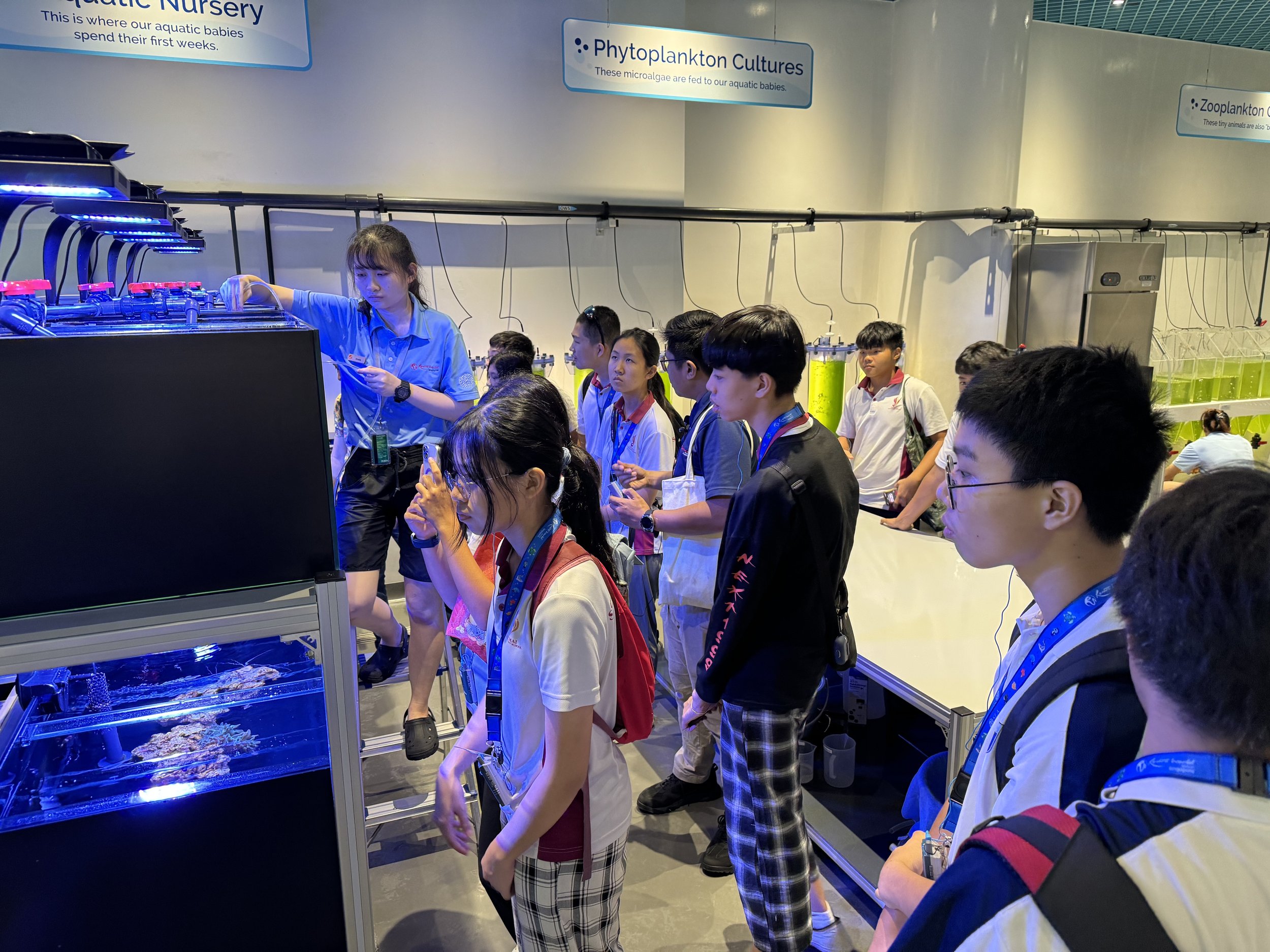
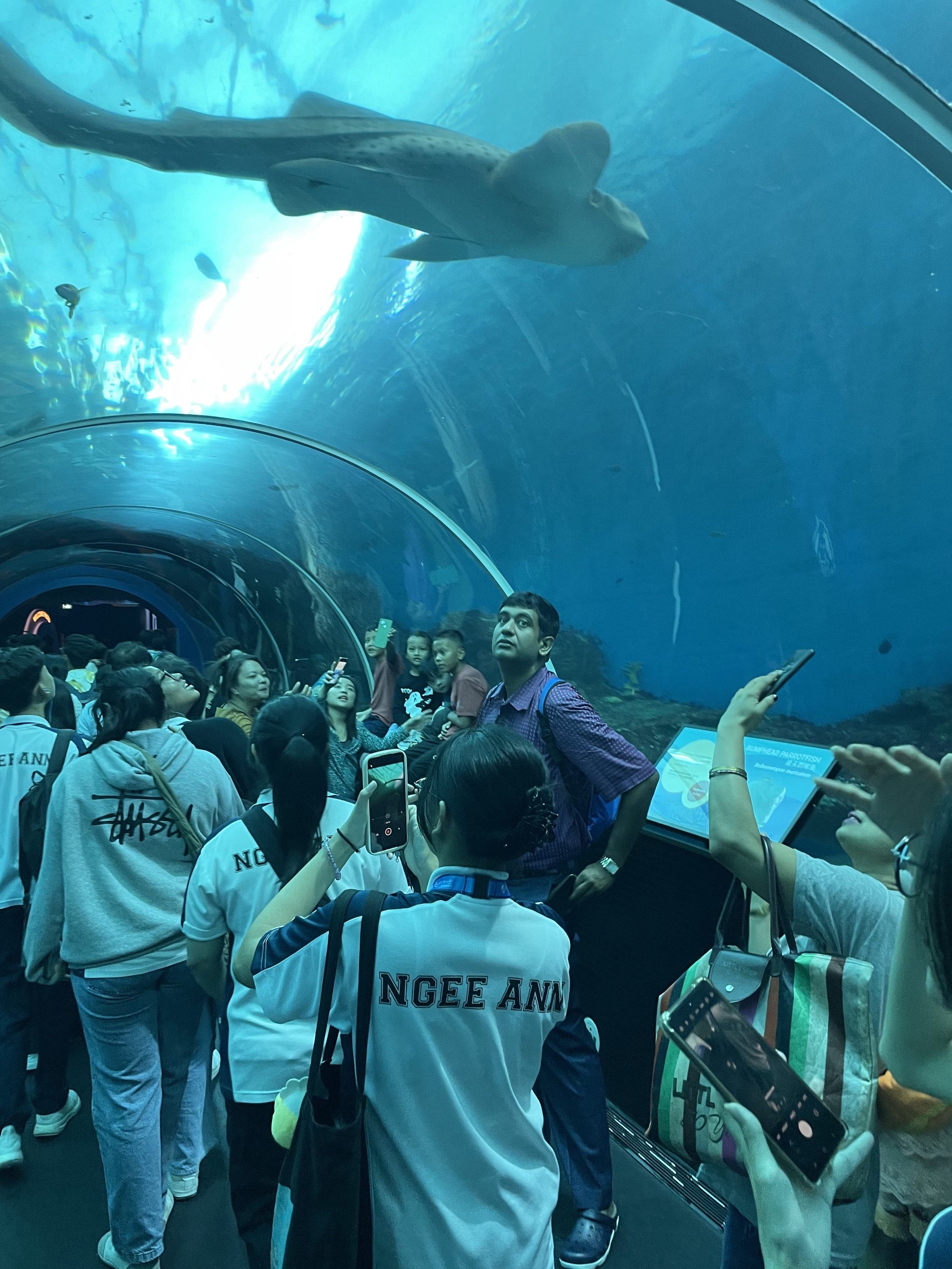
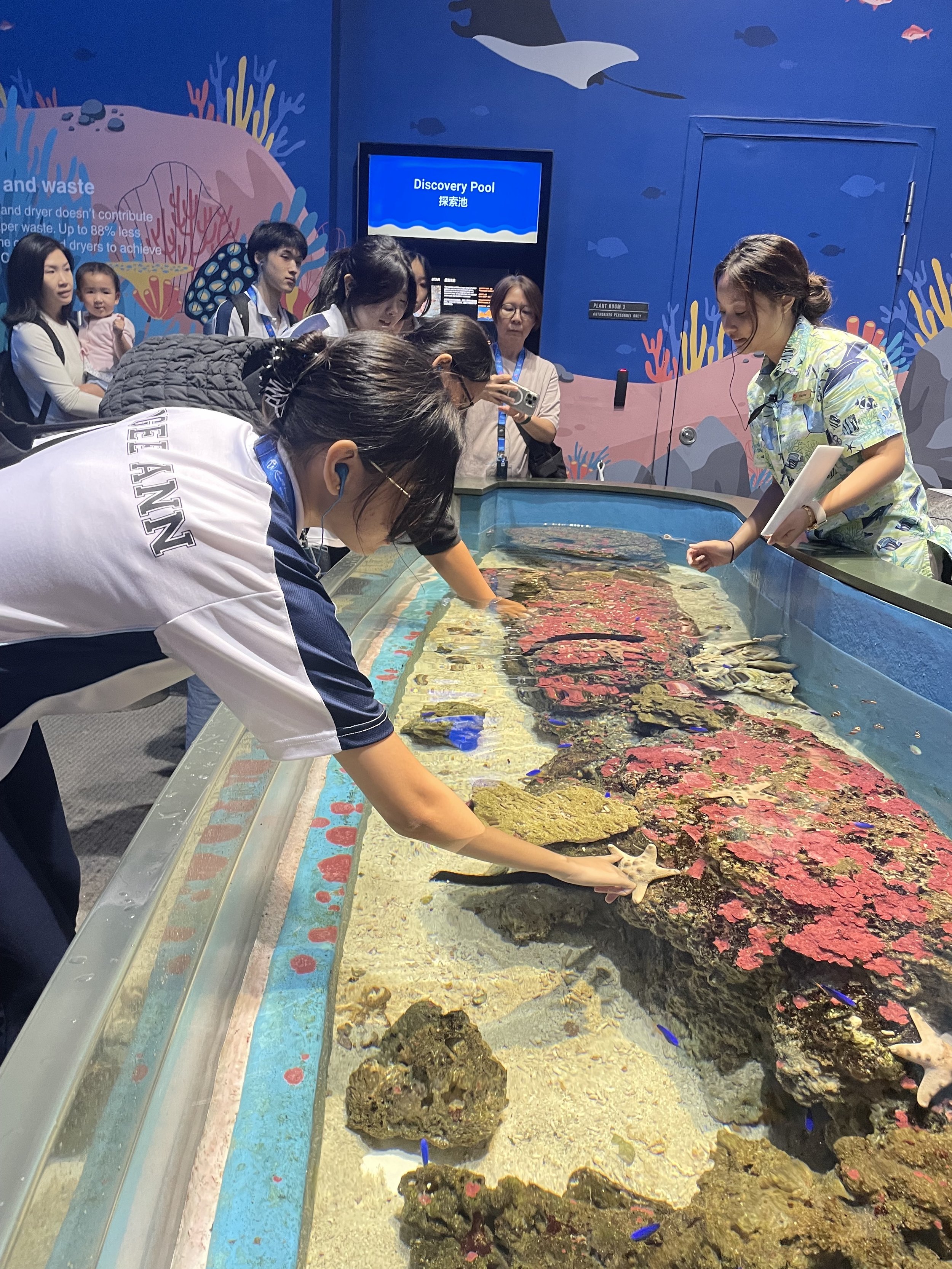
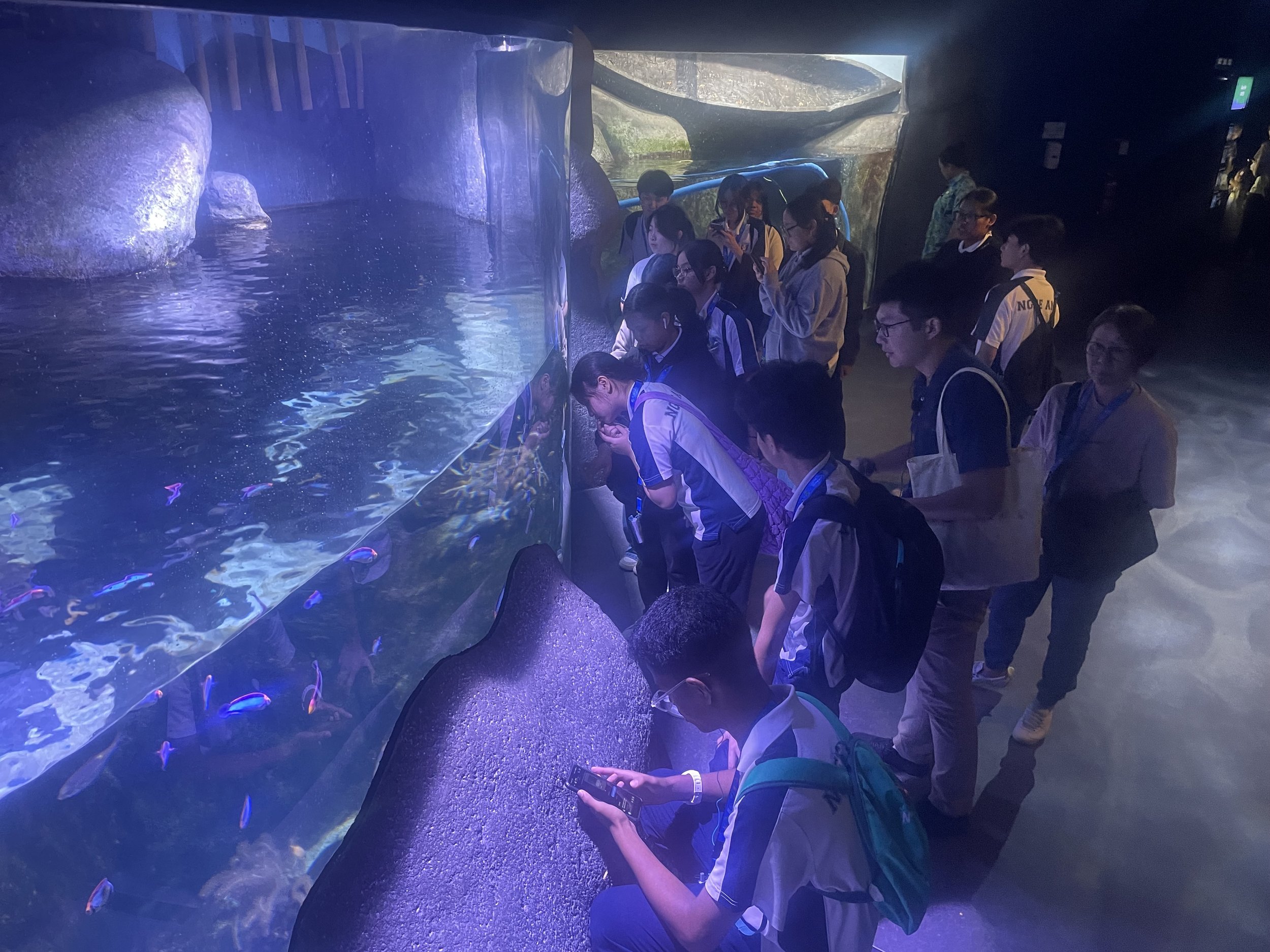
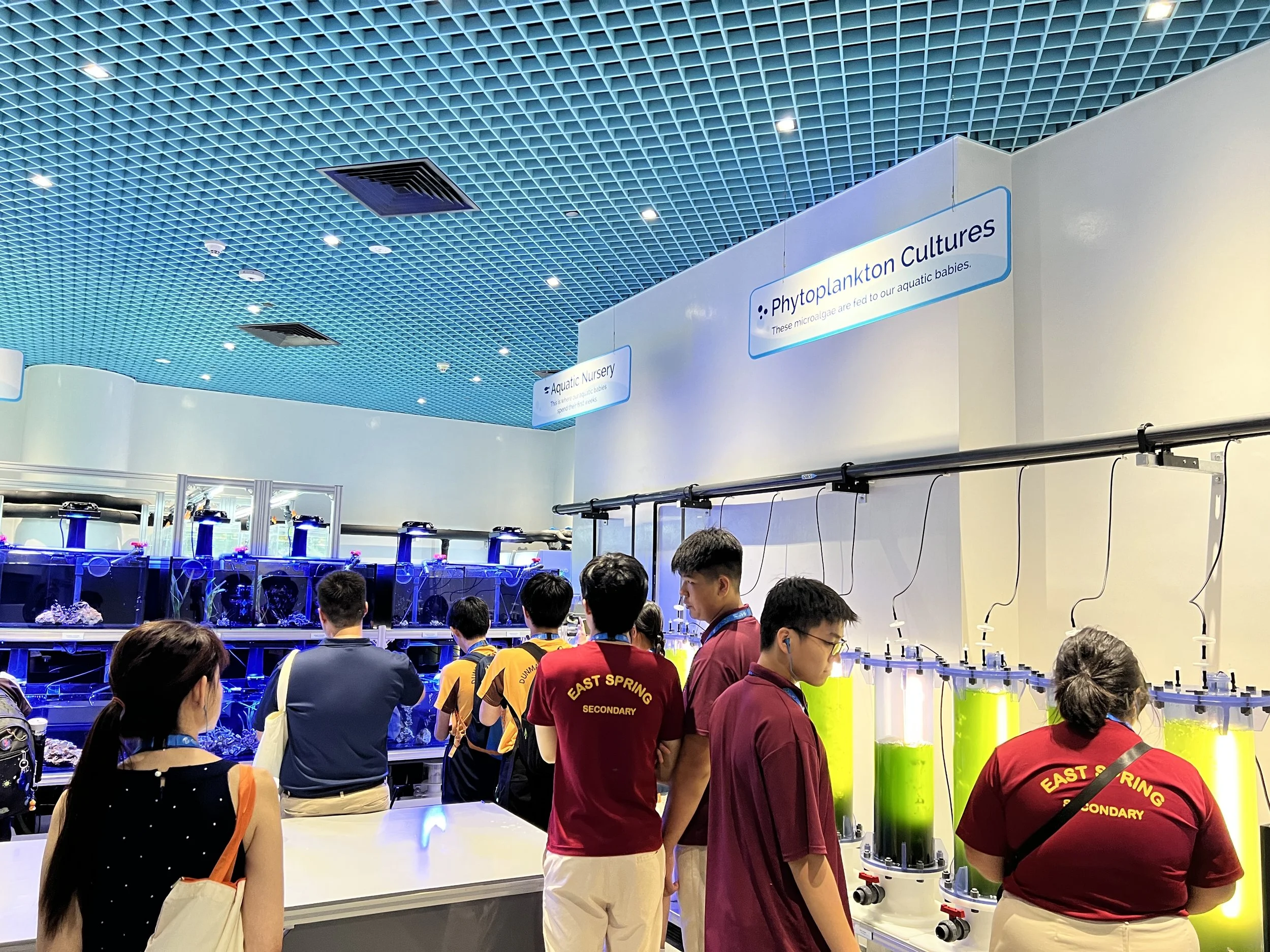

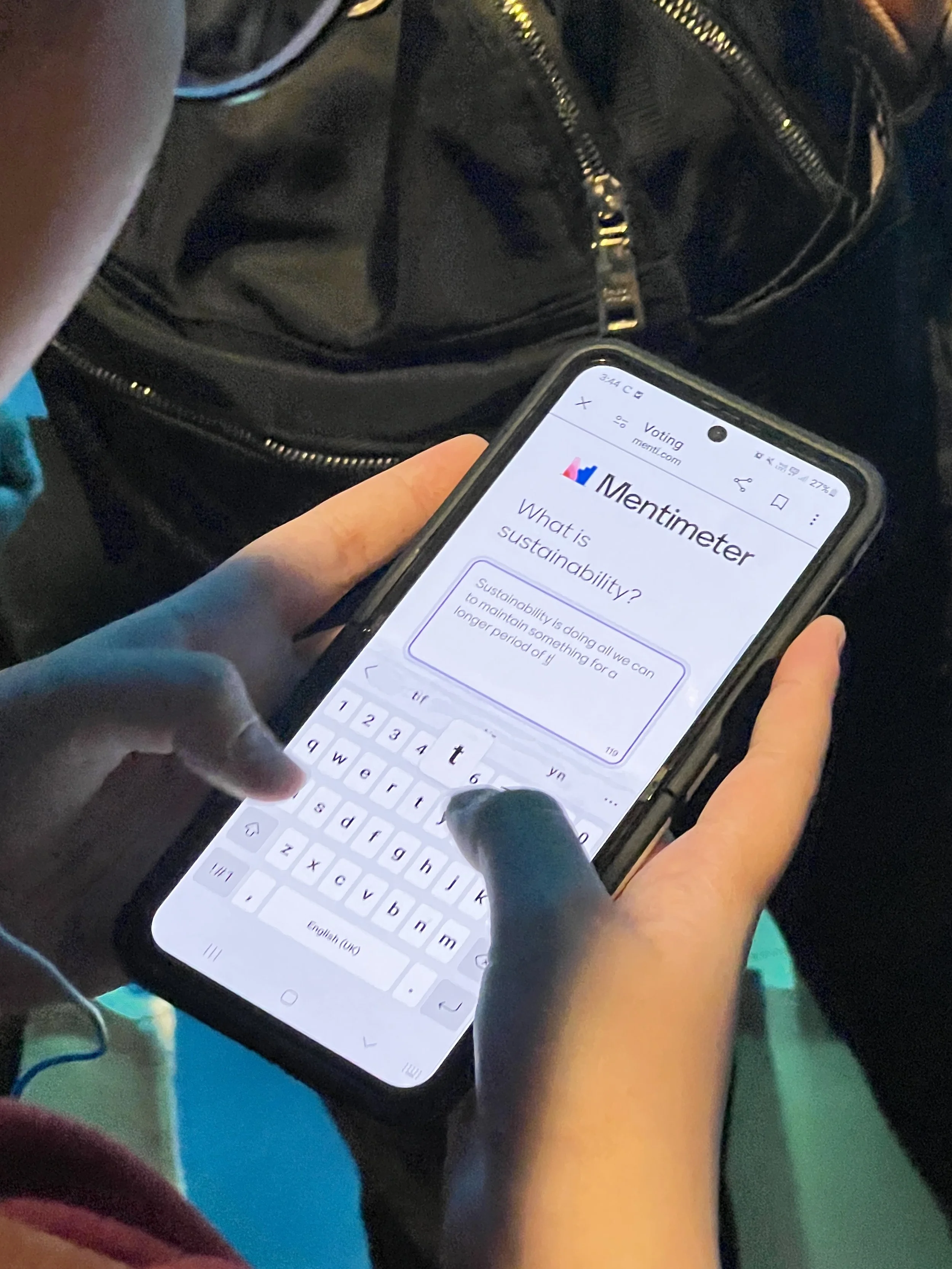
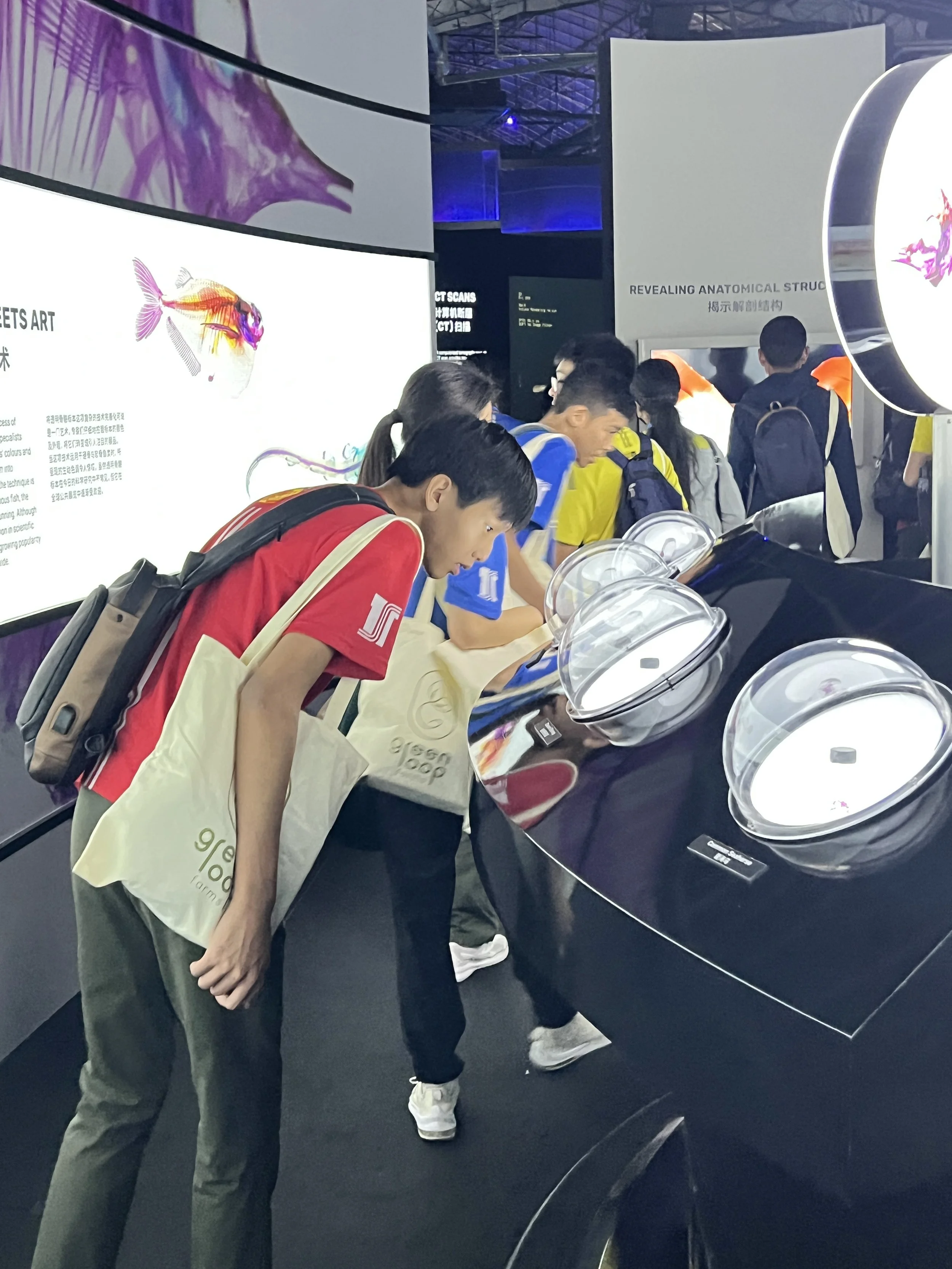
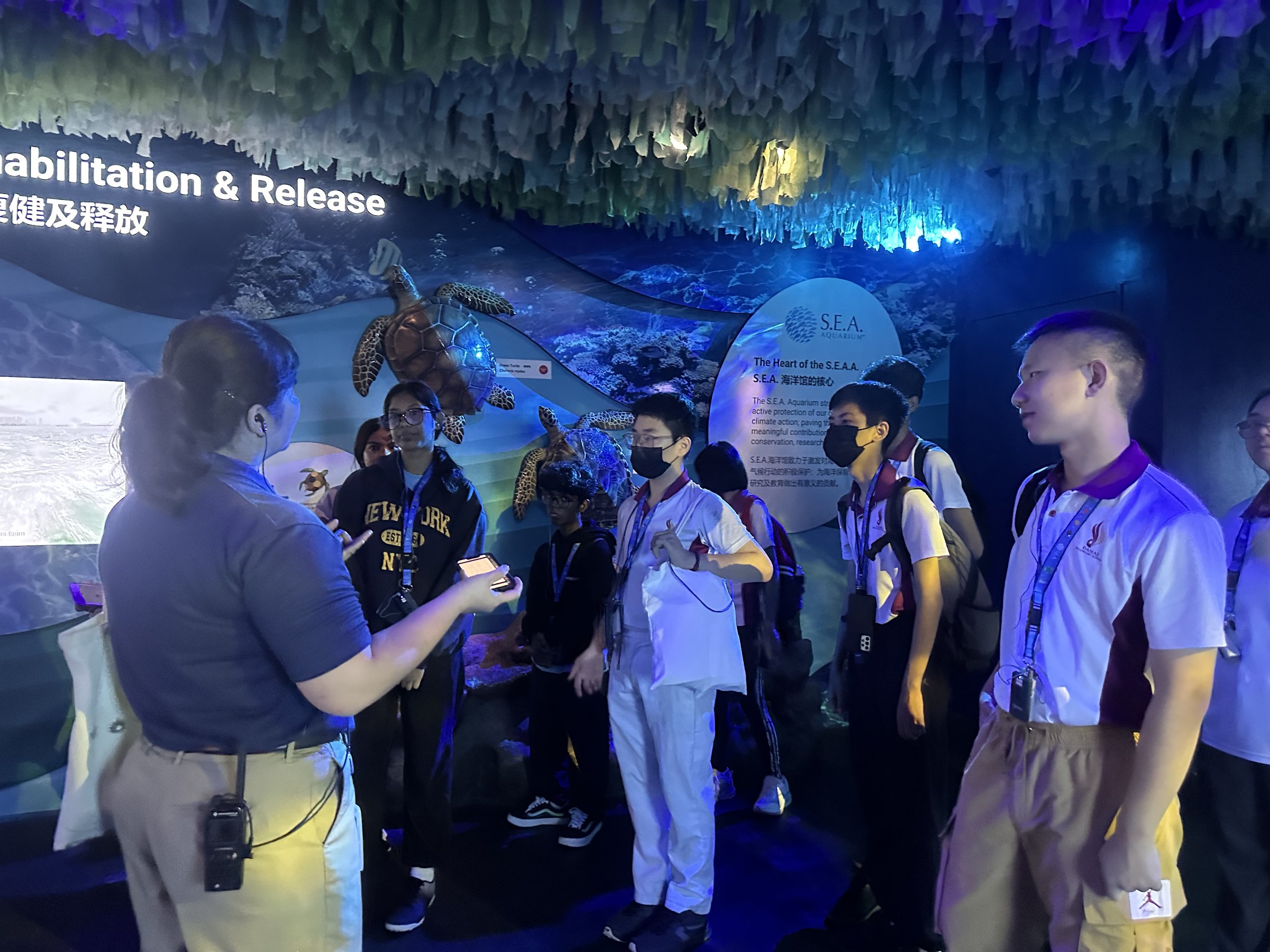
The theme of Sustainability in Biodiversity was introduced to the students at the S.E.A. Aquarium. The two-hour fully guided program explored the concept of sustainability, with a focus on marine conservation. Students also got to learn about the relevance of marine conservation in Resorts World Sentosa.
The learning journey commenced with an engaging introduction to sustainability by the guide, who emphasised the vital role aquariums play in promoting sustainability, with a focus on UN SDG 14, life below water. They were introduced to the impacts of climate change and the efforts of aquarists, communities, and platforms that help to sustain marine biodiversity, such as the S.E.A. aquarium.
As students ventured through the exhibits, they were enlightened and enriched by examples of the importance of symbiotic relationships, creating a balanced ecosystem, as well as some of the many initiatives Singapore has undertaken in ocean conservation and preservation of various marine habitats through the lens of the different roles undertaken by the aquarium staff. Additionally, students learned about the role of the S.E.A Aquarium as a rehabilitation centre for endangered sea turtles. The guide also shared about the release of tagged and microchipped sea turtles back into the wild in 2018, contributing to conservation efforts to foster wild populations.
The students had the opportunity to the Aquarist Lab, which provided a fascinating glimpse into marine care practices. Students explored marine nursery habitats and plankton culture setups, gaining insights into the breeding, nurturing, and care of juvenile marine animals and microorganisms. They learned about the process of plankton cultivation and the meticulous care provided to select animal species, including sea jellies.
Finally, the students were taken behind the scenes, acquiring a unique perspective of the Open Ocean Habitat, viewing the majestic manta rays Mika and Manja and over 100 species of animals from the eye of a diver, gaining almost a bird’s eye view of the aquarium containing the equivalent of 7 Olympic-sized pools of water.
Sustainability in Urban Farming
Students were divided into groups to visit either GreenLoopFarms or Edible Garden City. The farm tours provided insights into urban farming practices in Singapore, including the technology used and sustainability principles applied.
GreenLoopFarms
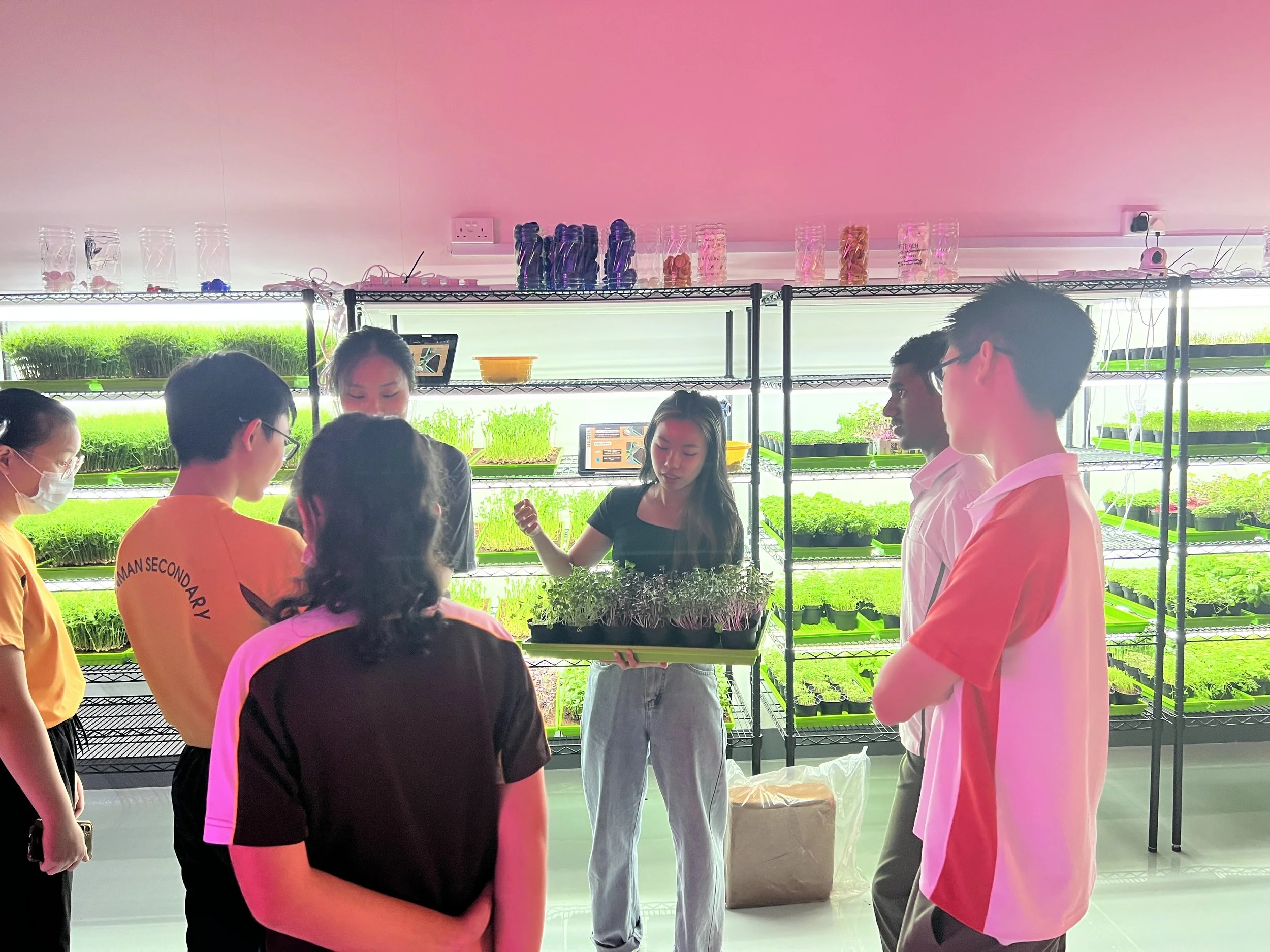

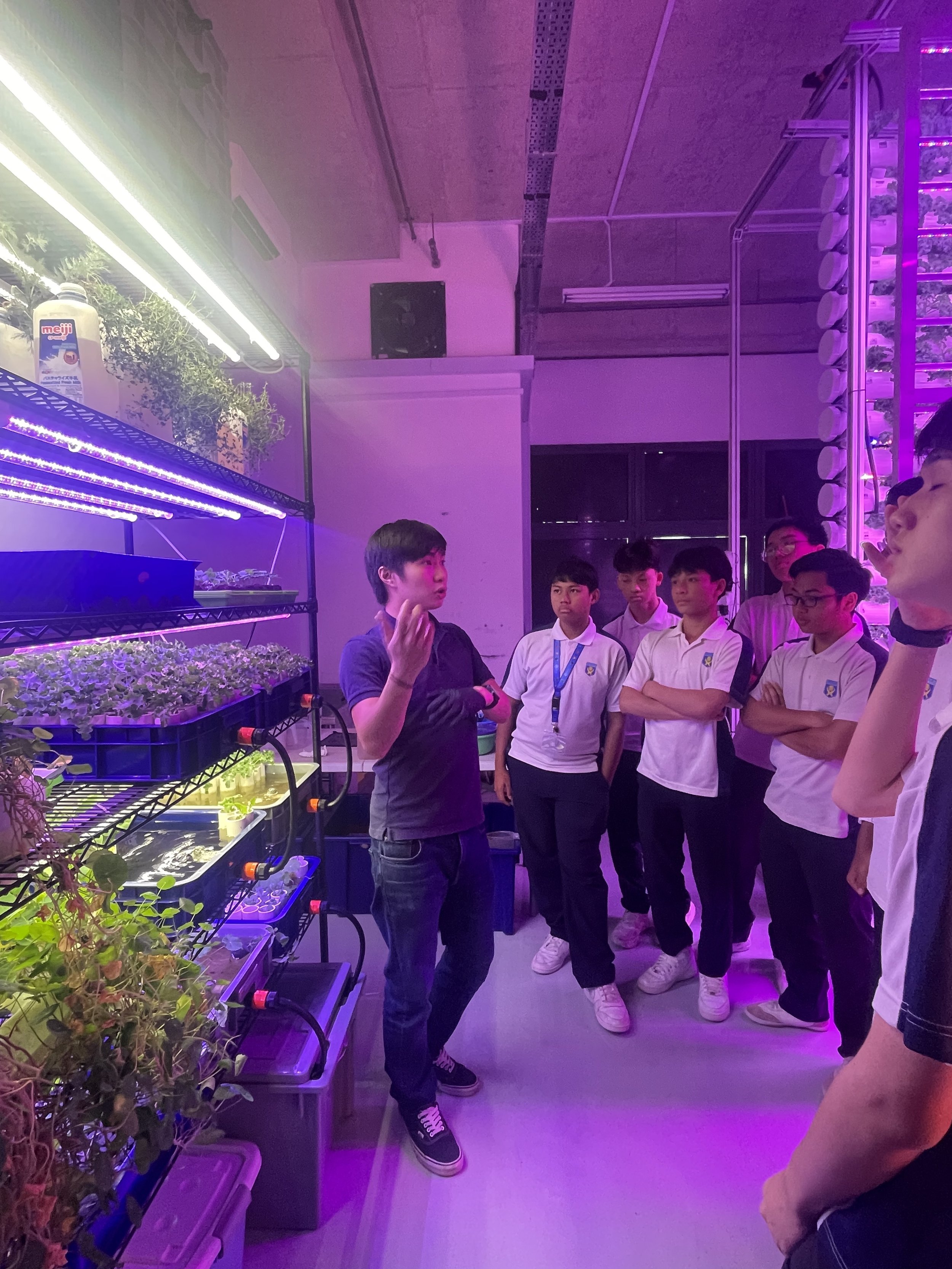
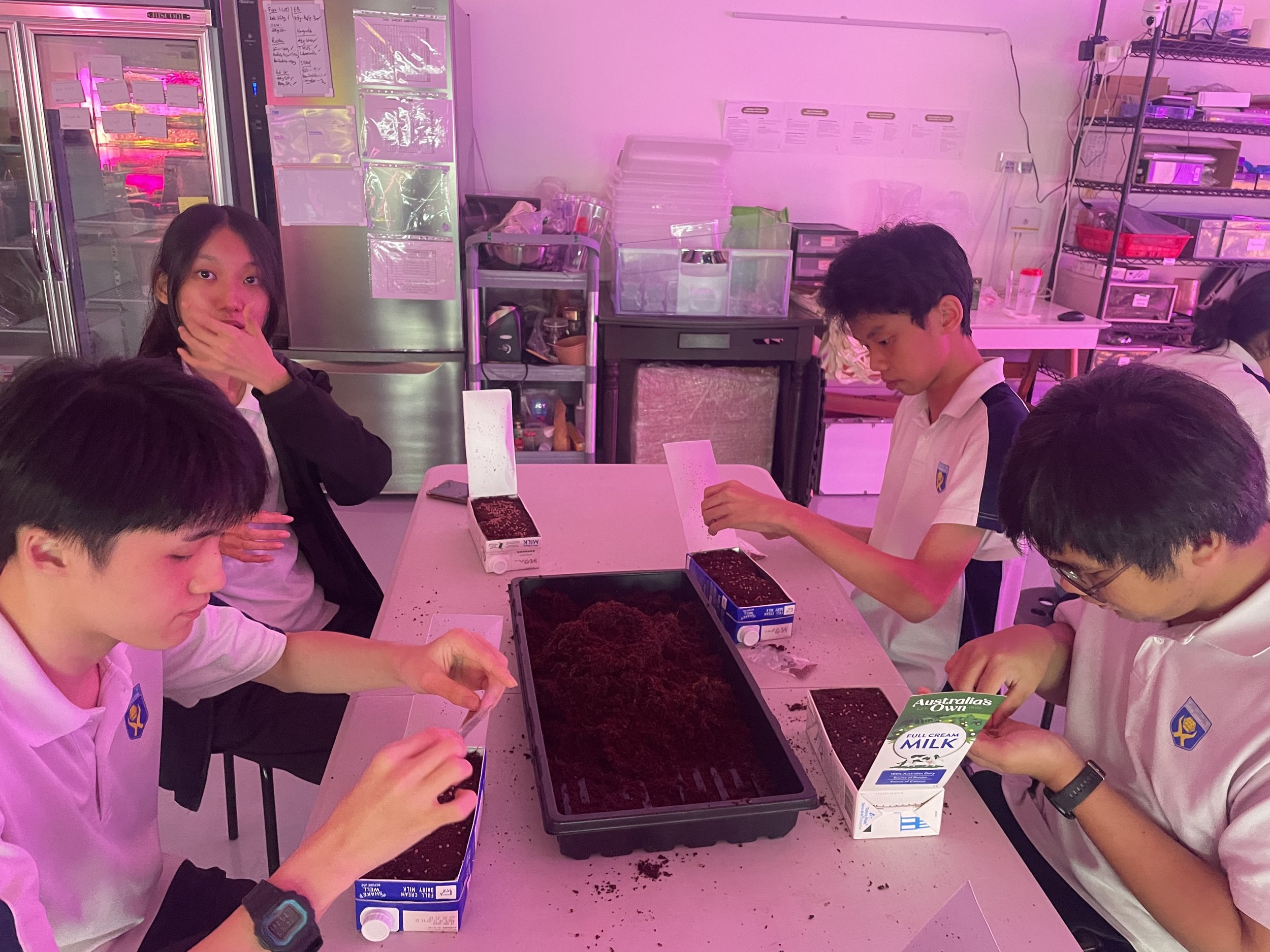

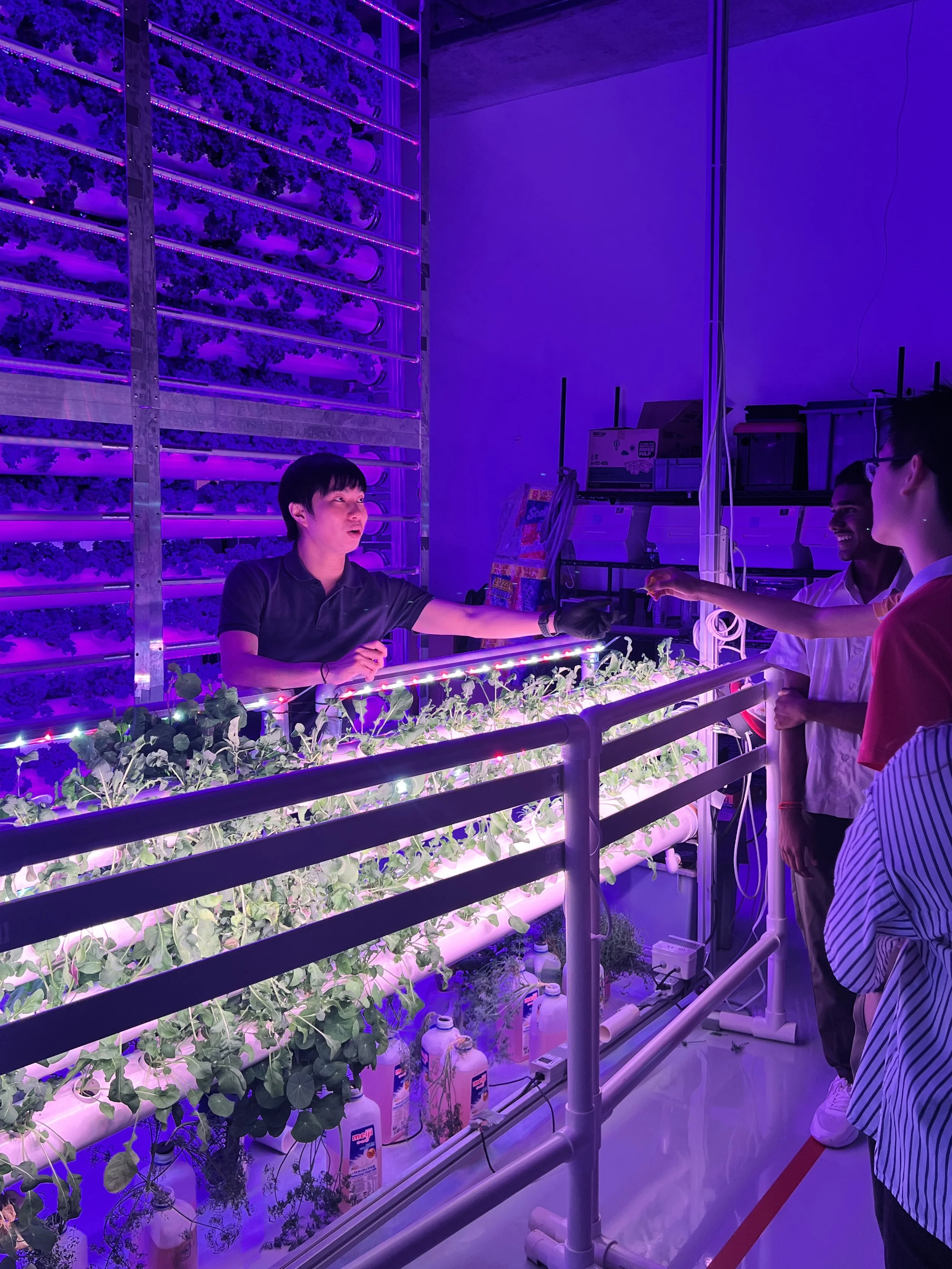
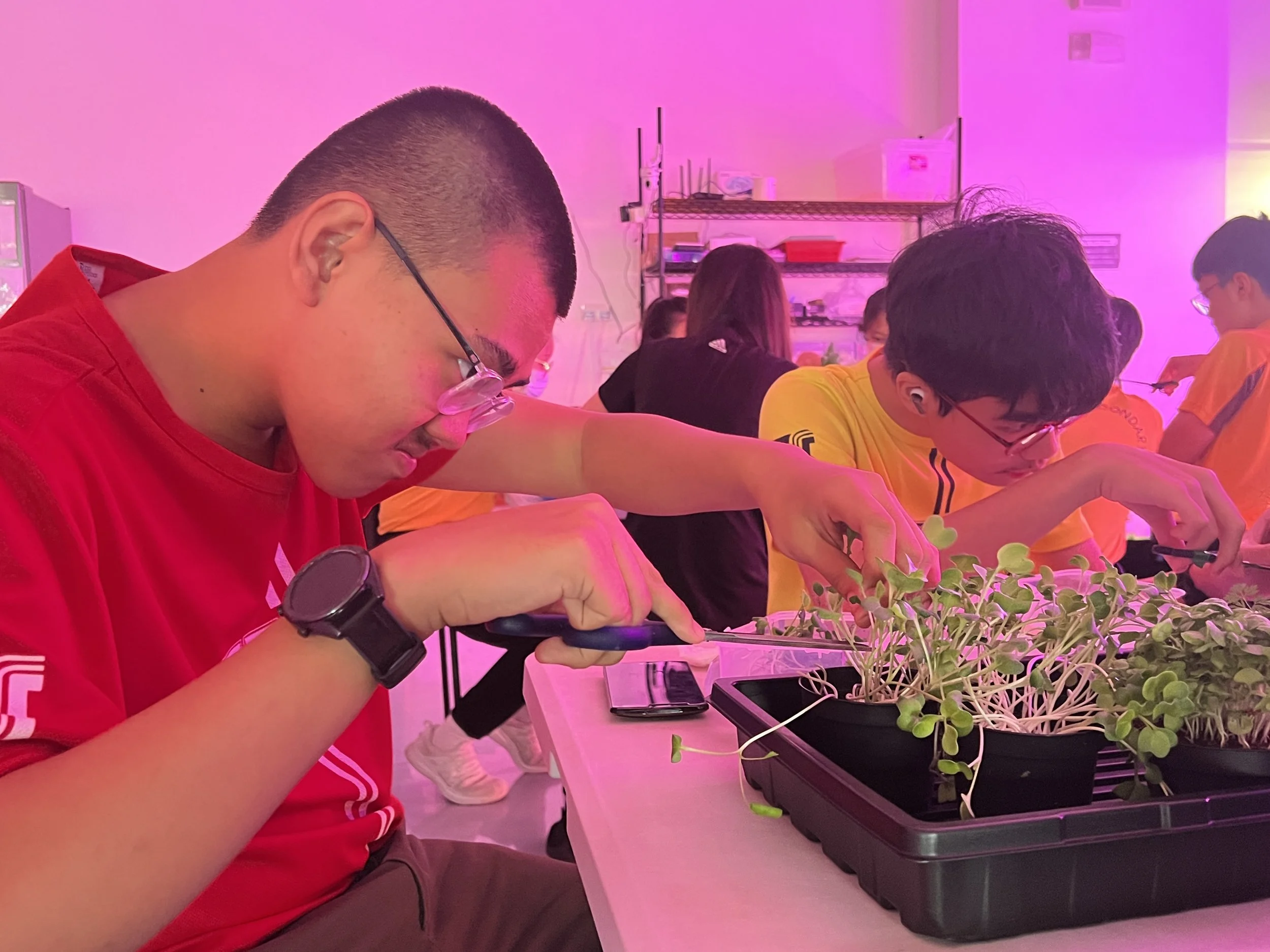
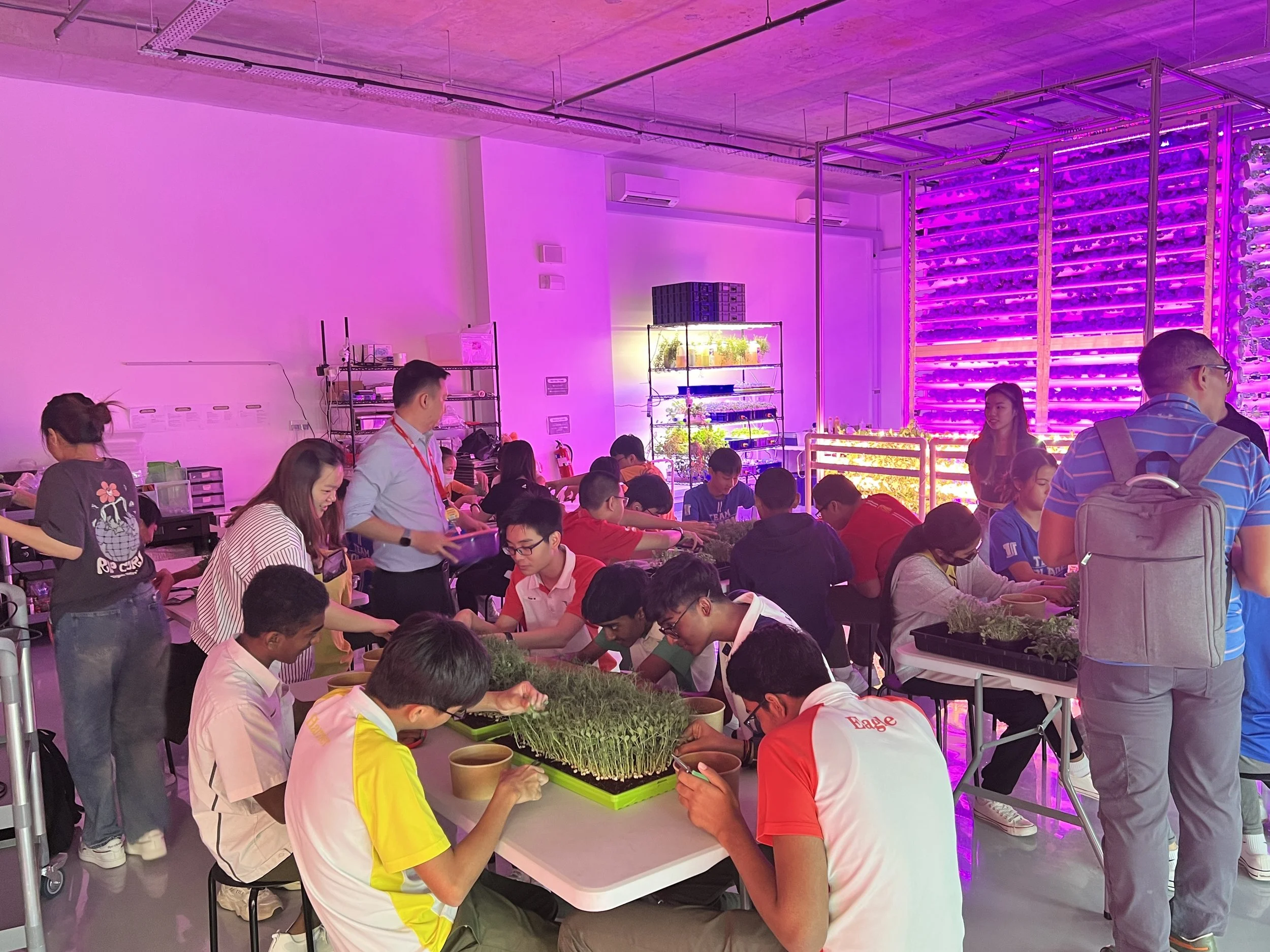
GreenLoopFarms is an indoor space dedicated to eco-friendly, sustainable practices and waste reduction. Students were taken on the journey of Jason, the founder, and his team and their commitment to providing locally grown produce all year round while actively contributing to the cultivation of robust and flourishing ecosystems within the community.
Students were first introduced to the importance, necessity, and value of urban farming in Singapore, where land is scarce, and food is heavily sourced from other countries. Foregrounded by the government’s initiative and 2030 Grow Local: 30 by 30 plan, students were briefed on critical considerations such as the growing need for sustainable measures to achieve food resilience, amidst conditions of limited land, and rising costs of resources and crops. Students were then split into two groups, where they gained insights into the agricultural practices involved in producing microgreens and establishing a hydroponic vertical farm.
The students were introduced to cocopeat as an alternative growth medium due to its exceptional ability to retain moisture and nutrients and its antifungal and antibacterial properties. In addition, the session also discussed the use of specialised lighting—combining blue and red lights—to tailor growth conditions. These techniques address key challenges in urban agriculture, such as resource efficiency and maximising yield in limited spaces, demonstrating a forward-thinking approach to enhancing urban food production systems.
The tour also showcased the use of hydroponics in the farm. Here, students engaged in question-and-answer with the representatives from GreenLoop Farms as they delved into the value, affordances, effectiveness, and challenges of combining vertical farming with hydroponics to practise and enhance nutrient recycling and reduction of water waste in the controlled conditions of an indoor farm. Aside from learning about the various crops that can be grown using hydroponics, students also touched and sampled the crops, with some even trying edible flowers for the first time.
Lastly, students wrapped up their experience at with hands-on activities, allowing them to harvest microgreens for their friends and families, and, planting new seeds in cocopeat in return for their harvest.
Edible Garden City


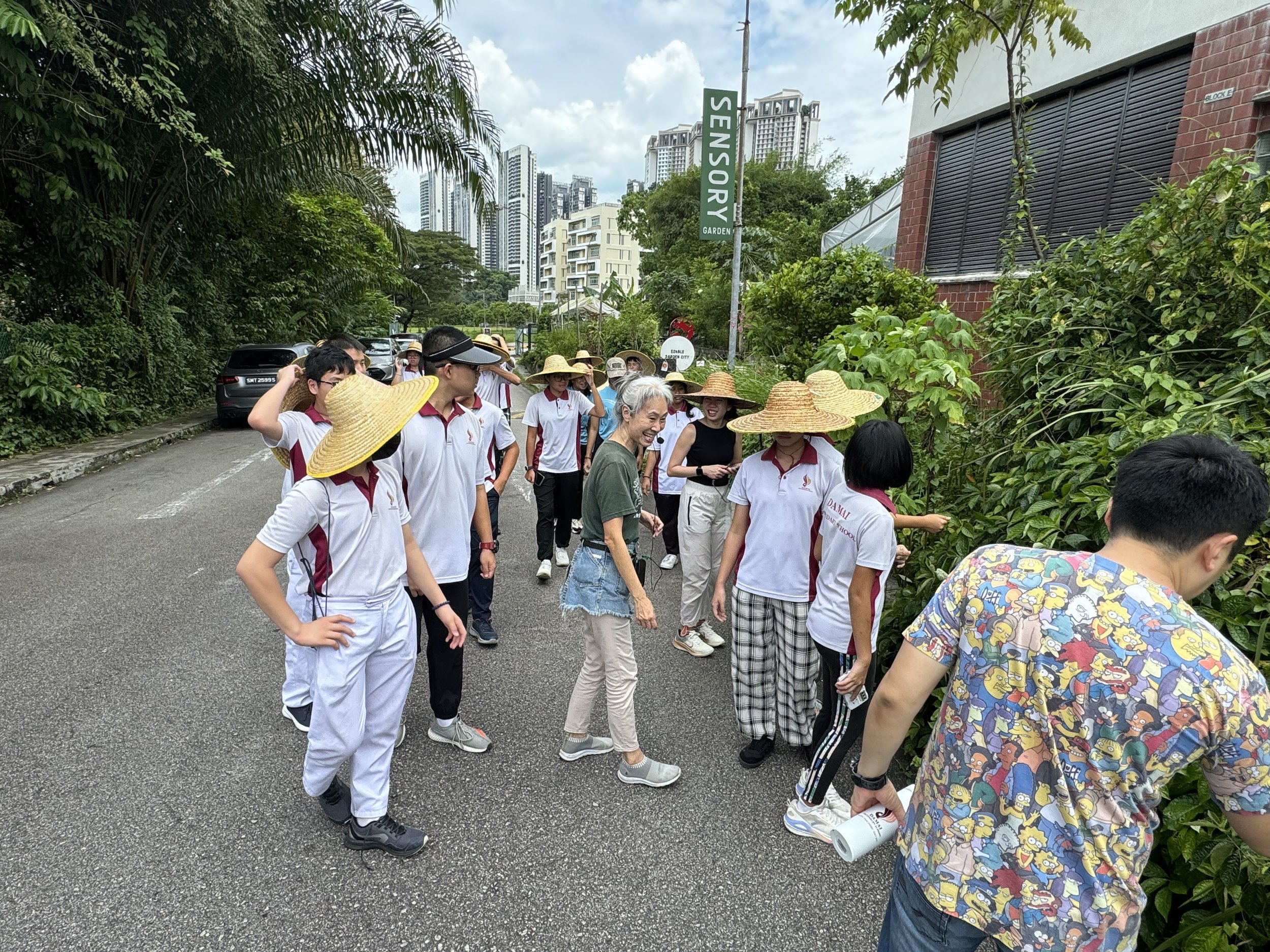
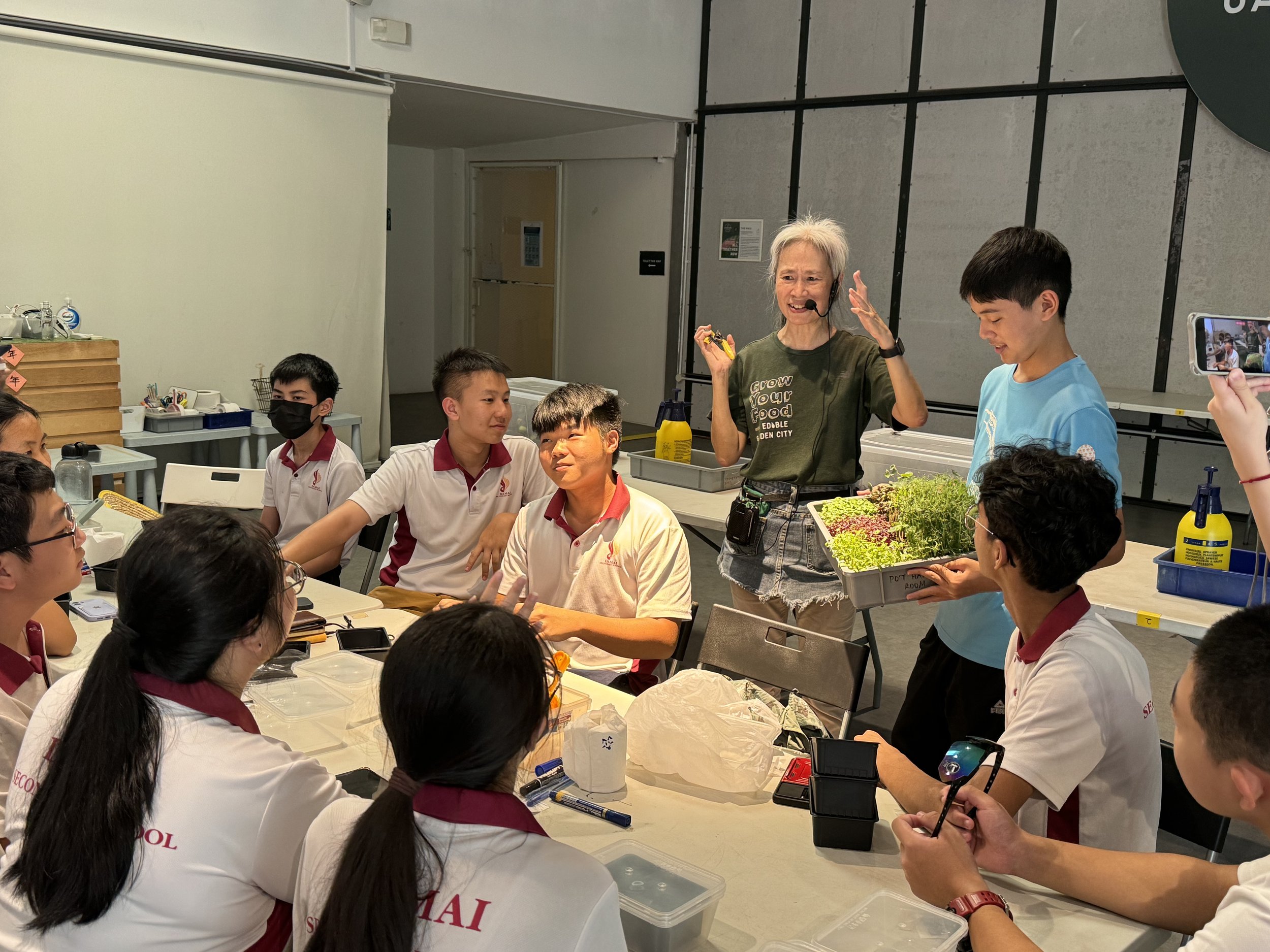
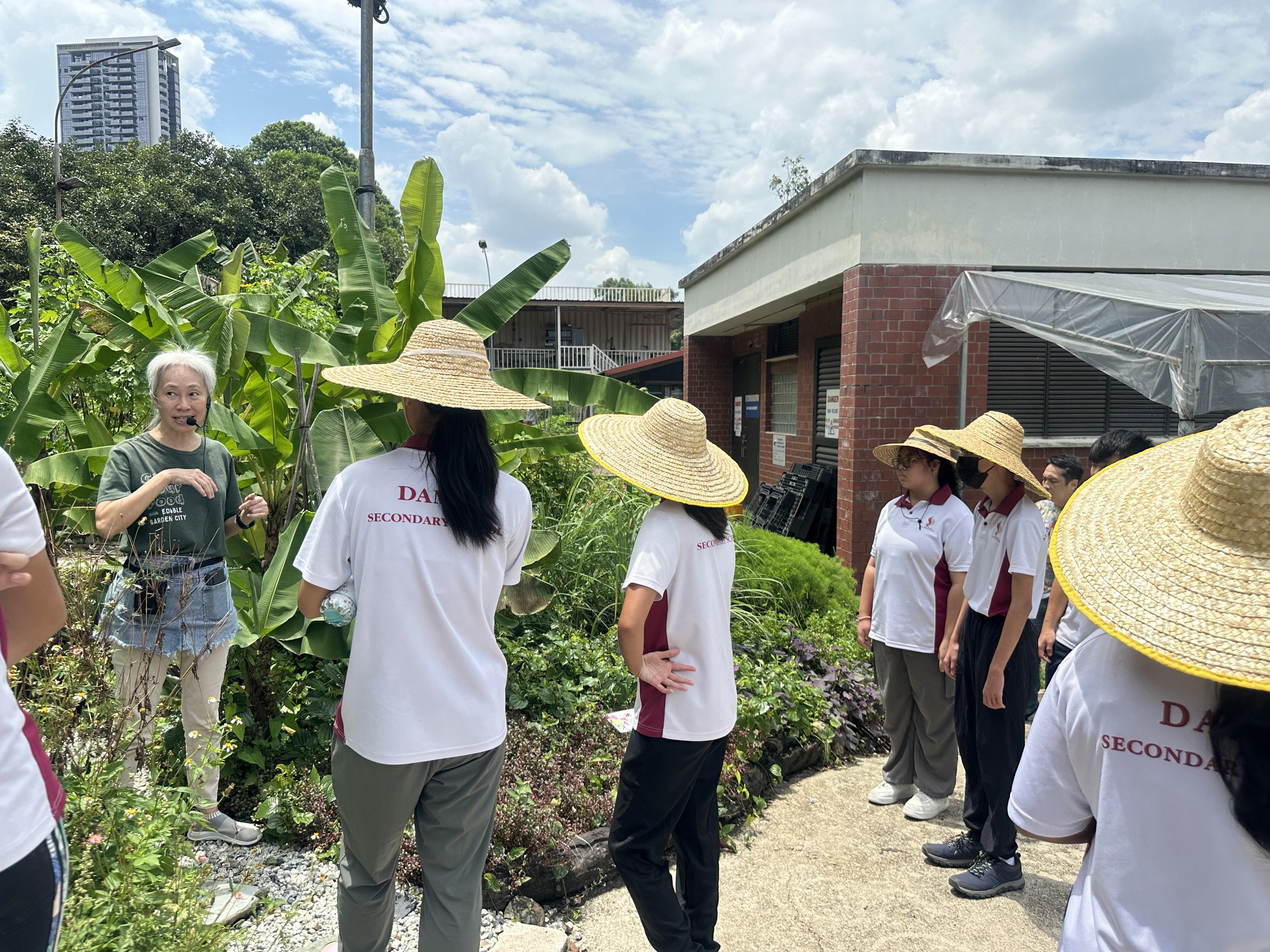
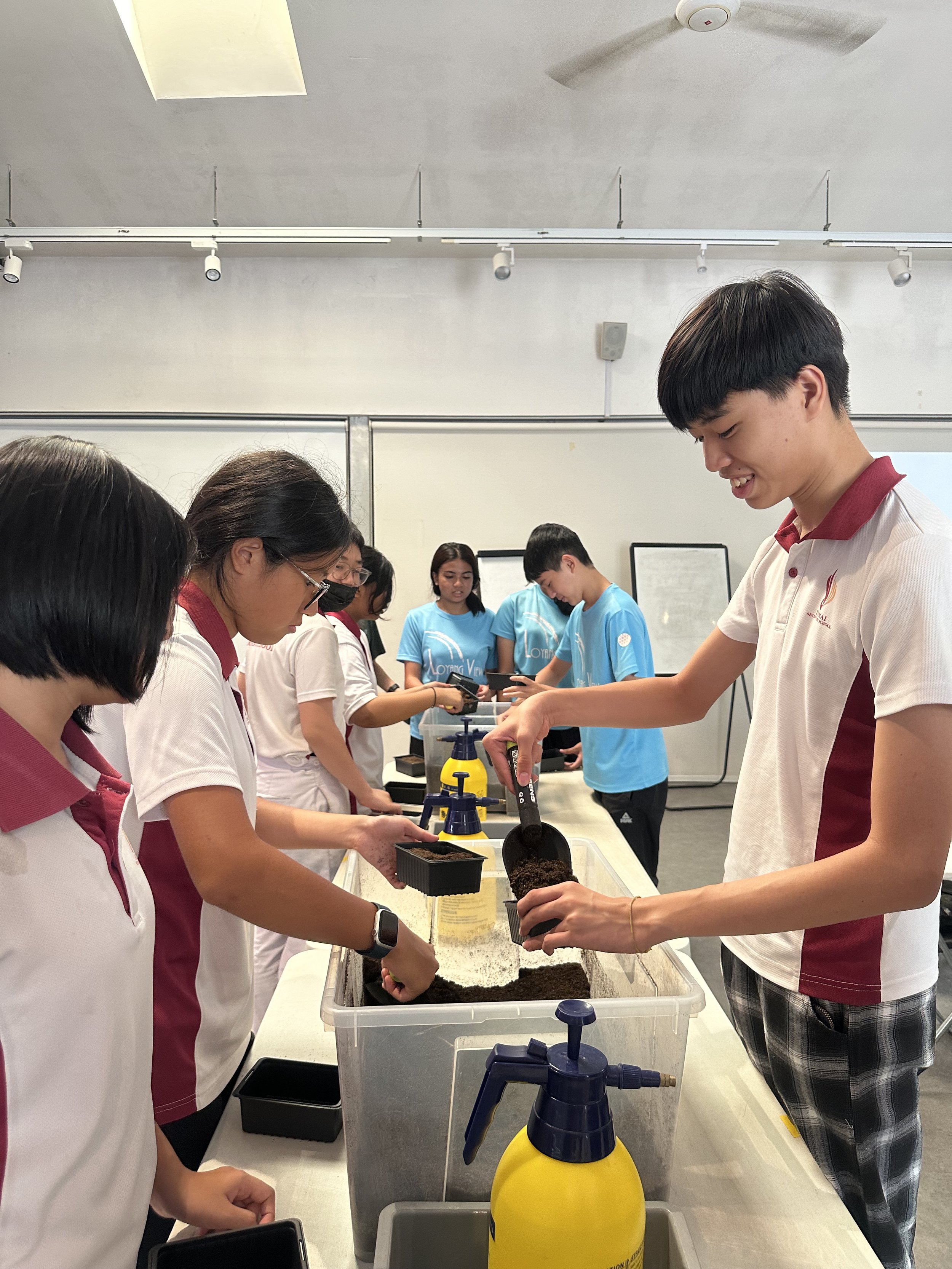
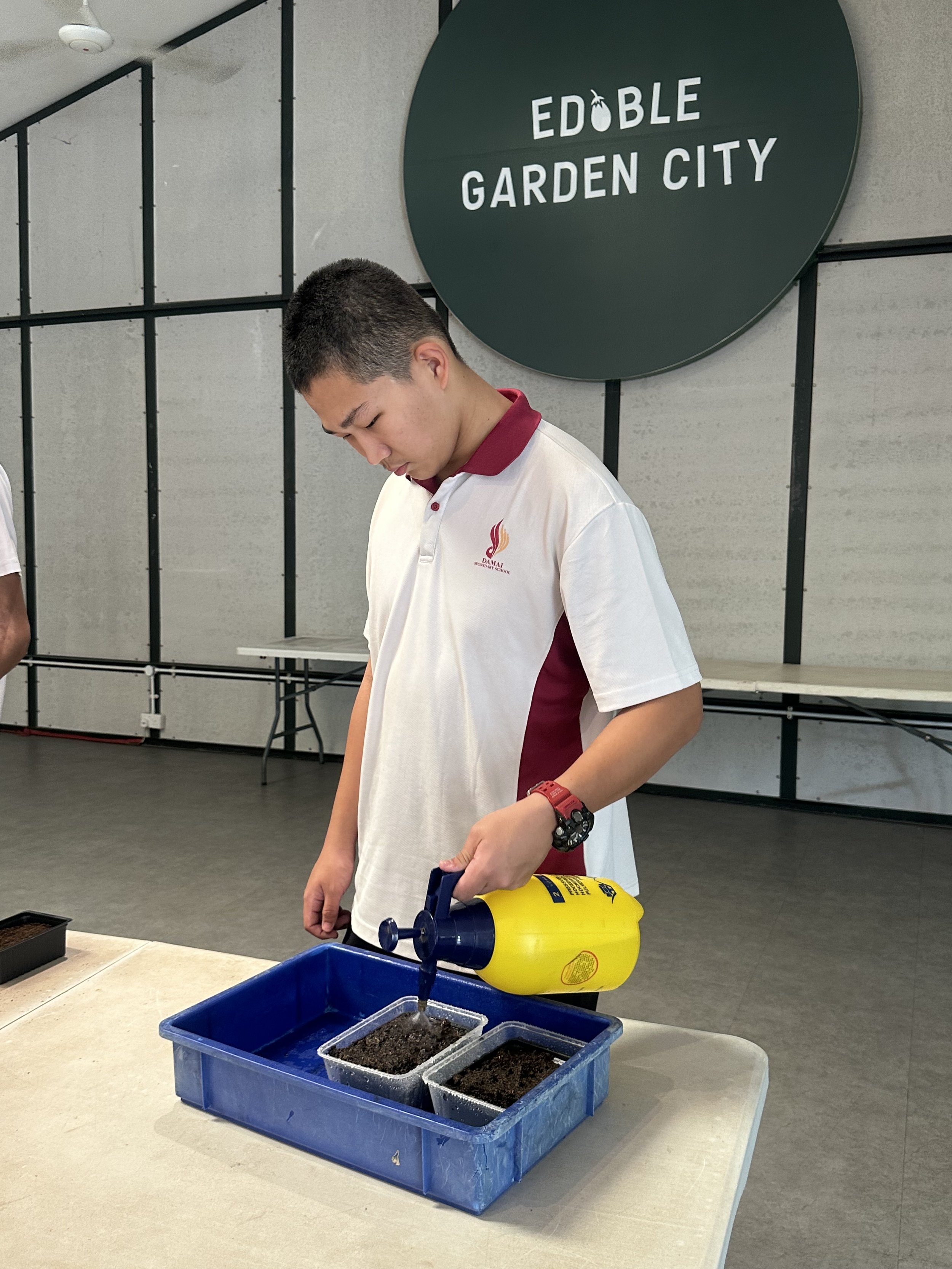
At Edible Garden City, students engaged in a multi-sensory tour of a closed-loop farming solution, learning to identify various plants and understand effective watering techniques, enhancing students' comprehension of sustainable agricultural practices.
A workshop focused on microgreens introduced students to the basics of edible gardening. They learned about plant growth cycles and root systems. Students were presented with simple-to-grow edible plants like mint and coriander, which encouraged them to cultivate these herbs at home. They were also given the chance to sample these herbs, which sparked their interest in establishing their own edible garden. The hands-on activity provided students with 2 types of seed to grow. Applying the knowledge they had acquired; students planted the seeds and were instructed to care for their plants and harvest the greens with their families. The hands-on activities motivated students to cultivate their own edible gardens at home.
The learning journey to the urban farm effectively broadened students' understanding of sustainability, from closed-loop farming technology to hands-on gardening experiences. Students learnt about sustainable living practices and the importance of local food production by participating in urban agriculture. This can instil a sense of environmental responsibility and encourage practices that reduce carbon footprint.
Internship and Micro-courses, 14 October - 22 November 2024
In the second year, the EPIC-STEM programme, micro-courses and internships were introduced. The primary goal is to provide students with insights into the diverse range of STEM careers available in Singapore and to expose them to STEM programmes at the IHLs that align with their interests and aspirations. Both programmes were offered to the students during the school holidays.
Internship at BERNINA (Singapore)
Bernina Singapore, a company founded in 1893 in Switzerland, hosted the internship. The company is known for its high-quality, precision-engineered sewing machines, which are designed for sewing, embroidery, quilting, and crafting. The programme was split into two parts. Part 1 focused on Code-to-Sew which equipped the students with the necessary skills to manage and troubleshoot the BERNINA sewing machine and its ecosystem, this included sewing, and coding to create embroidery-based outcomes. The students got hands-on experience in sewing, embroidery and bock-based coding, creating their very own personalised artefacts. Part 1 of the programme culminated in a design thinking project that allowed the students to work on a problem statement in teams to create a prototype solution. Part 2 of the programme equipped the students with the knowledge of precision engineering and the mechanical principles of sewing. The programme brought in Michael Bösch, a system architect engineer at BERNINA International, to spearhead this part of the programme. The students were introduced to the fundamentals of precision engineering and were taught product development and aspects of precision mechanics. They gained hands-on experience disassembling and assembling a sewing machine to understand the functions of the parts used and even participated in engineering-related tasks.
Run 1
14-18 October
Run 2
18-22 November


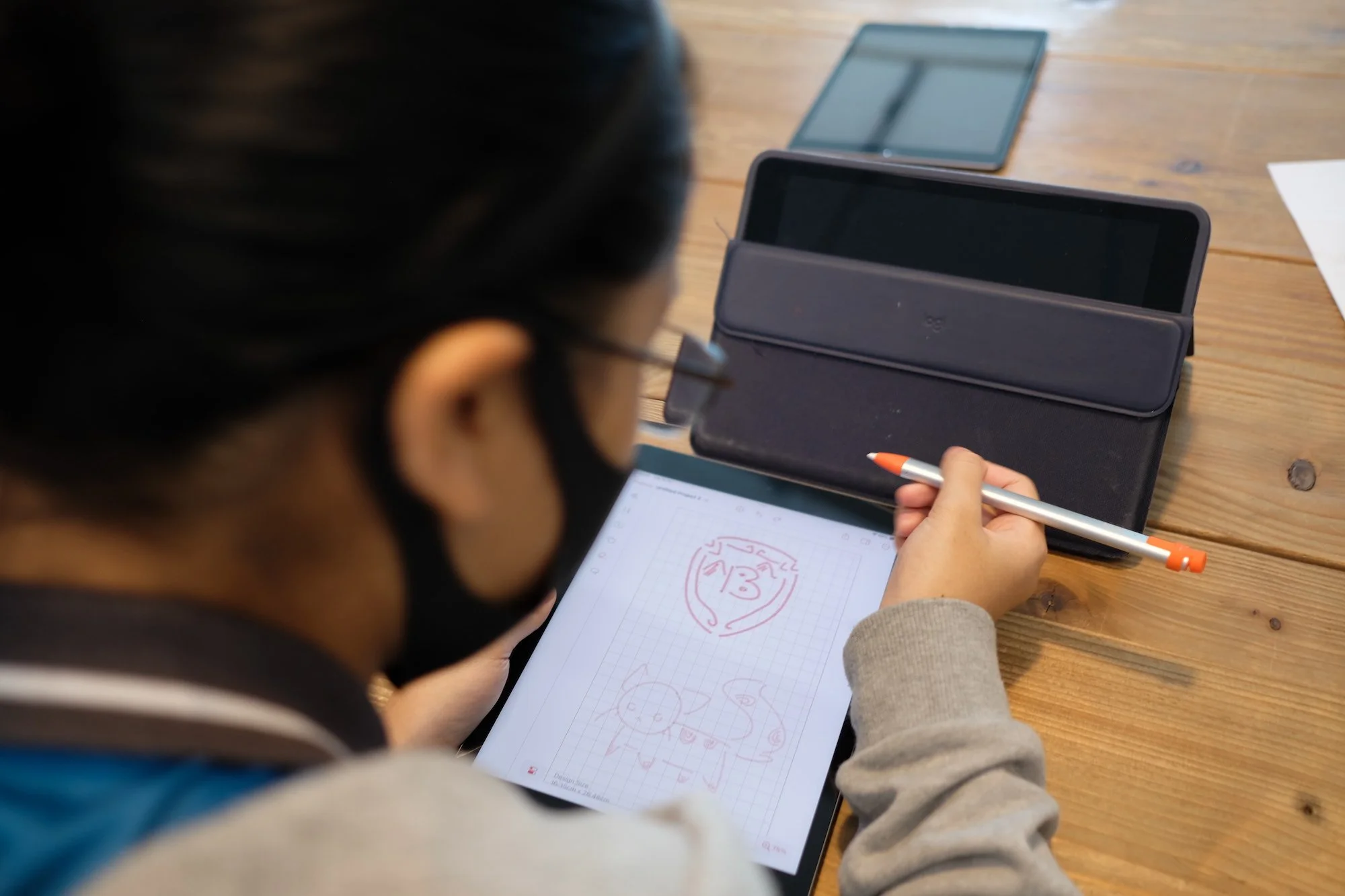
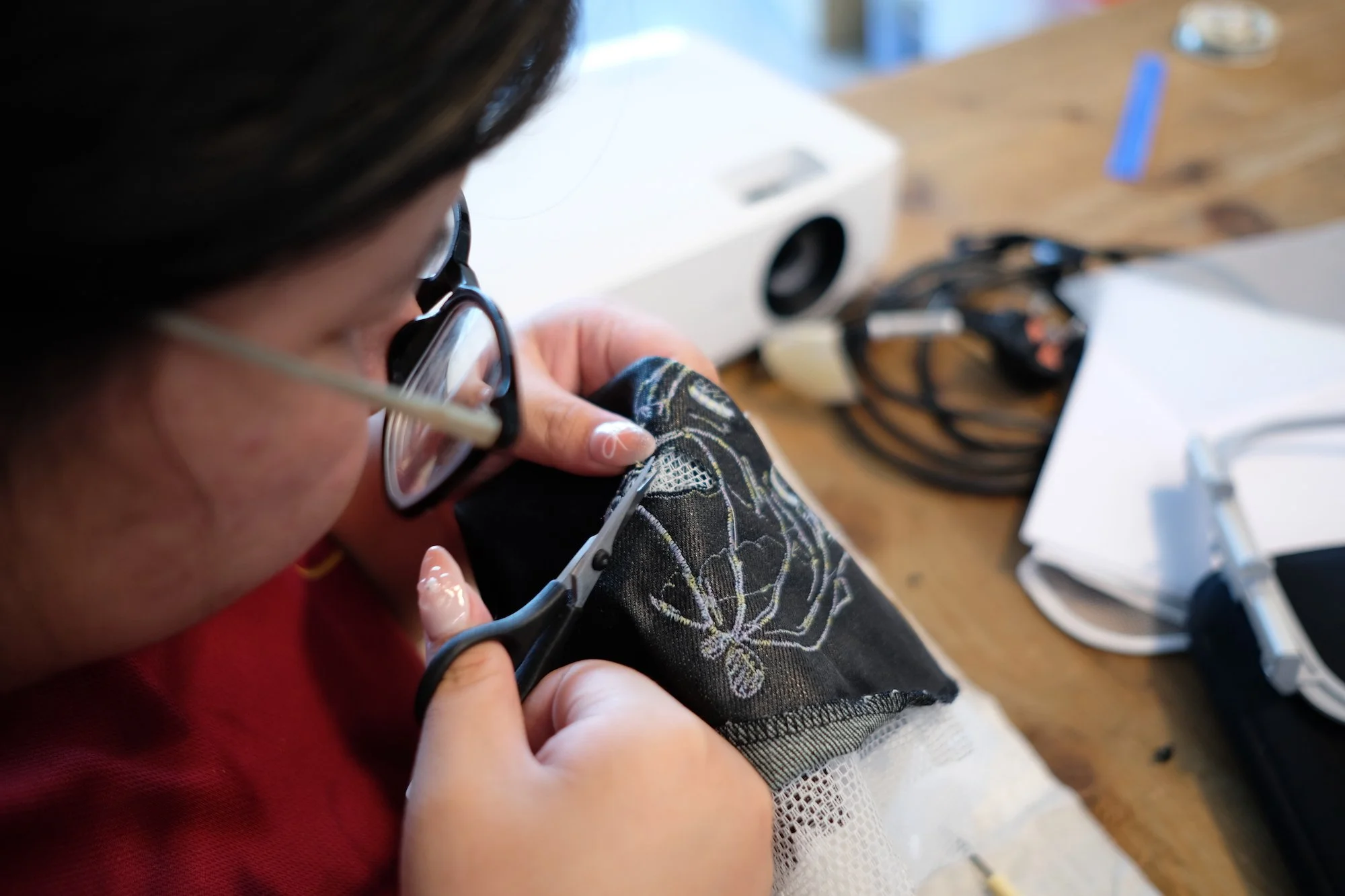
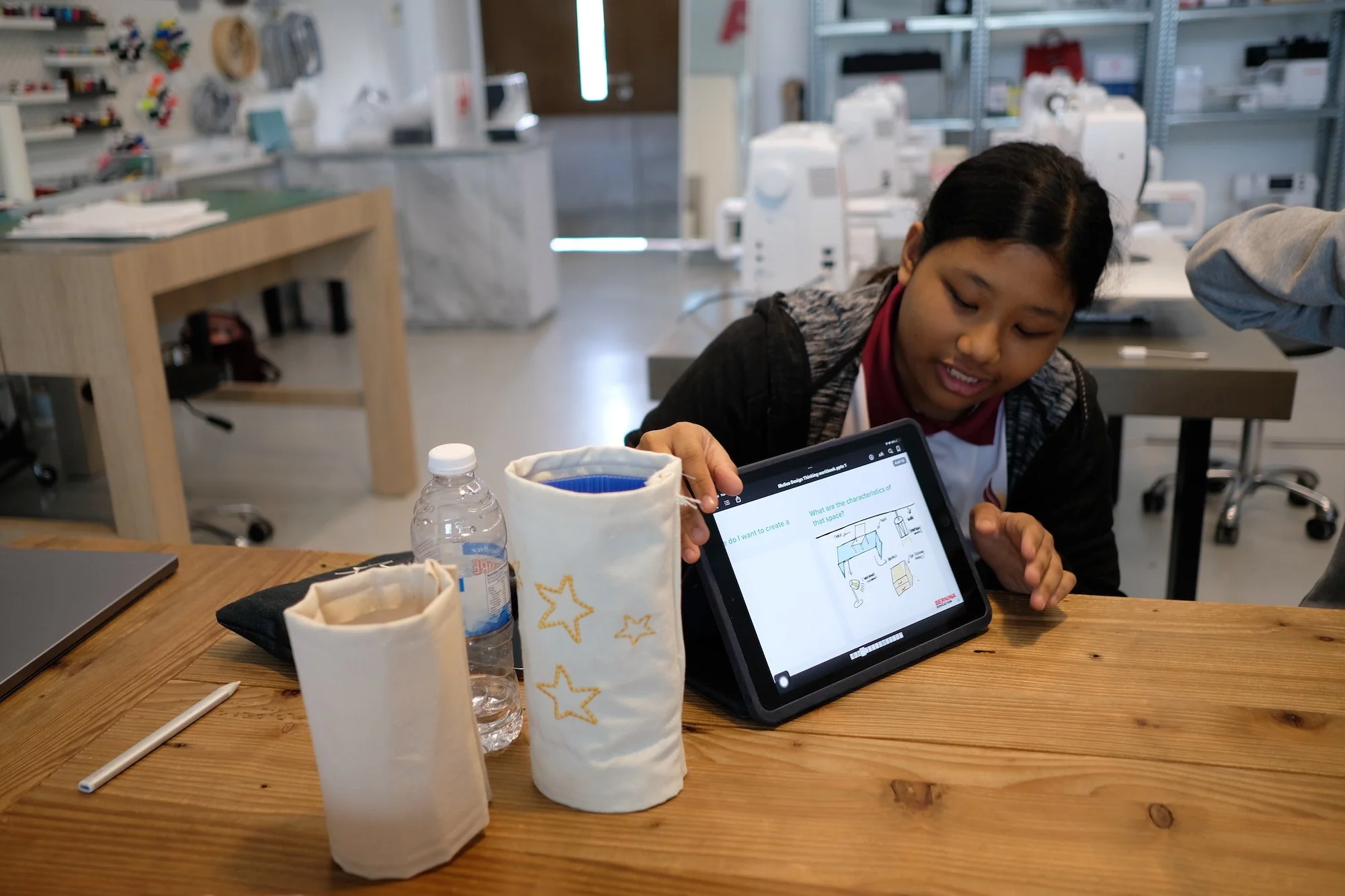
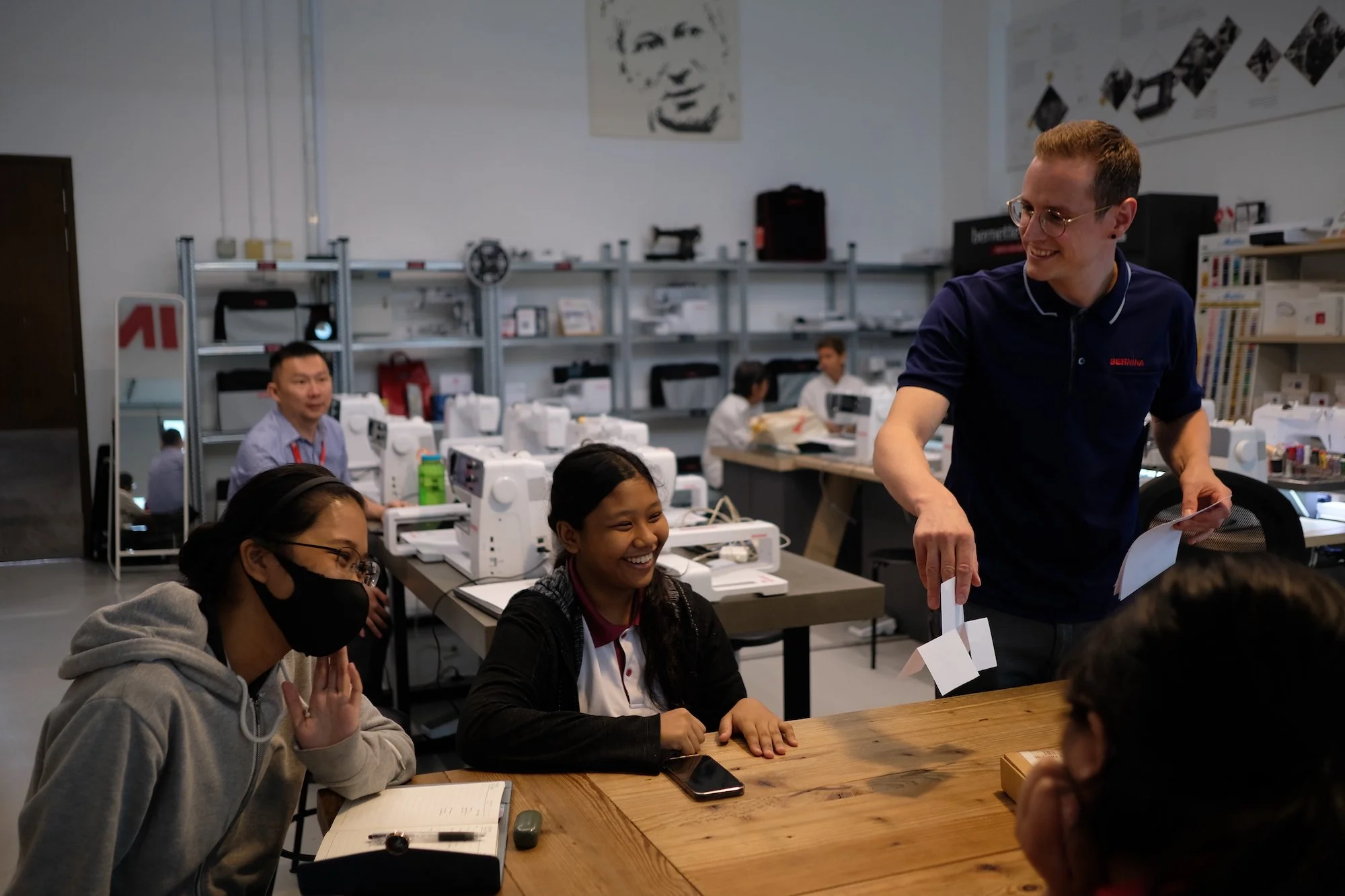
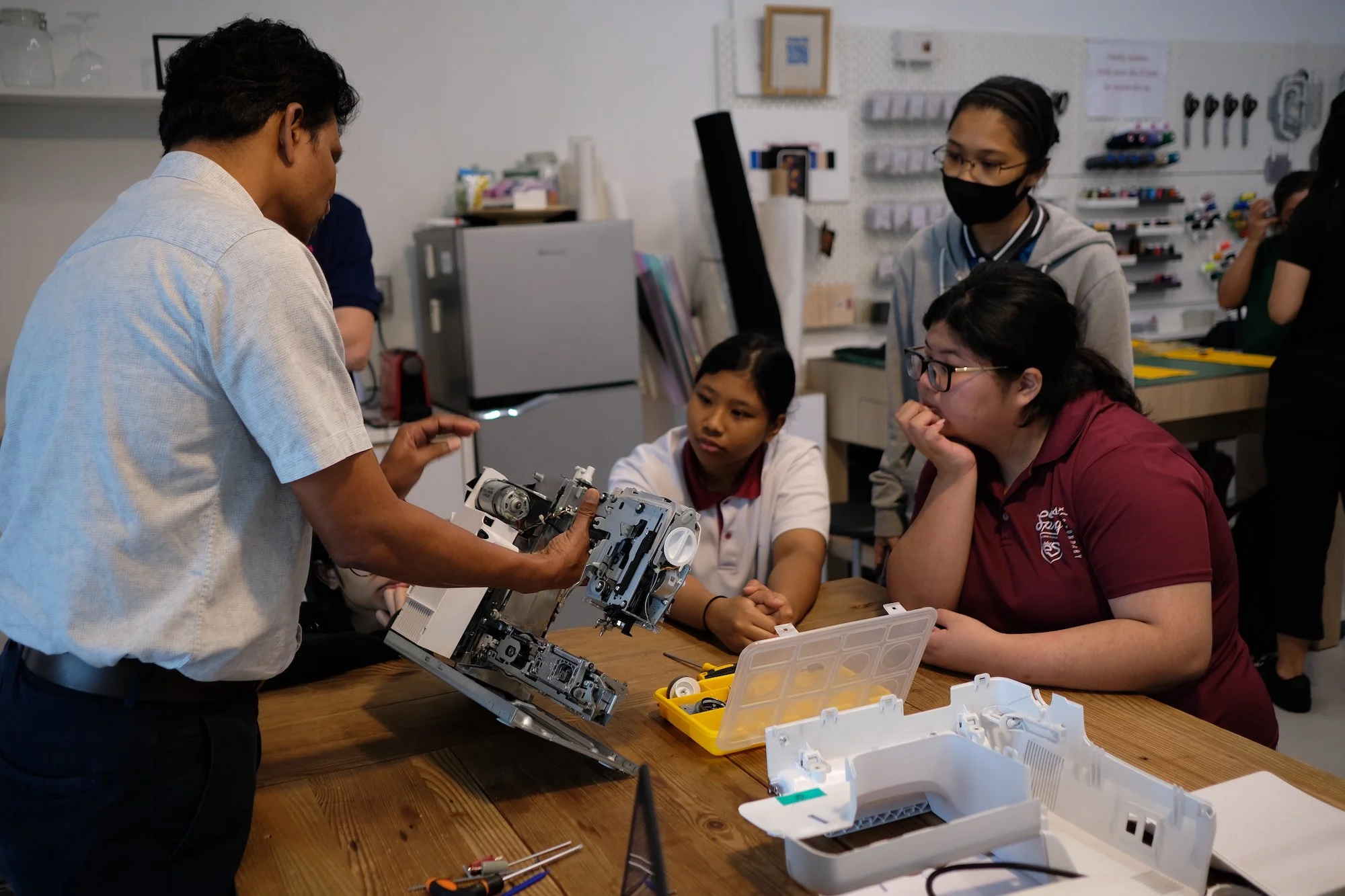

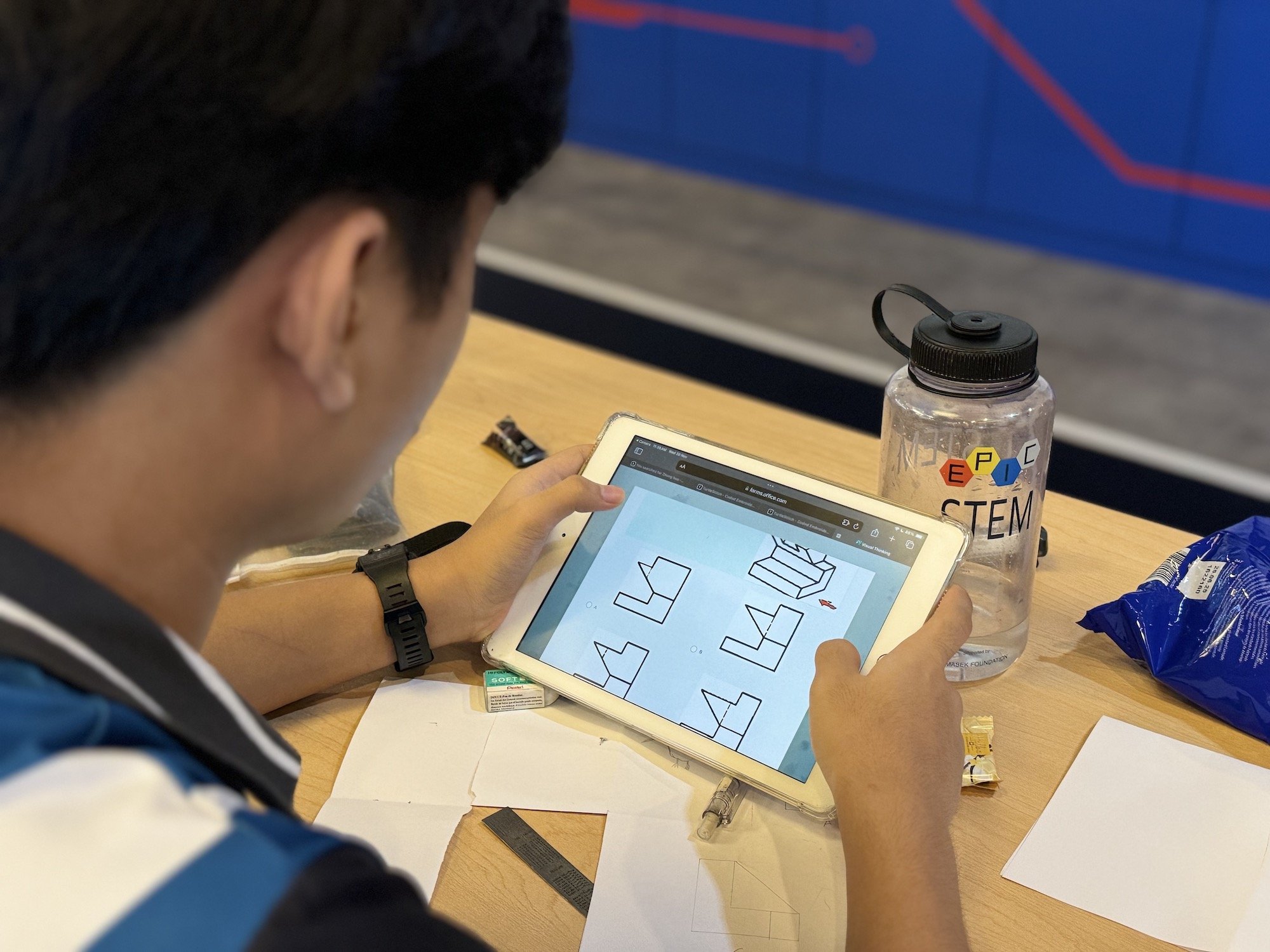
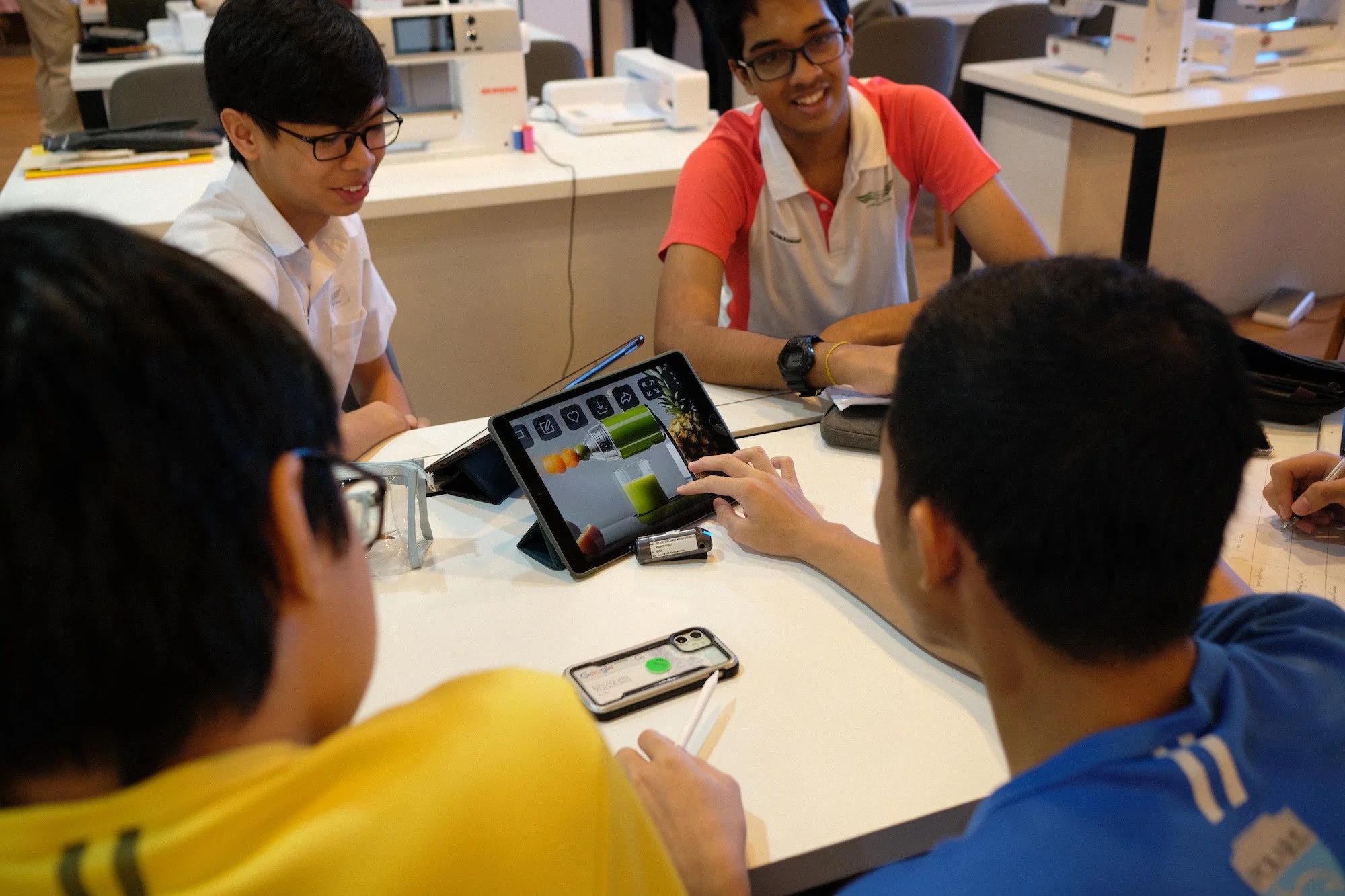
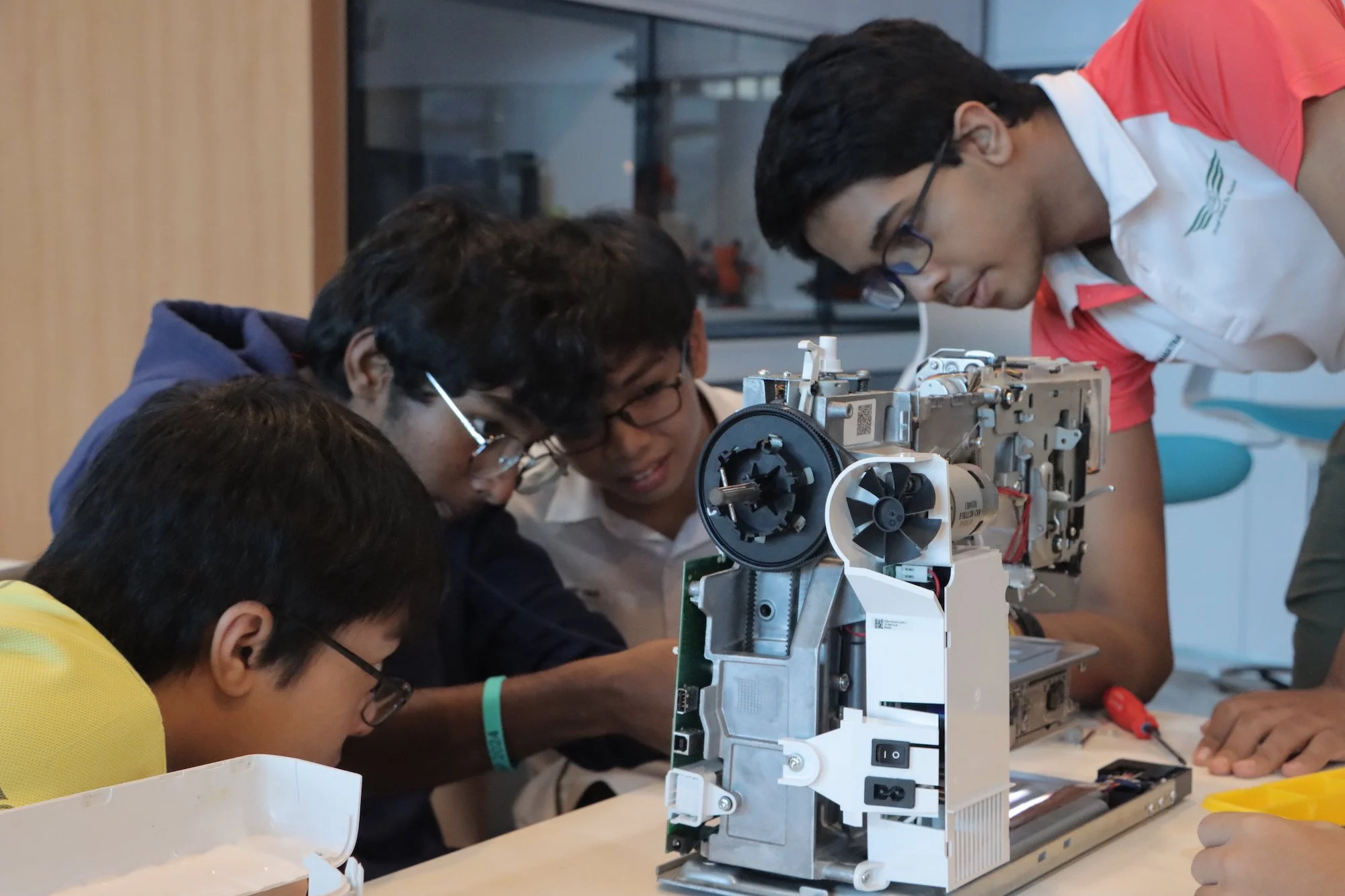

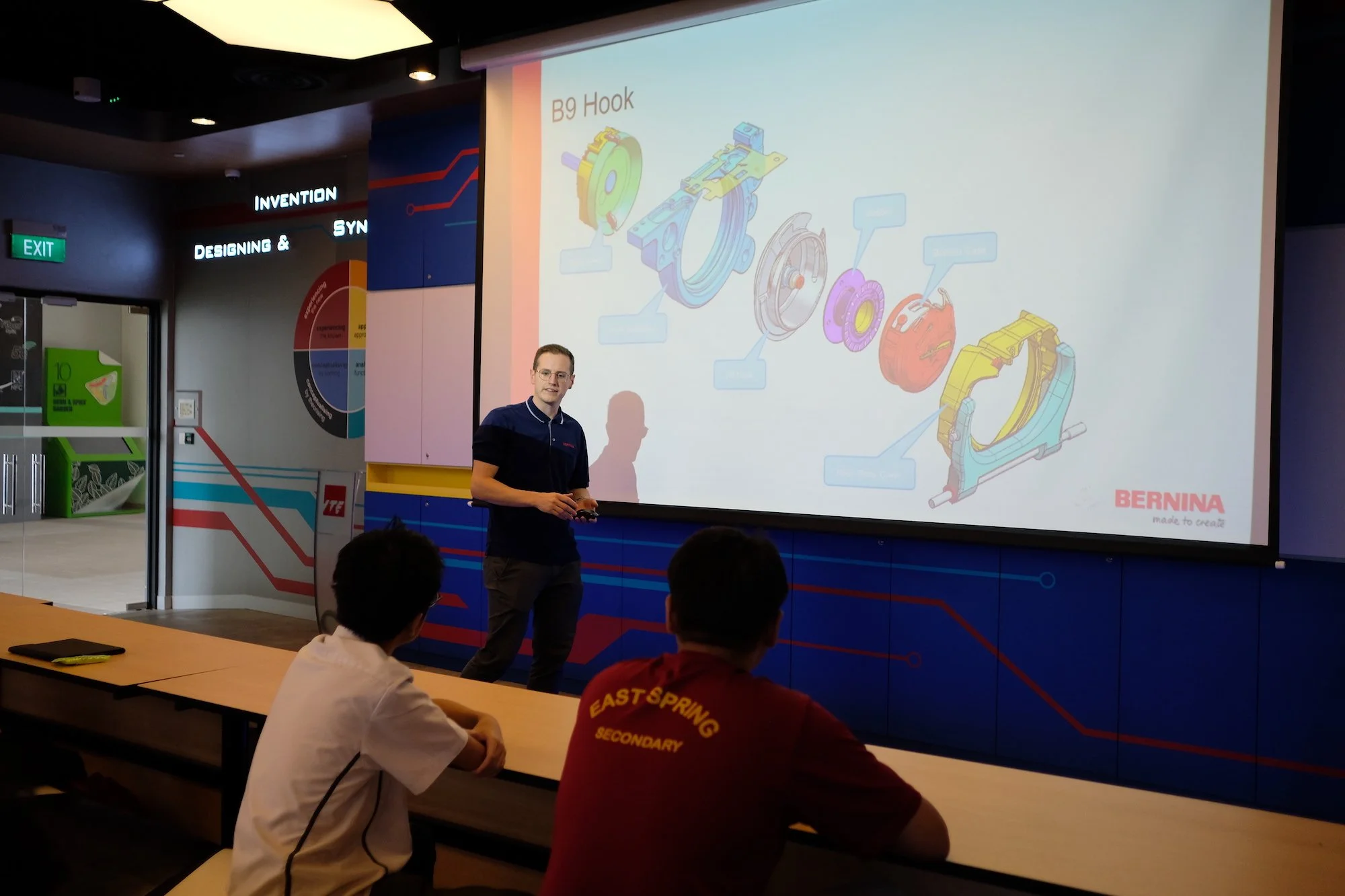

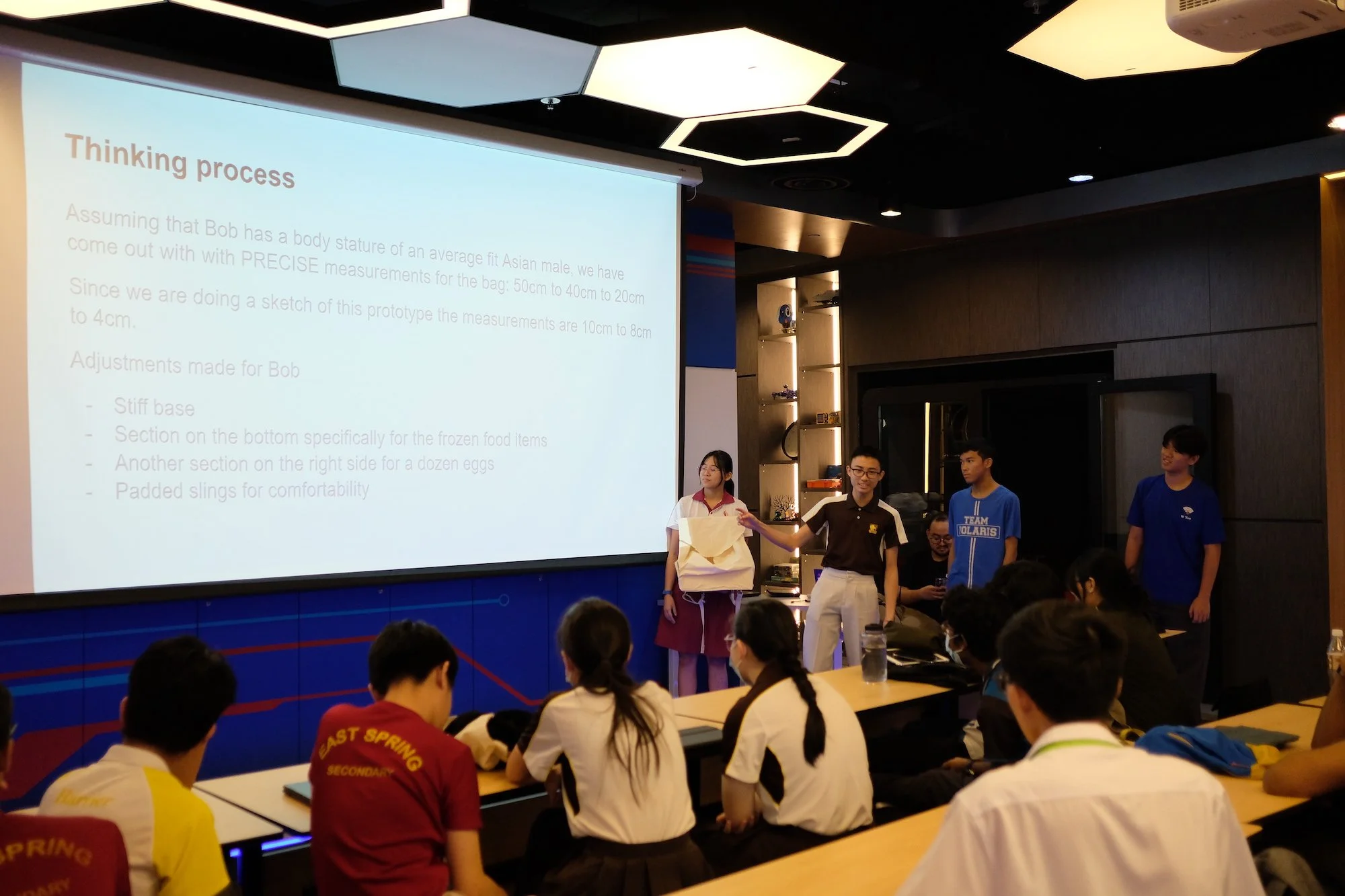
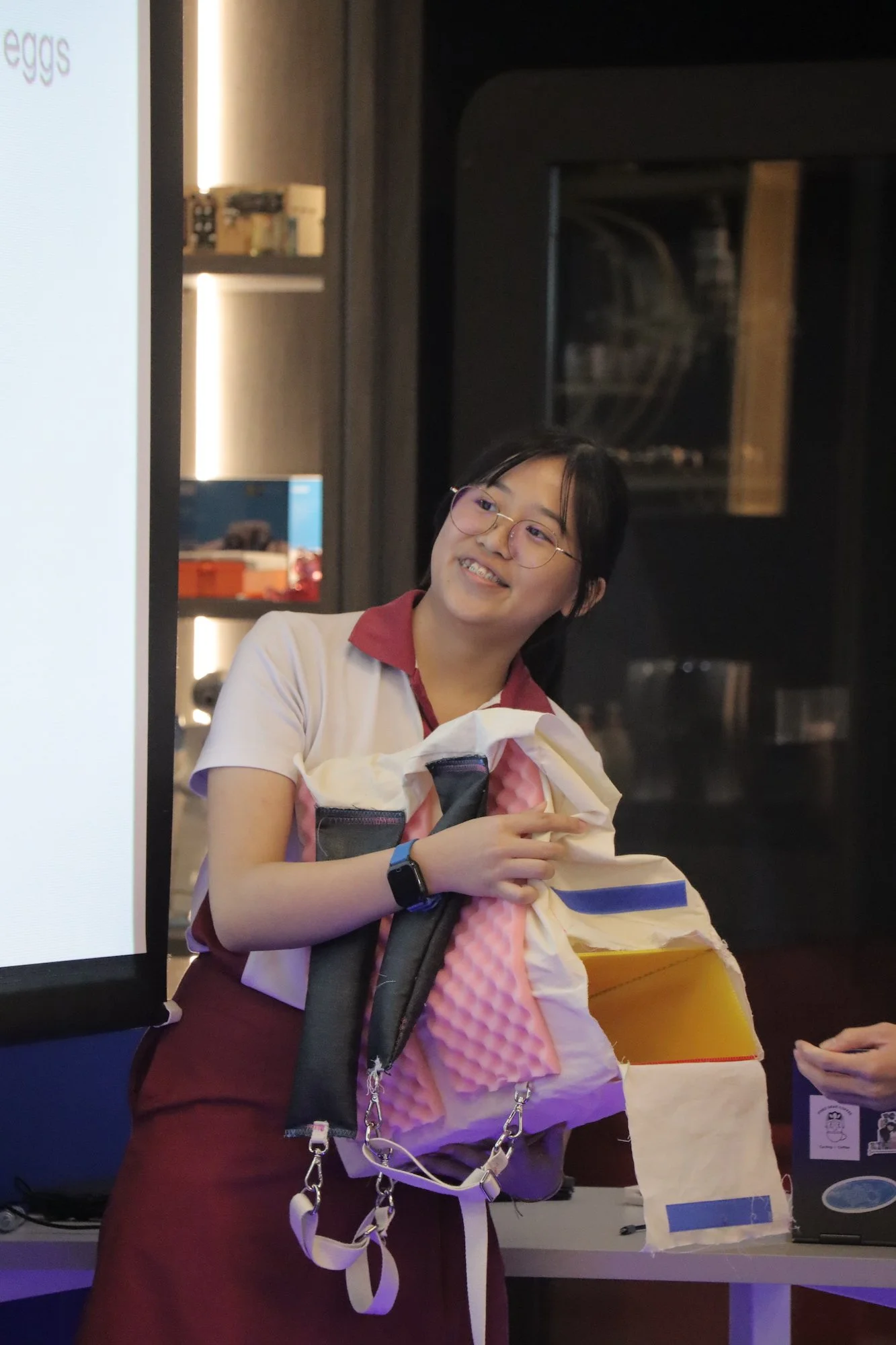

Micro-course at Temasek Polytechnic
The micro-course was supported by Temasek Polytechnic (TP). TP offered the Innovation and Entrepreneurship (INNOVA) Enrichment Programme course, which provided the students with innovative problem-solving methodologies such as the Design Thinking Framework to develop problem statements, ideate solutions, and identify feasible solutions. The aim of the programme is to equip learners with the knowledge and skills to solve real-life challenges by exploring opportunities through the application of problem-solving methodologies, apply prototyping skills for iterating and solutioning purposes and apply business tools such as Business/Mission Model Canvas to improve commercial viability of innovative ideas. As an added bonus, students who successfully completed the course received a certification that exempts them from a core subject in their first year at , should they choose enroll at Temasek Polytechnic.
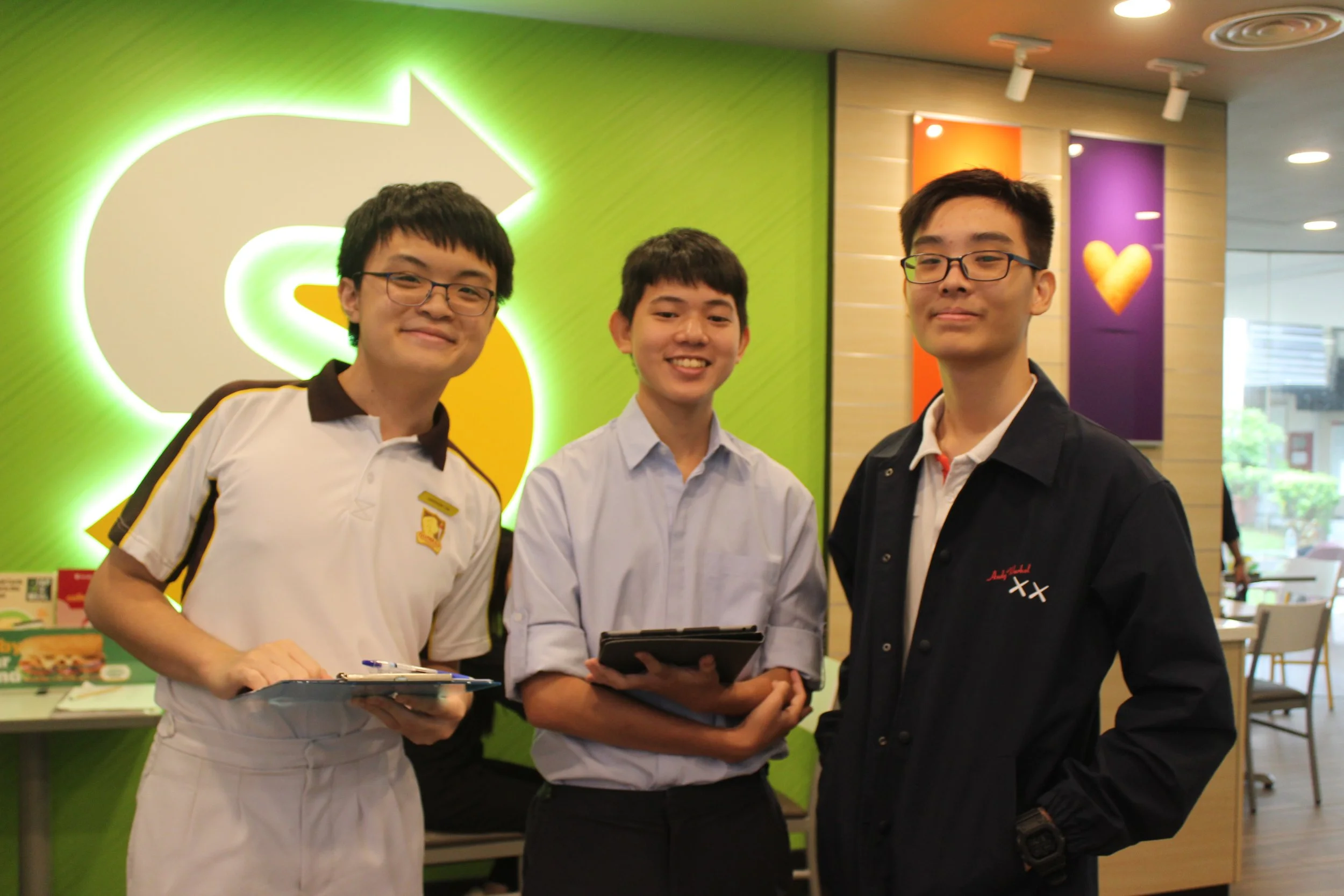

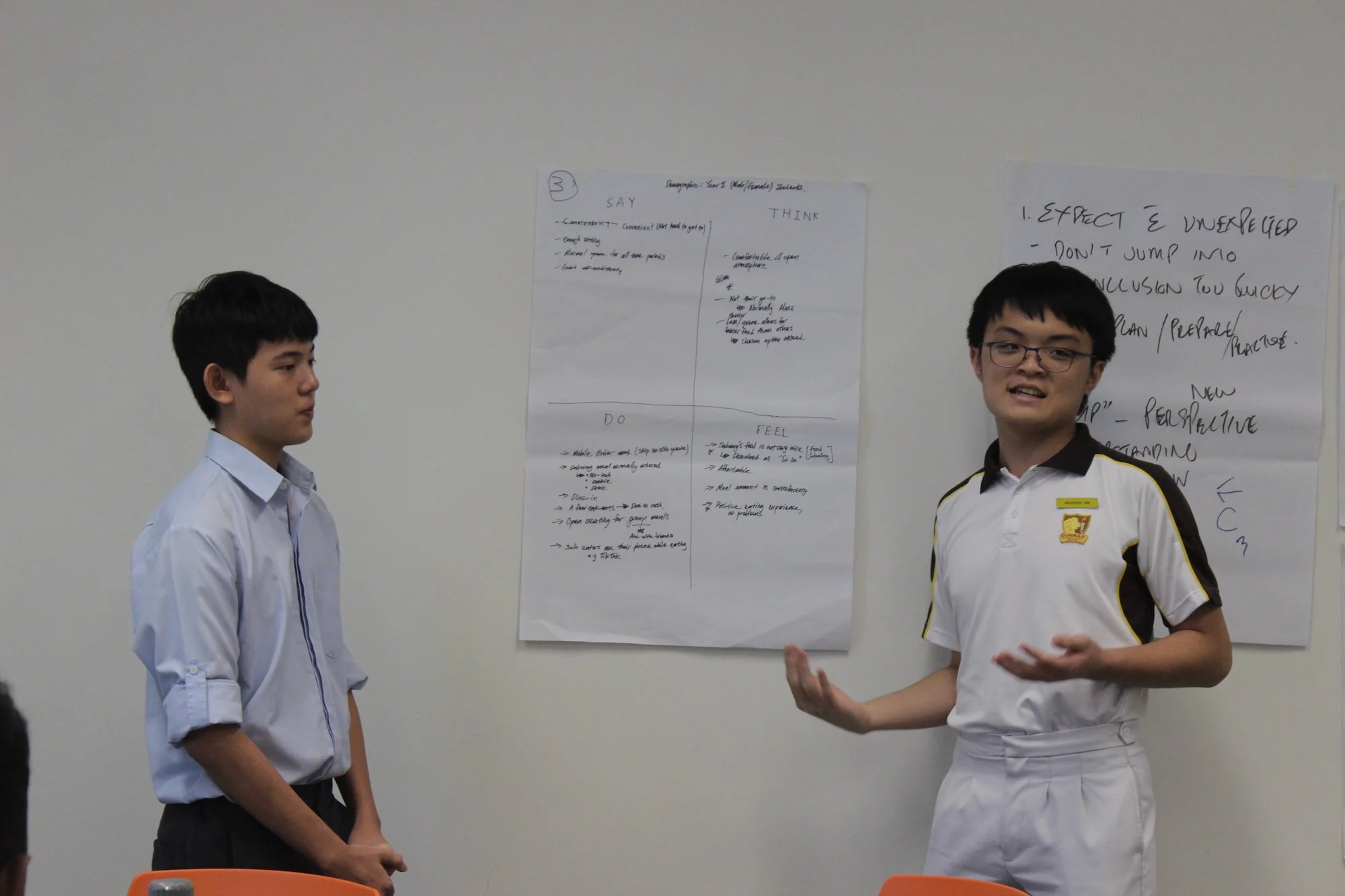
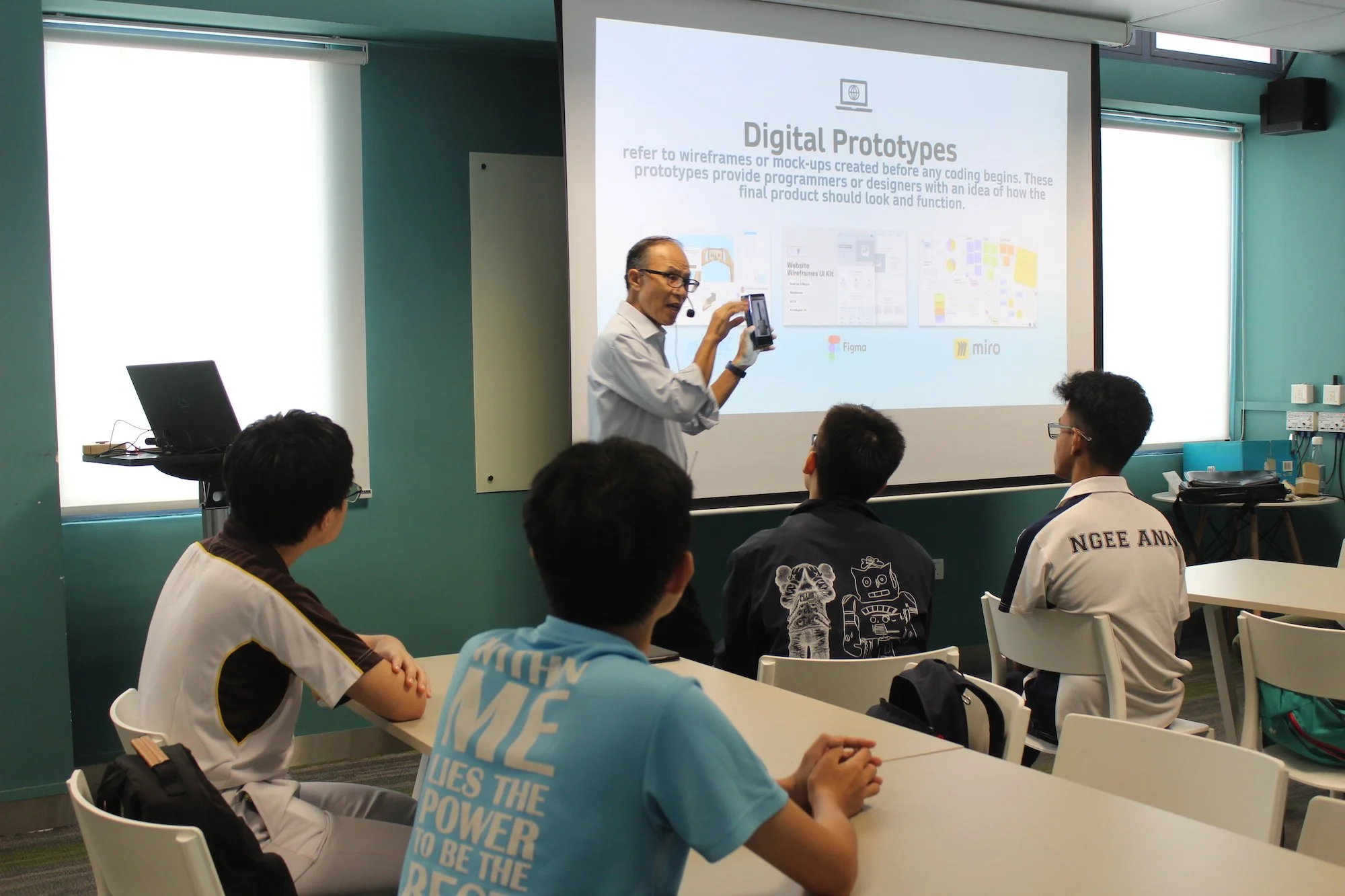

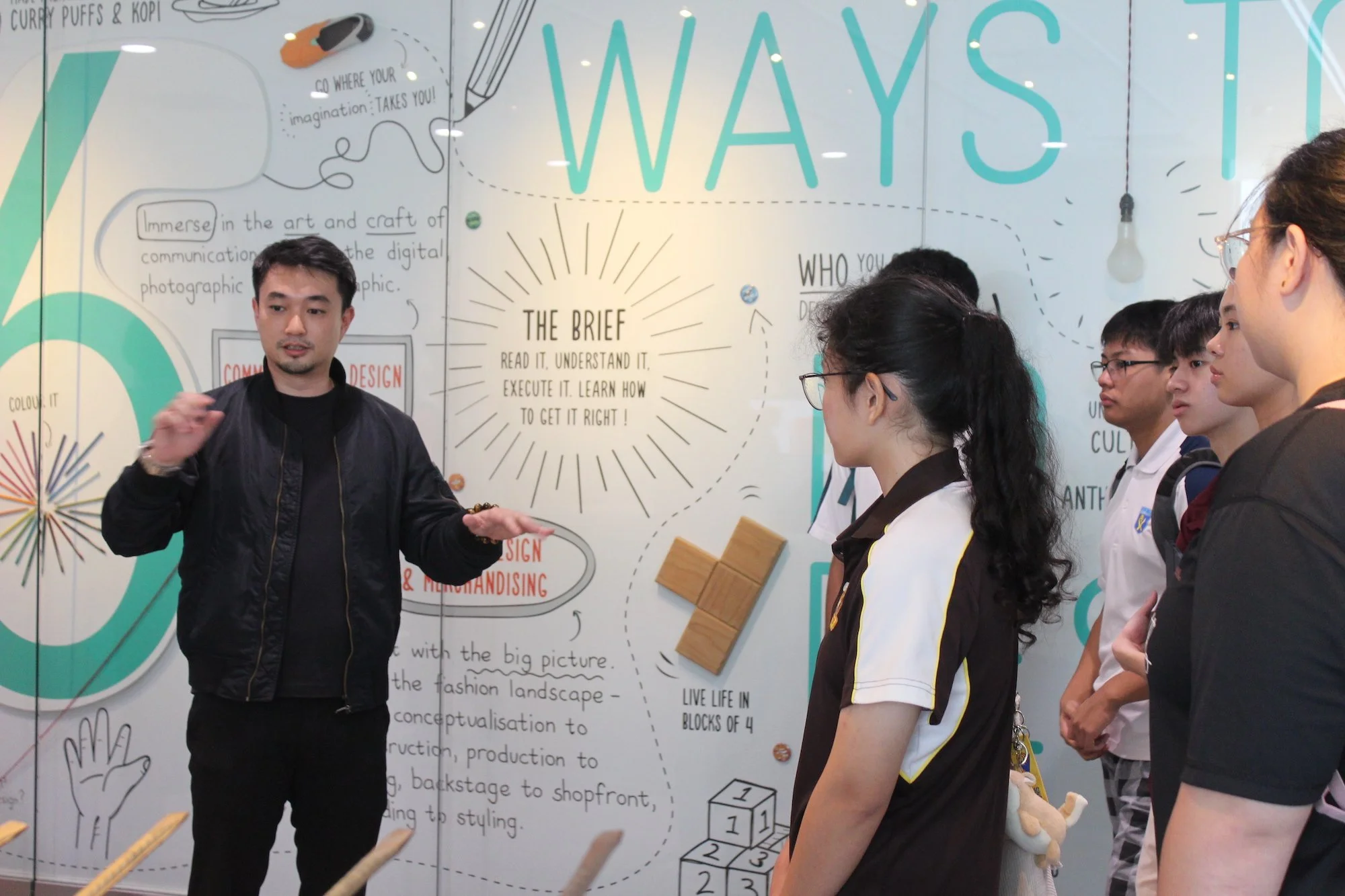


Testimonials
“My students have definitely benefited quite a lot. They are guided by different instructors from different institutions on how to generate a problem statement, and how to use design thinking to come up with their own project and their solution. ”
“STEM programme has been very beneficial to my learning and making my ideas to life and having to opportunity to work with like-minded people. Due to this programme, I had also made a lot of new friends of similar interest allowing me to express my ideas easily. I have also benefitted on my communication skills as I can voice out my thoughts and learn to compromise with other people idea and overall working on my teamwork and social skills. The learning experience has been great as my group, and I had worked on understanding each other better and improvise on each other’s idea to work on our project. ”
“I have seen how they have grown, learned how to manage their time better, prioritise better, and through that, I think that it is a good programme and it should continue. I think that learning journeys are good exposure for the students, partnering with industry partners is also very valuable, because in school, teachers are very much into curriculum and we don’t have the expertise or experience that an industry partner can bring to them. ”
“Thank you for having us and letting us explore around and learn more things together with other schools. We also get to try out many things and enjoy many activities that you have specially prepared for us.
”


